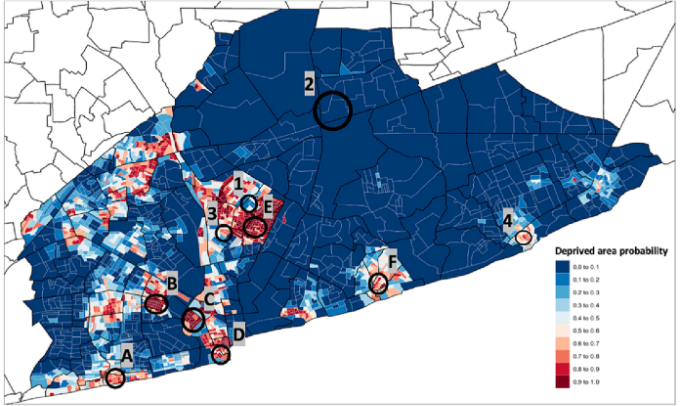About IDP Research Digest
Every month we publish on our website a selection of five papers related to inequality and distributive politics. We keep track of first view or recently accepted papers in the most important journals and of promising working papers in the research areas IDP operates. We are also happy to connect with people working on these topics who want to disseminate fresh research. Reach out to us on Bluesky and follow us for the thread version of our “Research Digest”, coming out on every other Thursday.
#35 – November 2025
Politician background and biased perceptions in 🇨🇭 – Redistribution and Deservingness between places/people 🇳🇴 – Ideological capture in the 🇺🇸 – Honest MP responses to lobbying in 🇩🇪 – Homeownership & voting behavior
In @spsr.bsky.social, @awenig.bsky.social studies drivers of biases of politicians’ perceptions of public opinion in favor of the rich. Matching elite & citizen surveys in 🇨🇭. Strong bias on economic issues driven by politician occupational background not lobby contact.
Marié, Awenig. n.d. “Why Do Politicians Overestimate Richer Voters’ Opinions? Social Background and Interest Group Influence.” Swiss Political Science Review. https://doi.org/10.1111/spsr.70021 .
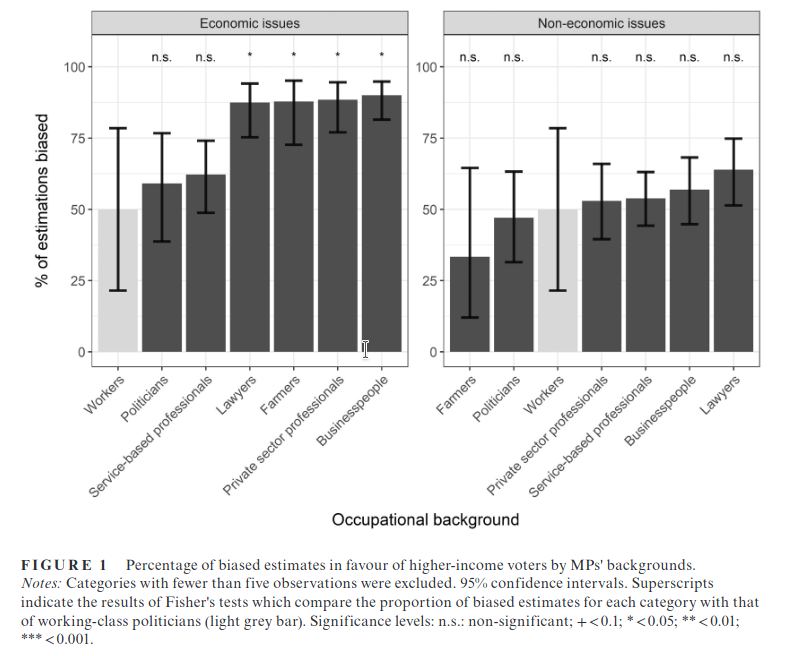
In @ejprjournal.bsky.social, M. R. Eidheim expands class-based grievance to spatial perception of redistribution & deservingness. Via 3 survey experiments, she shows rural/working-class voters believe urban areas get disproportionate resources in 🇳🇴.
Eidheim, Marta R. “Redistribution between people and places: Conflict or consensus among rural and working-class voters?.” European Journal of Political Research (2025): 1-21.https://doi.org/10.1017/S1475676525100339
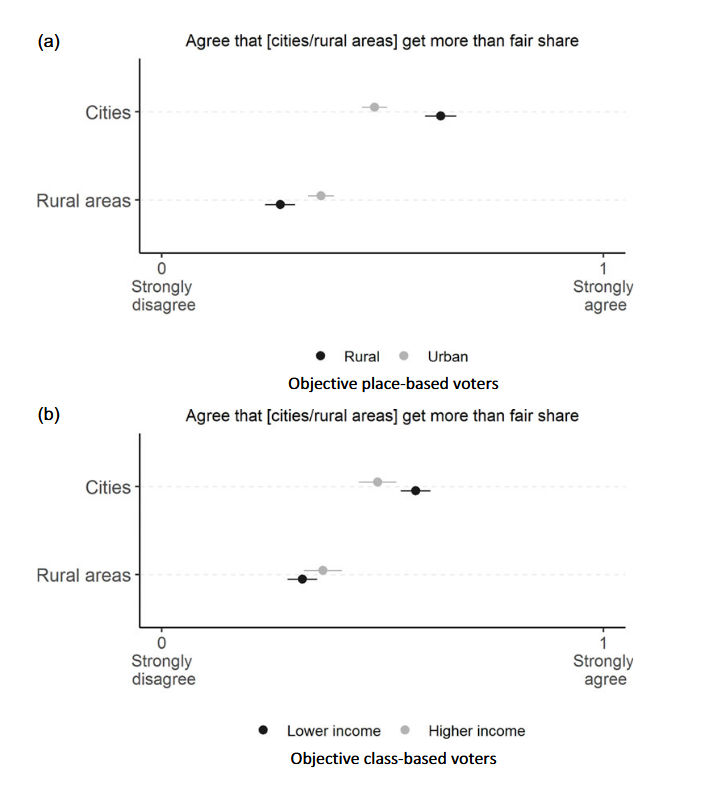
In @poppublicsphere.bsky.social Short, @sophieehill.bsky.social & Brown advance theory of ideological capture (IC). Use 🇺🇸 antitrust policy case with original survey of citizens & lawyers. Among others, IC characterized by cleavage in policy support between experts & public
Short, Nicholas, Sophie Hill, and Jacob Brown. “What Is Ideological Capture and How Do We Measure It? Using Antitrust Reform to Understand Expert–Public Cleavages.” Perspectives on Politics, November 17, 2025, 1–21. https://doi.org/10.1017/S153759272510323X .
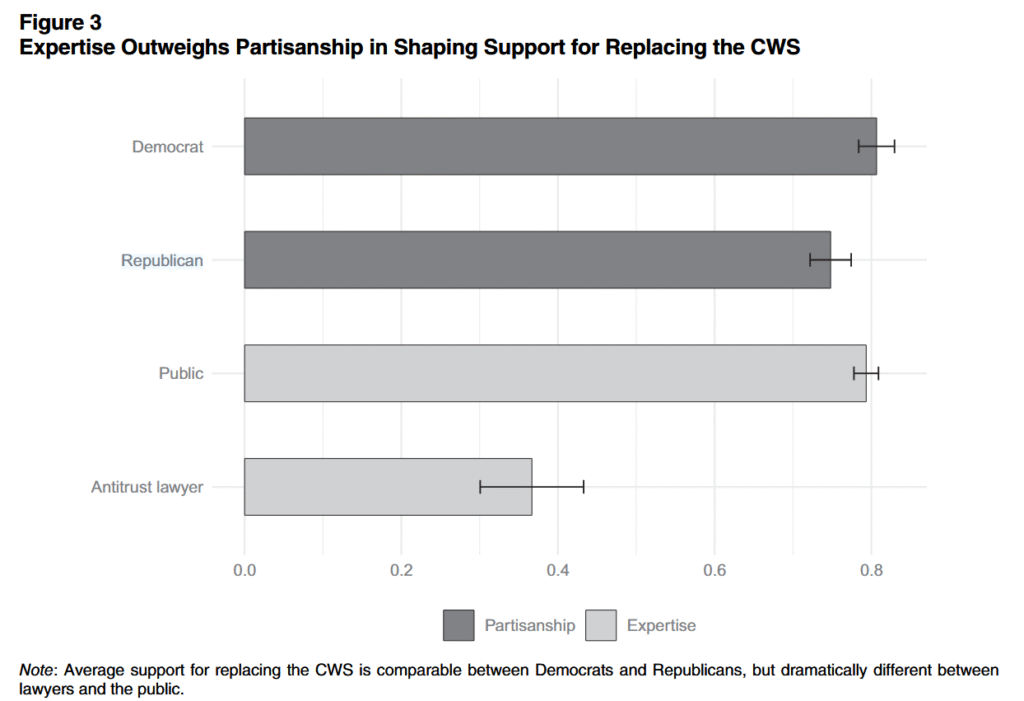
In @ejprjournal.bsky.social Pitsch & Wenzelburger estimate MP response to lobbying using randomized response technique to elicit honest answers by ensuring anonymity. Anonymity ensured by lumping answers with yes answers to other questions. Find small response to lobbying
Pitsch, Werner, and Georg Wenzelburger. 2025. “Studying Honest Answers to Sensitive Issues in Politics New Evidence on Lobbying Influence.” European Journal of Political Research, November 21, 1–16. https://doi.org/10.1017/S1475676525100431 .
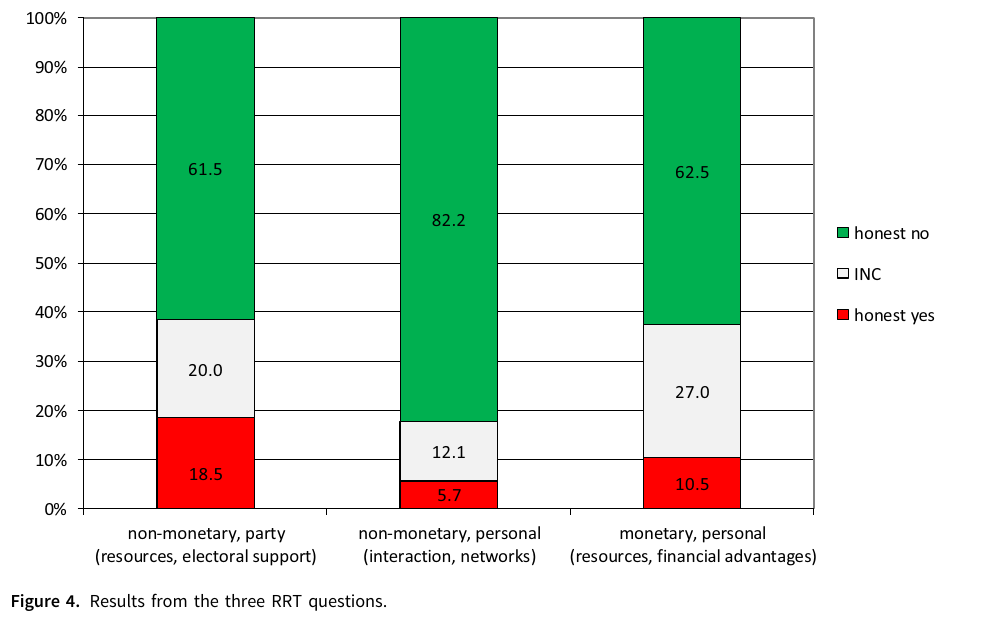
In @electoralstudies.bsky.social, @joshgoddard98.bsky.social studies influence of homeownerhip on voting behavior. Housing & election data from 14 countries. Results show homeowners are increasingly more likely to vote for center-right parties & renters for radical left parties.
Goddard, Josh. 2026. “Housing and Electoral Behaviour: The Changing Face of Class Voting in Advanced Democracies.” Electoral Studies 99 (February): 103009. https://doi.org/10.1016/j.electstud.2025.103009 .
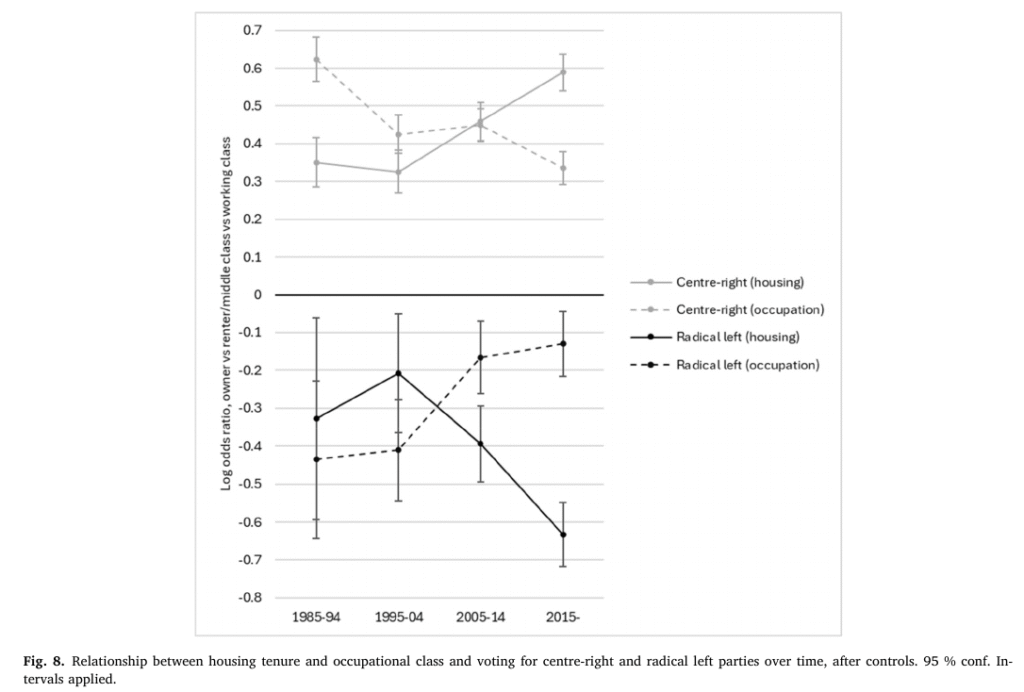
#34 – October 2025
Left parties and working class support – Tax base inequality in 🇺🇸 – Revolving door in 🇯🇵 – Tax Compliance in 🇨🇱 – framing budget cuts in 🇩🇰
In @electoralstudies.bsky.social, @fedetrastulli.bsky.social argues while left parties lost working-class votes between 2002-2020, those emphasizing cultural issues still attract working-class voters. Culture but not class explain workers’ support for the left
Trastulli, F. (2025). Left parties’ strategies and working-class vote in contemporary Western Europe (2002–2020). Electoral Studies, 98, 103006, doi.org/10.1016/j.electstud.2025.103006.
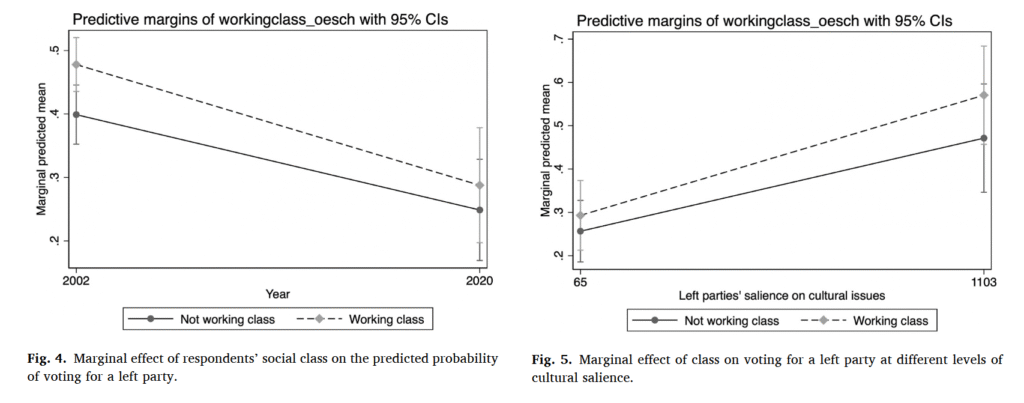
In SER, @robertmanduca.bsky.social & coauthors study how economic segregation & jurisdictional fragmentation overlap, leading to unequal tax bases b/w municipalities within a metro area. Admin & real estate data in 🇺🇸. Results show that there are many local tax havens in US.
Manduca, Robert, Brian Highsmith, and Jacob Waggoner. 2025. “Tax Base Fragmentation as a Dimension of Metropolitan Inequality.” Socio-Economic Review, October 15, mwaf055. https://doi.org/10.1093/ser/mwaf055 .
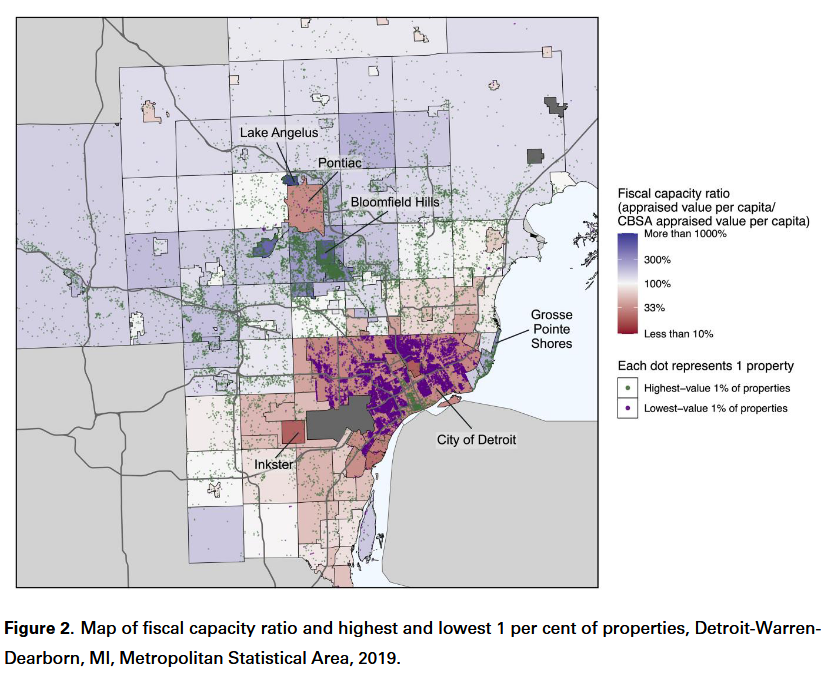
In @apsrjournal.bsky.social, Incerti studies the revolving door for bureaucrats in🇯🇵. Firms hiring high ranking bureaucrats, particularly from finance-related ministries, receive more government loans and experience stock market gains.
Incerti, Trevor. 2025. “How Firms, Bureaucrats, and Ministries Benefit from the Revolving Door: Evidence from Japan.” American Political Science Review, November 5, 1–21. https://doi.org/10.1017/S0003055425101263 .
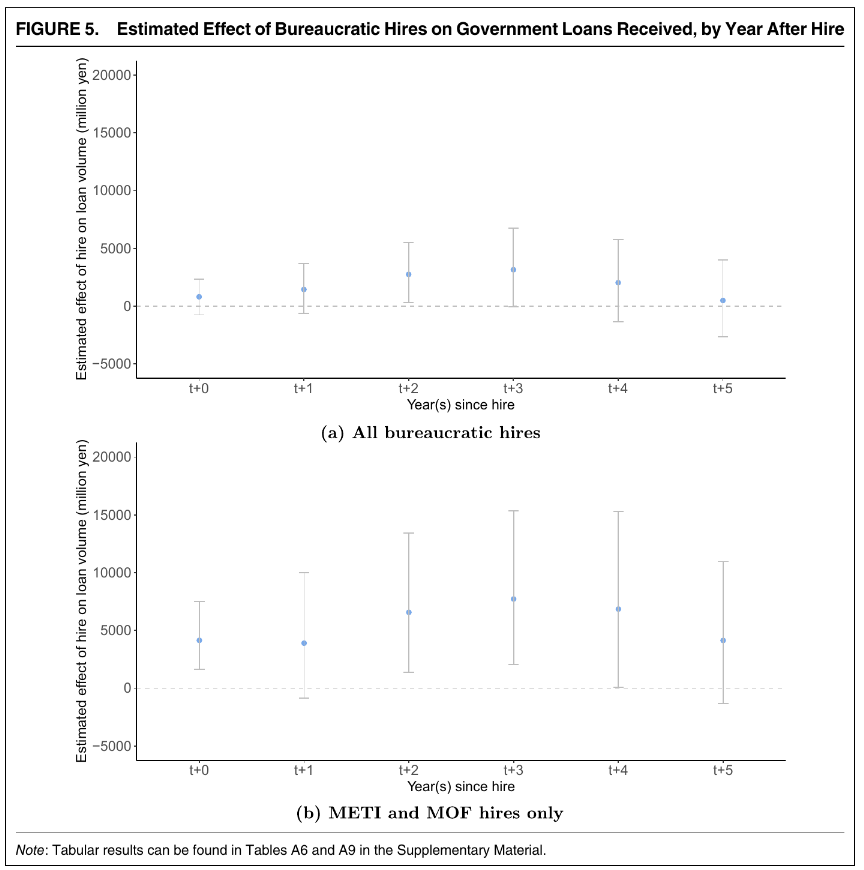
In @thejop.bsky.social @pberamendi.bsky.social @aslicansunar.bsky.social & Duch research how the design of tax-&-transfer systems shapes people’s willingness to comply. They find that compliance isn’t only about fear but also who gains and who loses from the system.
Beramendi, P., Cansunar, A. and Duch, R.M. 2025. “The Distributive Basis of Tax Compliance”. Journal of Politics, October, doi: https://doi.org/10.1086/739408 .
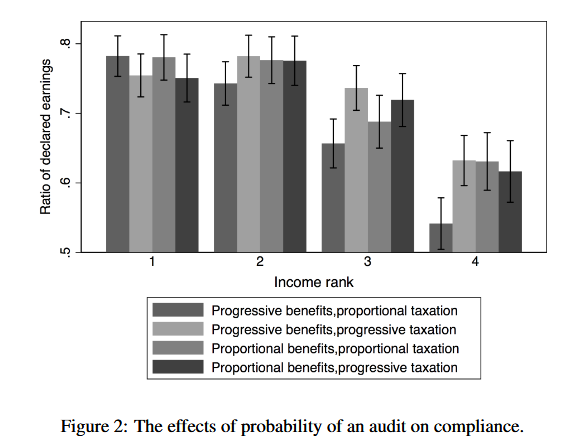
In @polstudies.bsky.social, @rtpedersen.bsky.social & Hansen examine strategies to communicate municipal budget cuts with a survey experiment in 🇩🇰. Only justification (e.g. emphasizing trade-offs) reduces opposition, blaming others & numerical reframing do not work.
Pedersen, Rasmus T, and Paw Hansen. 2025. “Public Budget Cuts: Political Communication Strategies and Citizen Reactions.” Political Studies, October 23, 00323217251382336. https://doi.org/10.1177/00323217251382336 .
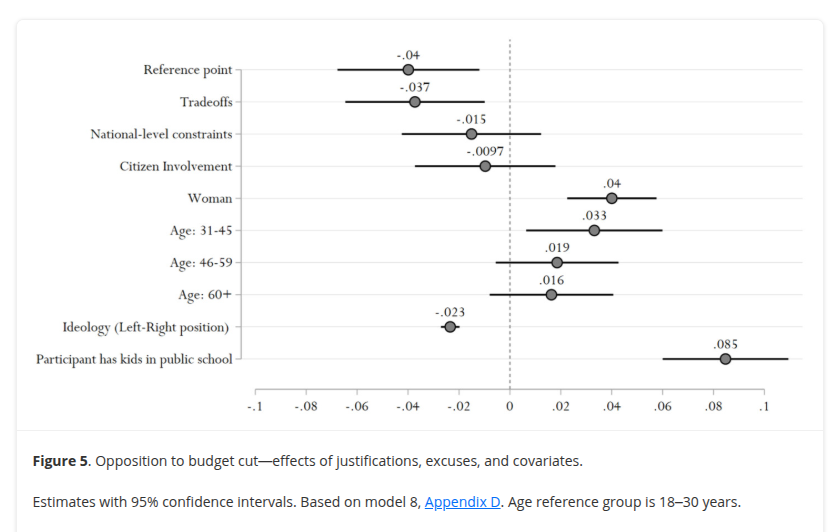
#33 – September 2025
Choosing capital cities in 🇩🇪, 🇦🇹 & 🇨🇭 – Primary responsiveness in 🇺🇸 – Populist blameshifting backfires in 🇹🇷 – Effects of local policies on internal migration – Inequality, democracy and anti-trust legislation
In @politicalgeography.bsky.social, Willumsen examines preferences of MPs and voters for location of capitals in 🇩🇪, 🇦🇹 & 🇨🇭. All purely selfish, prefer close locations irrespective of national or state level capital.
Willumsen, David M. 2025. “Where Do We Go? Explaining Democratic Capital Location Preferences.” Political Geography 122 (September): 103385. https://doi.org/10.1016/j.polgeo.2025.103385 .
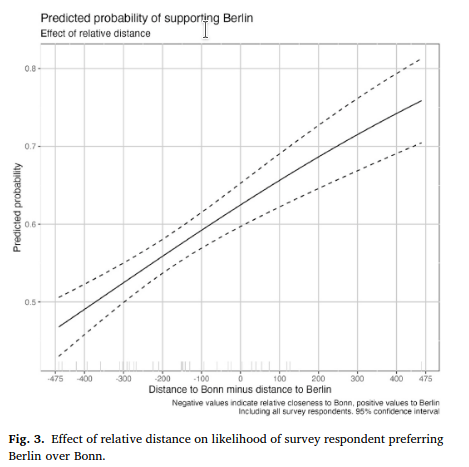
In @thejop.bsky.social, Meisels compares different measures of congressional candidates’ responsiveness in primaries. Text data from 🇺🇸. Results show that campaign platform data suggests more responsiveness and greater incentives for extremism than campaign finance data.
Meisels, Mellissa. 2025. “Candidate Positions, Responsiveness, and Returns to Extremism.” The Journal of Politics, September 5, 738505. https://doi.org/10.1086/738505 .
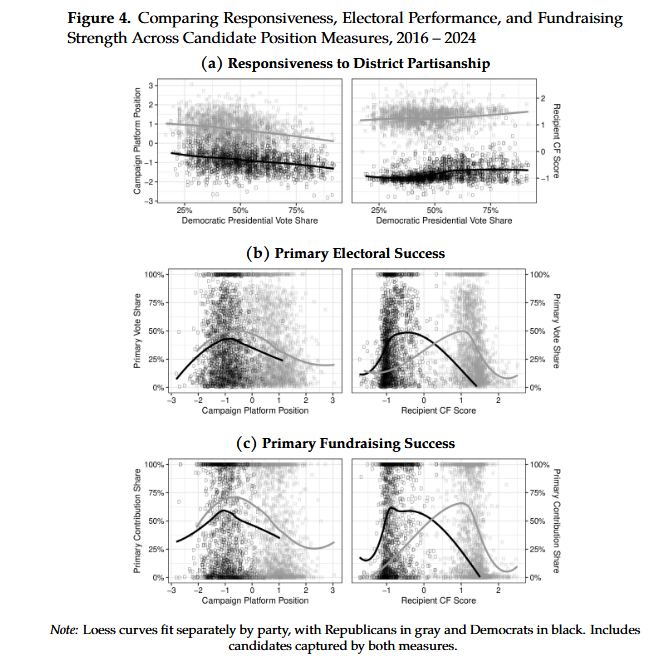
In @poppublicsphere.bsky.social, @edwardgoldring.bsky.social, Schmid & Apaydin find blame-shifting (esp. force majeure) by autocrat backfires. Survey experiment: Erdogan’s approval dropped (6-8%) among upper class after the 2023 earthquake in 🇹🇷.
Goldring, E., Schmid, J. W., & Apaydin, F. (2025). Blame Shifting in Autocracies following Large-Scale Disasters: Evidence from Turkey. Perspectives on Politics, 1-24.
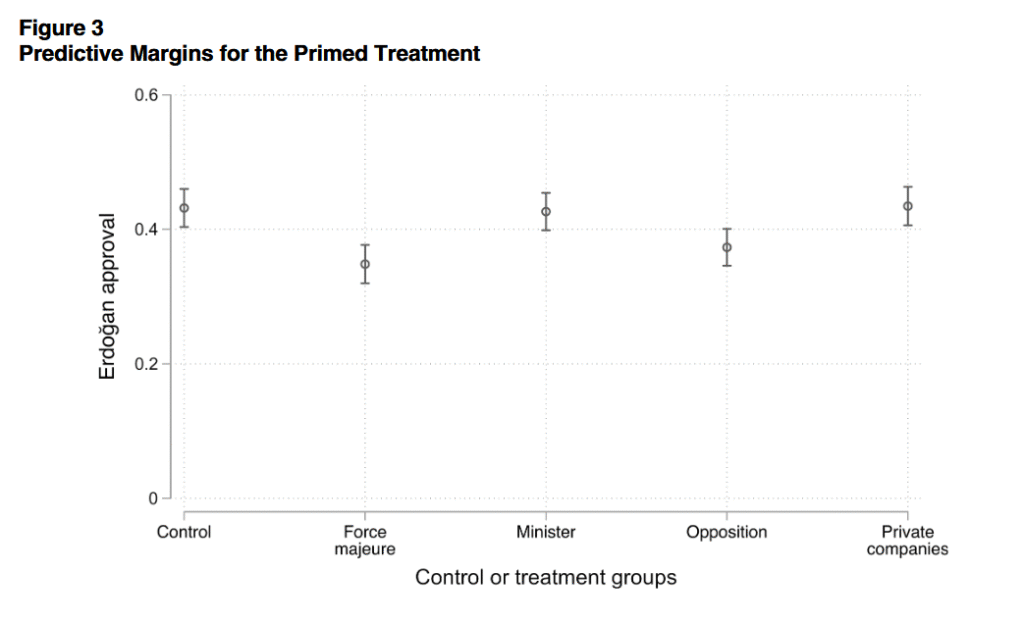
In @polbehavior.bsky.social, @hanslueders.bsky.social ask, do exclusionary local policies change where immigrants want to live? Findings of 🇲🇽 immigrants in 🇺🇸 show they do but financial concerns often win and naturalized citizens respond due to discrimination and safety worries.
Lueders, Hans. 2025. ‘Local Immigration Policies Shape Immigrants’ Relocation Preferences Regardless of Immigration Status’. Political Behavior, ahead of print, September 29. https://doi.org/10.1007/s11109-025-10080-0 .
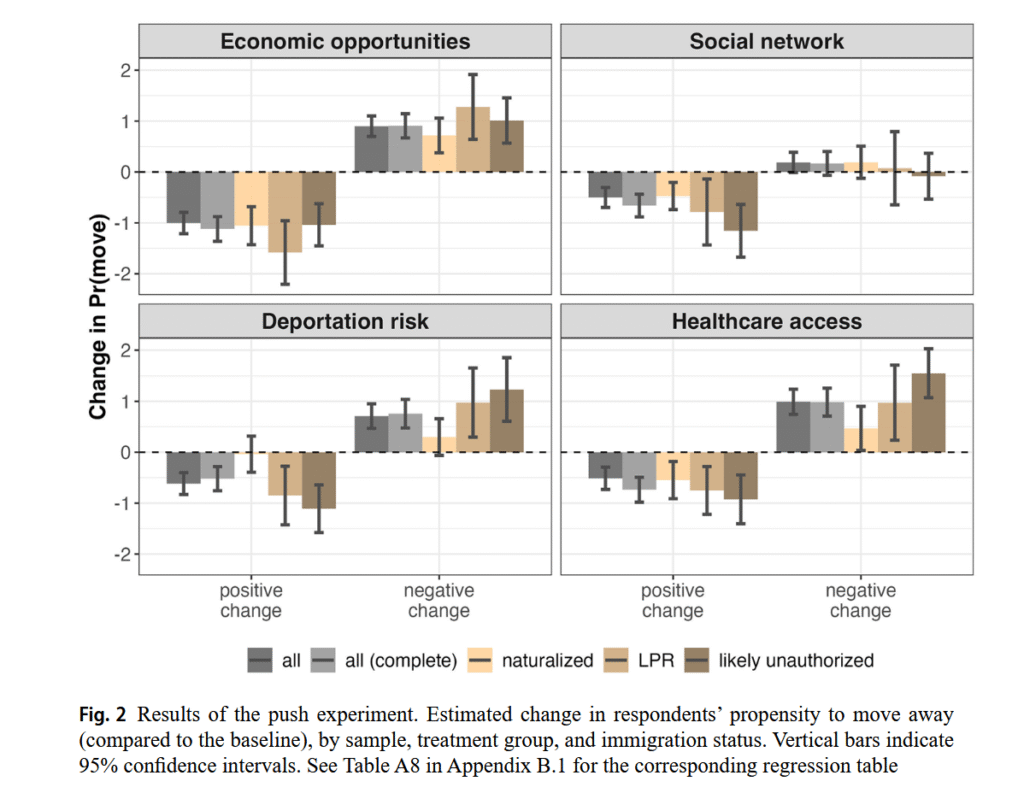
In @thejop.bsky.social Scheve & @stasavage.bsky.social use time-series data for many countries, showing that democratization increases anti-trust legislation, but only in places with low inequality.
Allen, Michael O., Kenneth Scheve, and David Stasavage. 2025. “Democracy, Inequality, and Antitrust.” The Journal of Politics, September 23, 000–000. https://doi.org/10.1086/736023 .
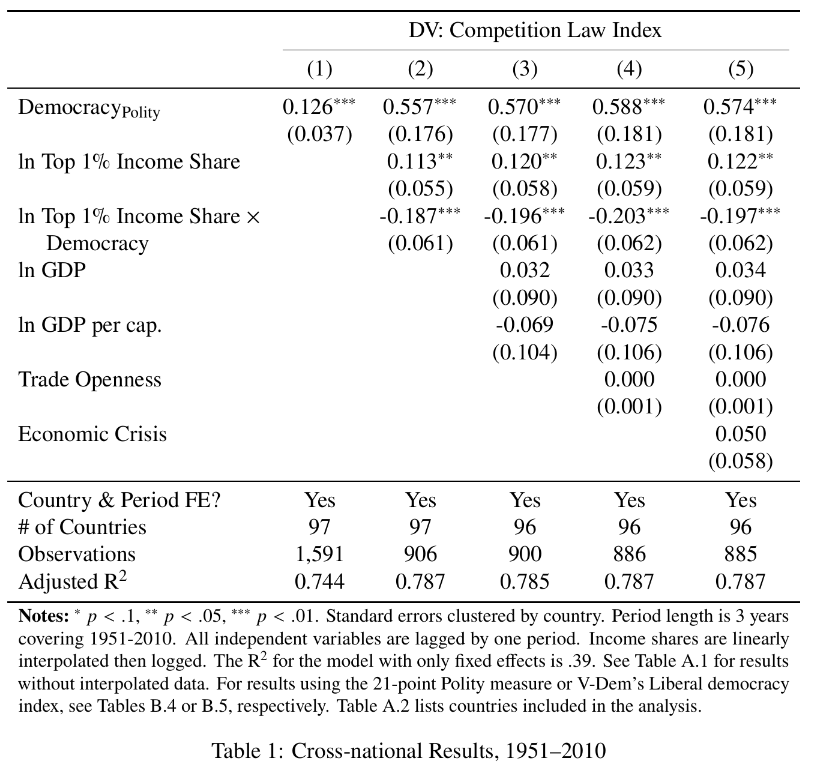
#32 – August 2025
Politician beliefs about voters – Self-assessment and solidaric behaviour – Voters’ evaluation of politicians’ corruption – Inequality and party manifestoes in OECD – Voter sexism and women candidates
In @apsrjournal.bsky.social @jacklucas.bsky.social et al. compare politicians’ & citizens’ theories of voting with surveys in 11 countries. Evaluate 8 theoretical debates, e.g. sociotropic vs. pocketbook. Many differences. Politicians think voters more short-sighted & egoistic
Lucas, Jack, Lior Sheffer, Peter John Loewen, et al. 2025. “Politicians’ Theories of Voting Behavior.” American Political Science Review 119 (3): 1304–21. https://doi.org/10.1017/S0003055424001060.
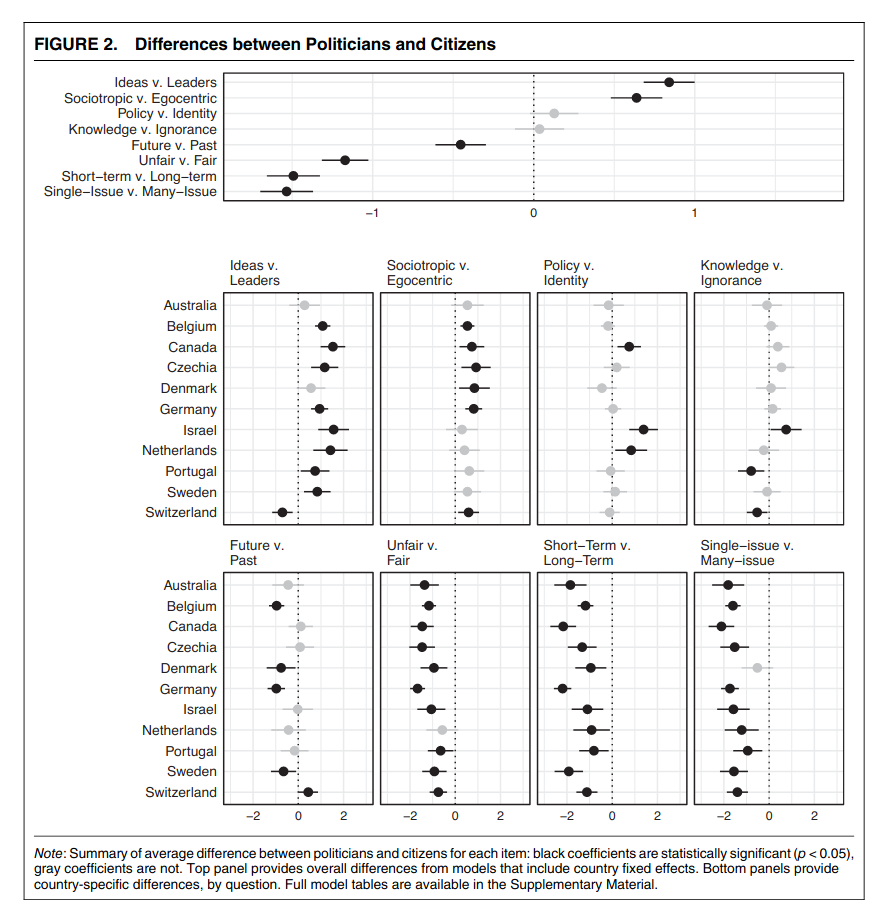
Goerres & @jeicheler.bsky.social in @electoralstudies.bsky.social, use a solidarity game to study whether party alliance or left-right self-assessment predicts solidarity in 🇩🇪 & 🇦🇹. They find that left-right selfplacement predicts solidaric behaviour but depends on context.
Goerres, Achim, and Jakob Eicheler. 2025. ‘Do Voters on the Left Show More Solidarity Behaviour? Novel Behavioural Evidence from Interactive Surveys in Austria, West and East Germany’. Electoral Studies 97 (October). https://doi.org/10.1016/j.electstud.2025.102980.
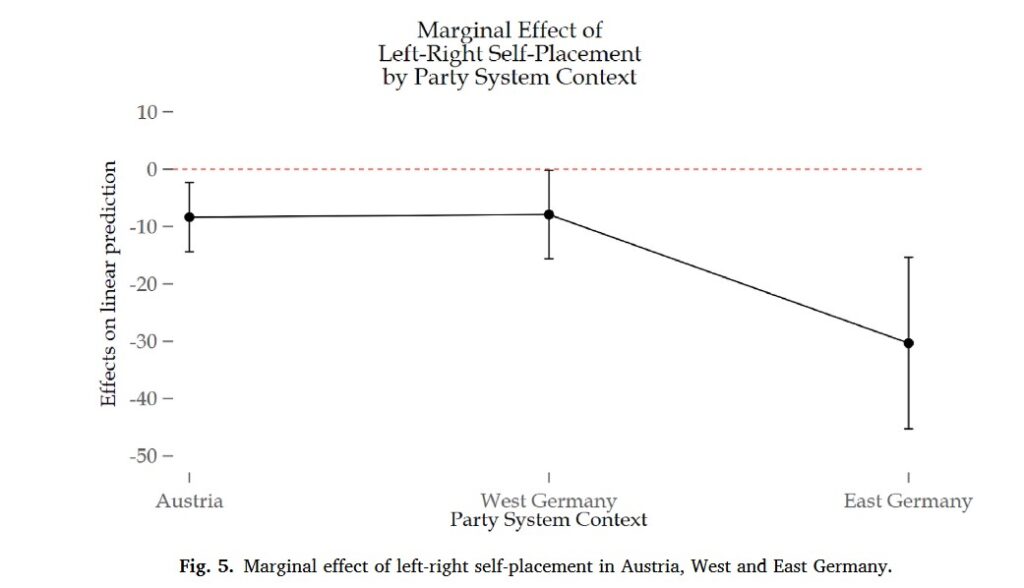
Using survey experiment, Magalhães et al (2025) in @ispp-pops.bsky.social show voters (in 🇵🇹) support weaker due process rights for corruption suspect from opposing party vs their own party. Out-group derogation prevails in-group favoritism in corruption evaluation.
Magalhães, P. C., de Sousa, L., Garoupa, N., & Costa‐Lopes, R. 2025. Out‐party, out of luck: Partisan biases in public support for due process in corruption investigations. Political Psychology. doi.org/10.1111/pops.70063
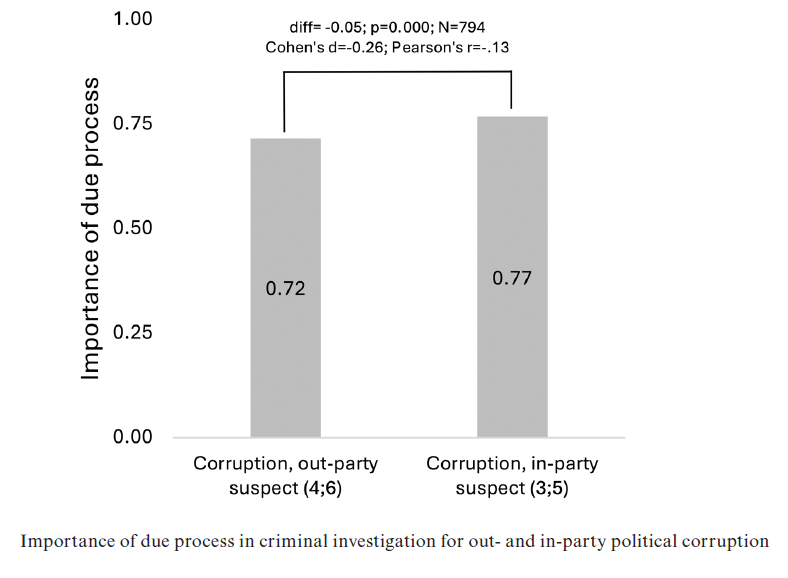
In APSR, @alexanderhorn.bsky.social @klueserthan.bsky.social & Haselmayer study party manifesto response to income inequality in 12 OECD countries. Left parties mention economic inequality issues more when inequality increases, but not in higher inequality settings
Horn, Alexander, Martin Haselmayer, and K. Jonathan Klüser. 2025. ‘Why Inequalities Persist: Parties’ (Non)Responses to Economic Inequality, 1970–2020’. American Political Science Review, August 7, 1–19. https://doi.org/10.1017/S0003055425100907.
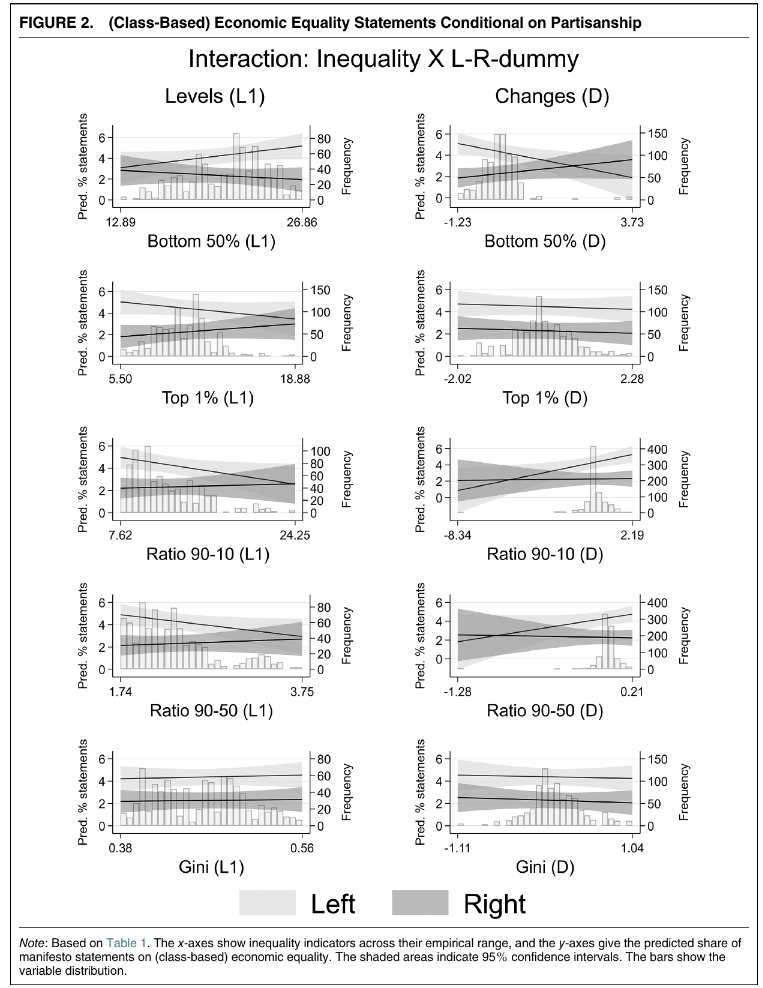
Shorrocks, Ralph-Morrow & de Geus in @bjpols.bsky.social study voter sexism and electoral penalties for women candidates. While they find no effect for voter sexism on support for women generally, they find that abstention is an electoral choice for sexist partisans in the USA.
Shorrocks, Rosalind, Elizabeth Ralph-Morrow, and Roosmarijn de Geus. 2025. ‘Voter Sexism and Electoral Penalties for Women Candidates: Evidence from Four Democracies’. British Journal of Political Science 55 (January). https://doi.org/10.1017/S0007123425000390.
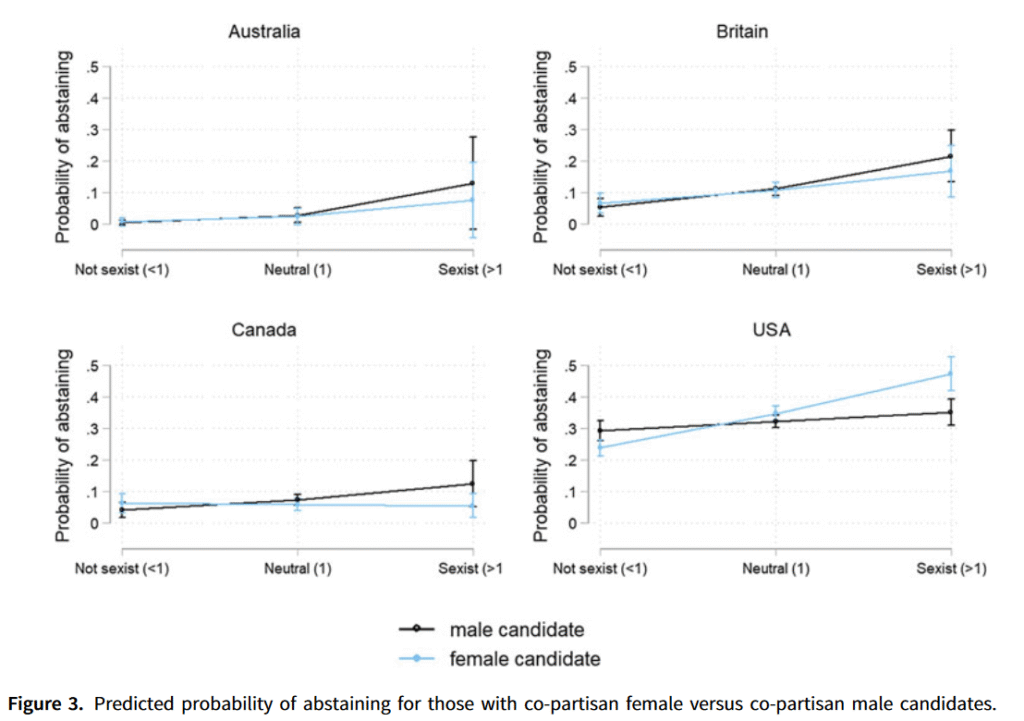
#31 – July 2025
Clientelistic and progrmmatic appeals in 🇧🇷 – Social status & far-right voting in Western Europe – Absence of causal effect of wealth on political participation in 🇸🇪 – High campaign costs and wealthy politicians – The politics of small business owners
In World Development, @mkjustesen.bsky.social @smidsina.bsky.social & Koob examine attitudes toward clientelistic & programmatic appeals with conjoint in 🇧🇷. Voters prefer programmatic offers but also hierarchy of cliententelist appeals: jobs preferred over cash.
Justesen, Mogens K., Sigrid Koob, and Sina Smid. 2025. “Clientelism and Programmatic Redistribution: Evidence from a Conjoint Survey Experiment in Brazil.” World Development 195 (November): 107124. https://doi.org/10.1016/j.worlddev.2025.107124.

In @cpsjournal.bsky.social, @alanjacobs.bsky.social & @markkayser.bsky.social analyze social status & far-right voting via ESS in West Europe 2002-2020. Downward intergeneration occupational mobility brings far-right voting, but upward mobility doesn’t protect.
Jacobs, A. M., & Kayser, M. A. (2025). Downward Mobility and Far-Right Party Support: Broad Evidence. Comparative Political Studies, 0(0). https://doi.org/10.1177/00104140251349663.

4/6 🧵In @electoralstudies.bsky.social Brännlund & @rafaelahlskog.bsky.social investigate causal effect of wealth on participation. Use twins & wealth registers in 🇸🇪. Results from twin pair FE models do not show effect on voting & effect on civic participation closer to negative
Anton Brännlund and Rafael Ahlskog, “Do the Rich Ditch Politics? Evidence from Sweden,” Electoral Studies 96 (August 2025): 102966, https://doi.org/10.1016/j.electstud.2025.102966.

In @ajpseditor.bsky.social @luciamotoliniac.bsky.social Klašnja & @simonweschle.bsky.social show that higher pressures to spend in campaigns leads to a wealthier politician pool. Use data on MP wealth from 40 countries, & quasiexperimental evidence from 🇧🇷 & 🇨🇱
Motolinia, Lucia, Marko Klašnja, and Simon Weschle. 2025. “The Super Rich and the Rest: Campaign Finance Pressures and the Wealth of Politicians.” American Journal of Political Science n/a (n/a). https://doi.org/10.1111/ajps.12996.

In @bjpols.bsky.social, @nmalhotra.bsky.social and colleagues study small business owners (sbo) and their voting behaviour. They find that sbo’s are more likely to vote for right-wing parties, because of their experience, leading to conservative views on gov. regulation.
Malhotra, Neil, Yotam Margalit, and Saikun Shi. 2025. ‘The Politics of Small Business Owners’. British Journal of Political Science 55 (January): e94. https://doi.org/10.1017/S0007123425000274.

#30 – June 2025
Motivations for campaign contributions in 🇨🇴 – Abolition of compulsory voting in 🏴- Policy ideas and law-making in the 🇺🇸 – Teenagers’ political efficacy in the 🇳🇱 – NIMBYism in 🇨🇭
In @bjpols.bsky.social Rueda & Ruiz ask if electoral results affect donors’ behavior. Mayoral races RD in 🇨🇴, where re-election is not allowed. Look at motivations of investor & family donors. Investors get contracts (Table 2) so keep donating later, but not family donors
Miguel R. Rueda and Nelson A. Ruiz, “How Do Electoral Outcomes Affect Campaign Contributions? The Role of Personal Loyalty and Investment Motives,” British Journal of Political Science 55 (2025): e86, https://doi.org/10.1017/S000712342400036X
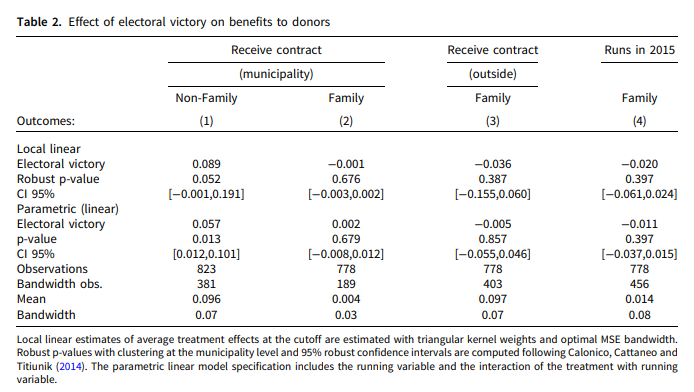
In @pspolisci.bsky.social Hooghe & Stiers study the abolition of compulsory voting in Flanders (26% drop in turnout). Key finding: Women, younger & politically disinterested citizens most likely to stop voting. Challenges the idea that higher education/income = higher turnout.
Hooghe, Marc, and Dieter Stiers. “Abolishing Compulsory Voting: The 2024 Experience in the Flemish Region of Belgium.” PS: Political Science & Politics (2025): 1-8. https://doi.org/10.1017/S1049096525000423
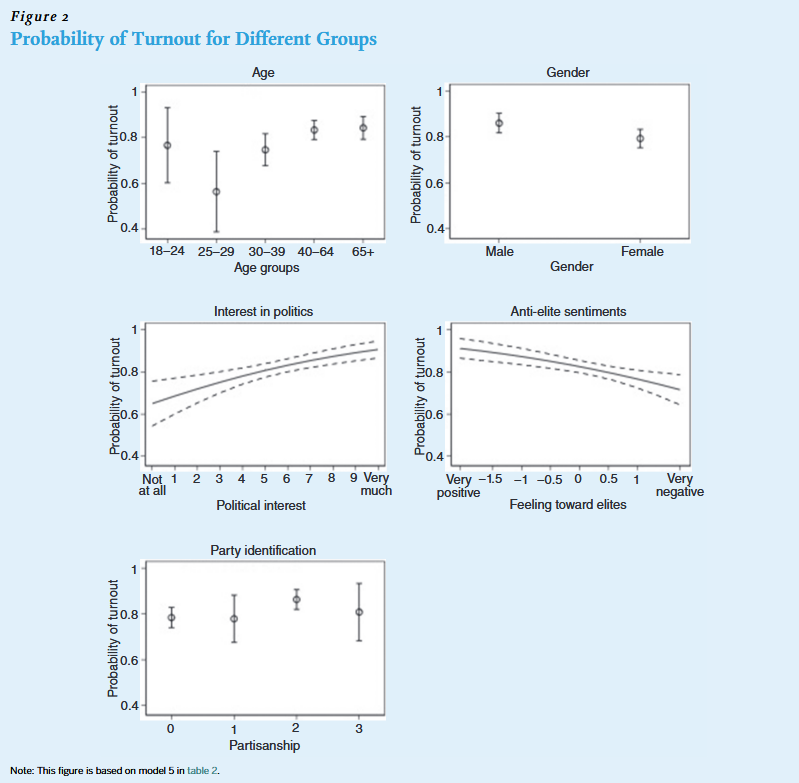
In @lsqjournal.bsky.social Gelman studies how laws are created in the 🇺🇸 & traces policy ideas to the original version proposed in Congress. He finds law construction to vary even among similar bill types & that 15% of ideas are introduced at the end of policy-making.
Gelman, Jeremy. 2025. ‘The (Sometimes Untraceable) Origins of Policy Ideas in Congress: An Analysis of Seven Landmark Laws’. Legislative Studies Quarterly, June, lsq.70023. https://doi.org/10.1111/lsq.70023.
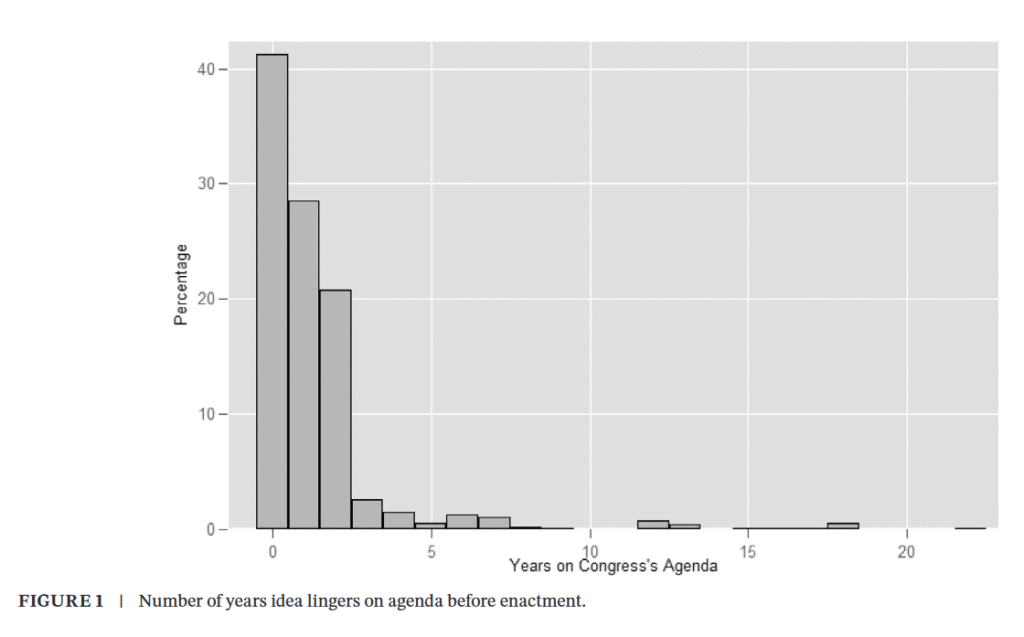
In @polbehavior.bsky.social, @jvanslageren.bsky.social Rosmalen & Mennes study inequality in internal & external political efficacy from 12 to 15 years old in a panel survey in 🇳🇱. Find inequalities by social status and gender, but the differences decrease with age
Van Slageren, Jaap, Michelle Rosmalen, and Hester I. Mennes. 2025. “Whose (Future) Democracy? Examining Inequalities in the Development of Adolescents’ Political Efficacy and the Mediating Role of Political Socialization.” Political Behavior, June. https://doi.org/10.1007/s11109-025-10052-4.
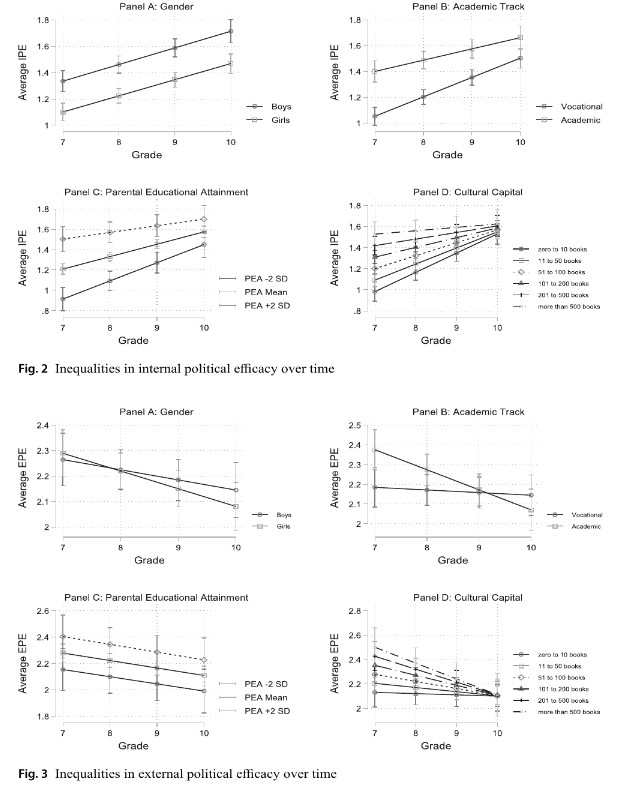
In @polbehavior.bsky.social, @lukrudolph.bsky.social, @phanxi.bsky.social & Bernauer study effects on NIMBYism. Survey experiment in 🇨🇭. Results show NIMBY opposition occurs even when there are localized benefits & that it depends on ex ante perceptions of costs/benefits.
Rudolph, Lukas, Franziska Quoß, and Thomas Bernauer. 2025. “How Relevant Is NIMBYism to Citizens’ Support for the Large-Scale Deployment of Public Goods? Experimental Evidence from 5G Antenna Placement in Switzerland.” Political Behavior, May. https://doi.org/10.1007/s11109-025-10047-1.
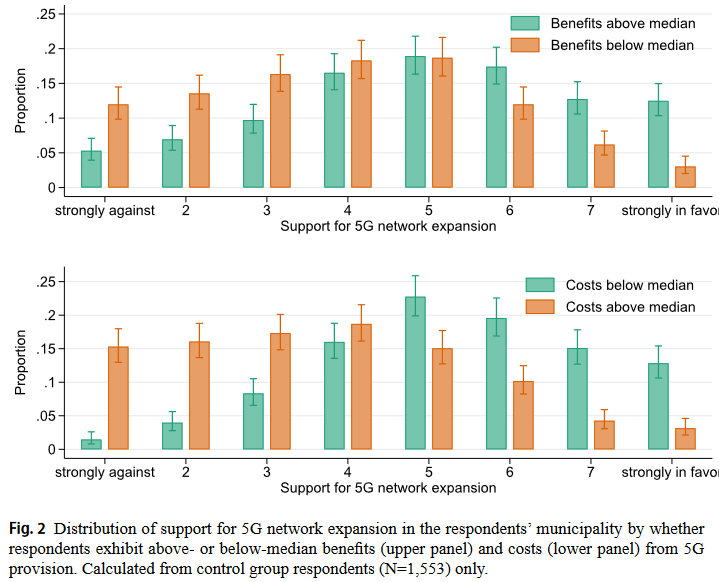
#29 – May 2025
Politician quality in 🇮🇳 – Economic deprivation & right-wing support in Western Countries – Campaign limits and organized interests in 🇧🇷 – Perceptions of immigrant integration & support for redistribution in high-income countries- No political ambition class gaps in the Americas
In @bjpols.bsky.social, Chaudhuri et al. examine politician quality in 🇮🇳 with lab in the field experiment. Key focus on cognitive ability & integrity. Politicians more honest, educated and motivated but also lower cognitive ability than average villager.
Chaudhuri, Ananish, Vegard Iversen, Francesca R. Jensenius, and Pushkar Maitra. 2025. “Selecting the ‘Best’? Competing Dimensions of Politician Quality in the Developing World.” British Journal of Political Science. https://doi.org/10.1017/S0007123425000225.
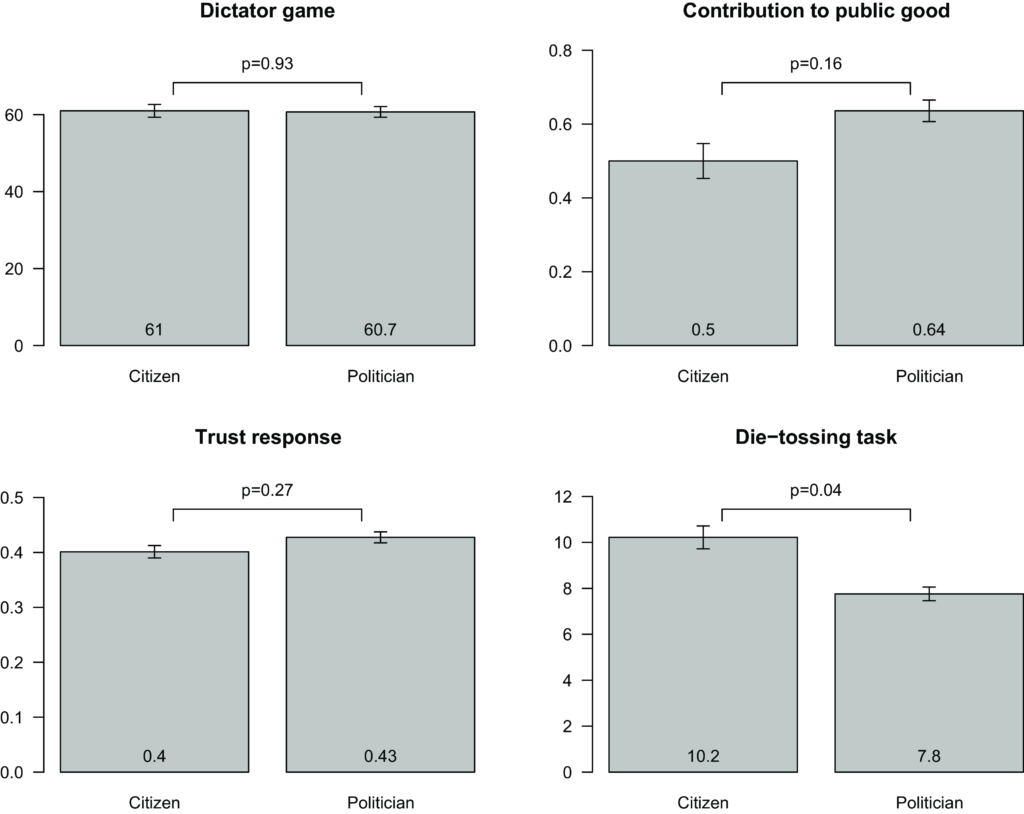
Using individual-level data from 23 Western 🇪🇺 countries Ciccolini, in @poppublicsphere.bsky.social, researches the connection of economic deprivation and RPP support. The study confirms the cultural and economic explanations for RPP support and its electoral consequences.
Ciccolini, Giuseppe. 2025. ‘Who Is Left Behind? Economic Status Loss and Populist Radical Right Voting’. Perspectives on Politics, April, 1–18. https://doi.org/10.1017/S1537592724002858.
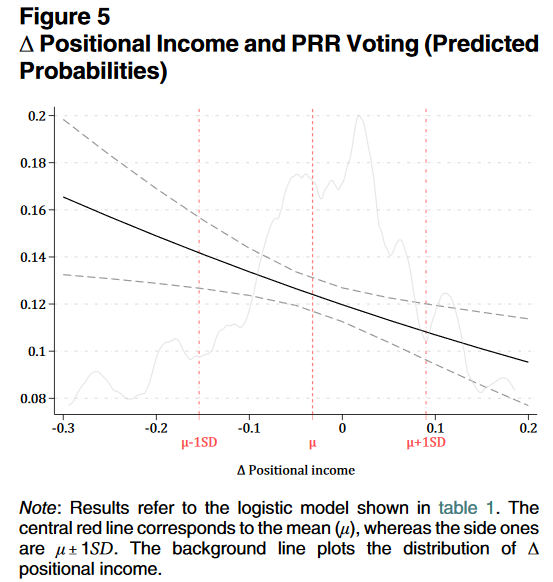
In @thejop.bsky.social Cammett, @lmnovaes.bsky.social & Tuñón study if spending limits help organized interests. RDD + 🇧🇷’s 2016 reform. Find that party linked to centralized evangelical church (relies less on campaign material inducements) fields more candidates & wins more post-reform
Cammet, Melani, Lucas Novaes and Guadalupe Tunon. 2025. “Special Interest Trade-Offs: Campaign Finance Reforms and Religious Influence in Politics in Brazil”. The Journal of Politics. https://doi.org/10.1086/736804
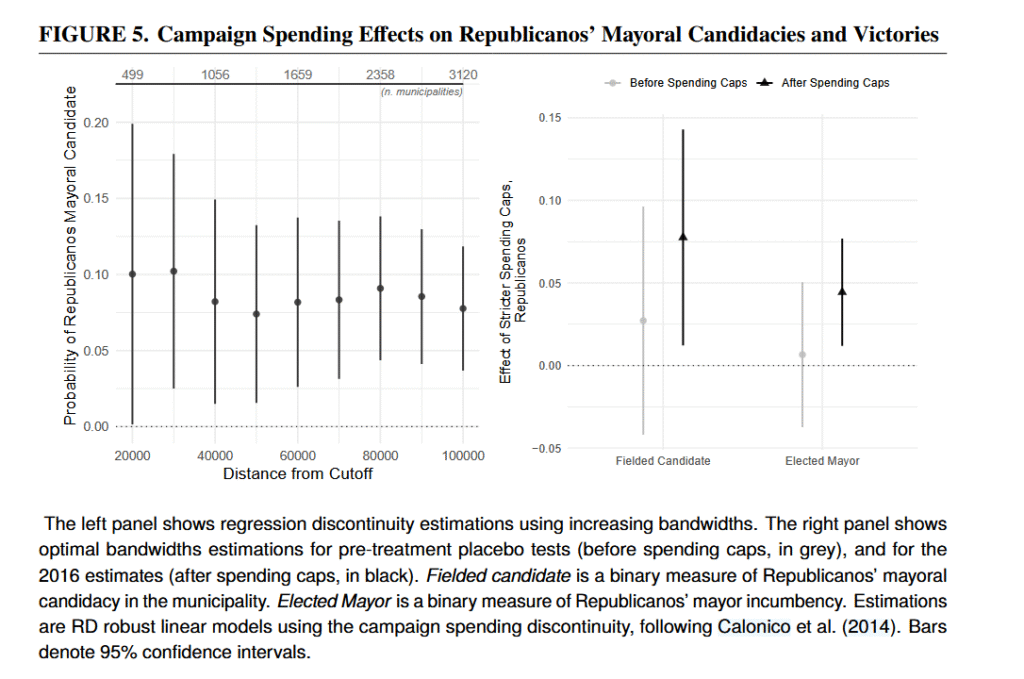
In @cpsjournal.bsky.social @allisonharell.bsky.social Banting & Kymlicka use survey data from y OECD countries to show that beliefs of how much immigrants are perceived as committed members of the host society drive support for redistribution (towards migrants).
Harell, Allison, Keith Banting and Will Kymlicka. 2025. “Inclusive Redistribution of Membership: A Cross-National Comparison”. Comparative Political Studies. https://doi.org/10.1177/00104140251342924
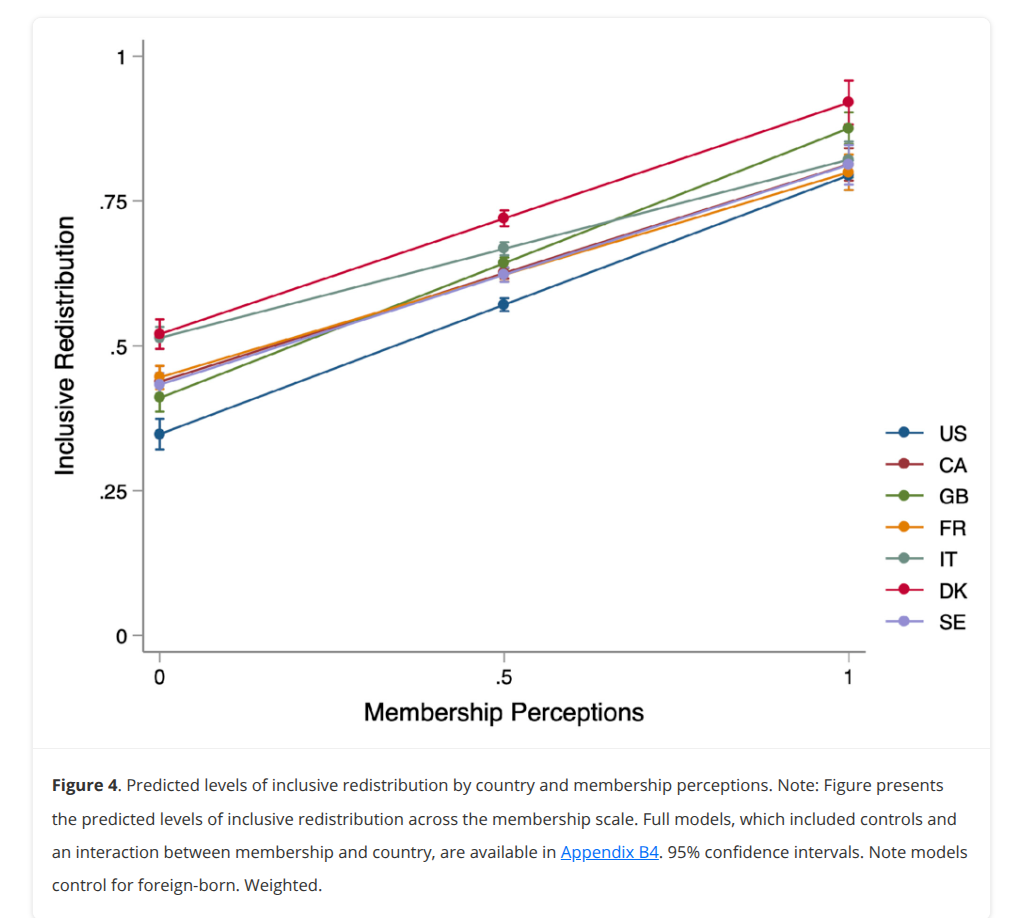
In @thejop.bsky.social,, @carnes.bsky.social & @noamlupu.bsky.social examine class differences in basic political ambition among potential candidates with survey data from 8 American countries. Class not a driver of ambition, but gender is.
Carnes, Nicholas, and Noam Lupu. 2025. “Are There Social Class Gaps in Nascent Political Ambition? Survey Evidence from the Americas.” The Journal of Politics, May, 000–000. https://doi.org/10.1086/734284.
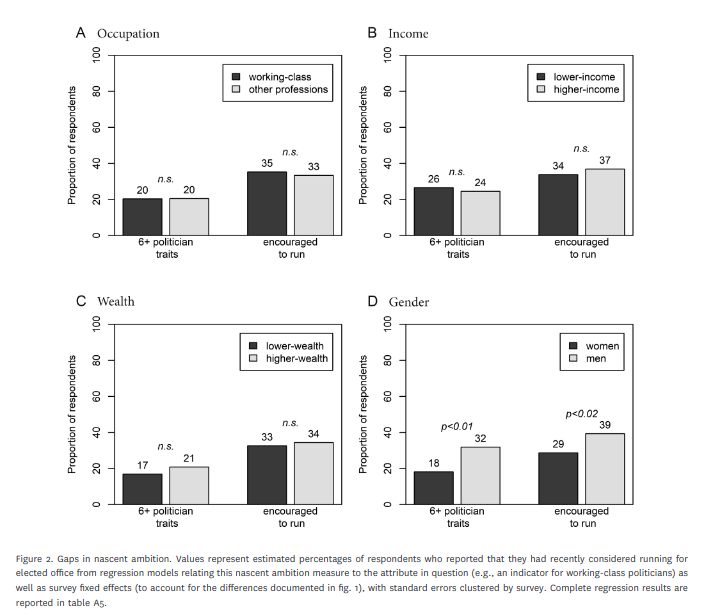
#28 – April 2025
Pledge Fulfillment in 🇨🇦 🇦🇹 🇨🇿 🇸🇰 🇸🇪 – Geographic representation in 🇩🇪 – Unequal responsiveness in 🇪🇺 – Housing crisis in 🇵🇹 – Subjective local inequality in 🇺🇸
In Party Politics, @theresmatthiess.bsky.social, Vodová & @frasmcm.bsky.social study role of ministerial experience for electoral pledge fulfillment in 🇨🇦 🇦🇹 🇨🇿 🇸🇰 🇸🇪. Previous experience in same ministry crucial, prof. experience has no effect
Matthieß, Theres, Petra Vodová, and Fraser McMillan. 2025. “Does It Matter Who Is in Charge? Ministerial Characteristics and Pledge Fulfilment.” Party Politics, May, 13540688251339622. https://doi.org/10.1177/13540688251339622.
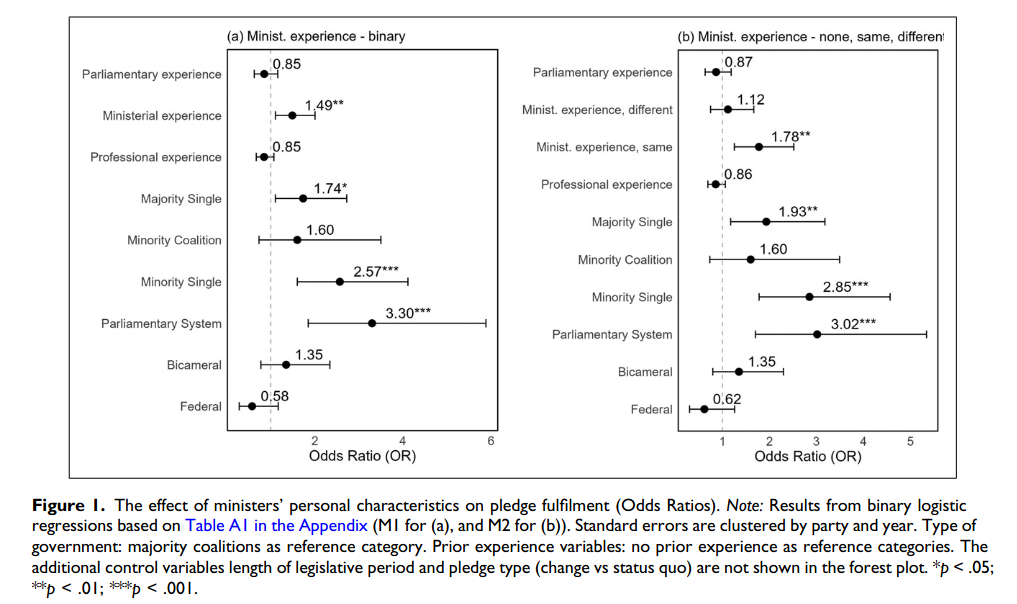
In @ejpgjournal.bsky.social, Harmening & co-authors study geographic representation in 🇩🇪 cities. Parties are more likely to appeal to their electoral strongholds, especially when voters are highly localized & electoral system incentivizes geographic voter targeting.
Harmening, Morten, Jona-Frederik Baumert, Sebastian Block, Martin Gross, Dominic Nyhuis, and Jan Velimsky. 2025. “Geographic Representation in Local Politics: Evidence from Parliamentary Questions in German City Councils.” European Journal of Political Research n/a (n/a). https://doi.org/10.1111/1475-6765.70019.
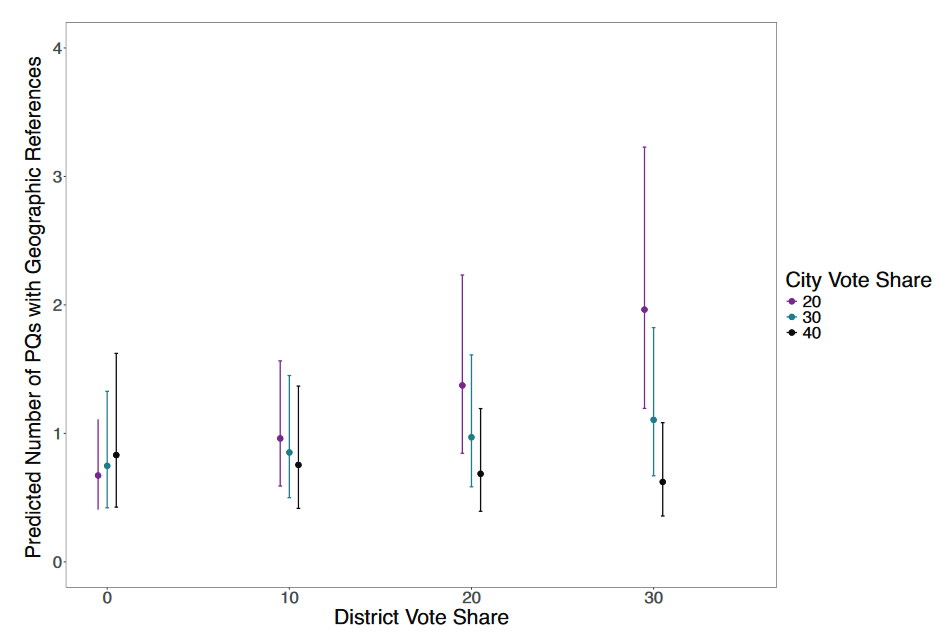
In EJPR Lindqvist, Persson, Schakel & Sundell study electoral origin of unequal policy responsiveness in Europe. Richer vote more, are closest to preferred party + more likely to have it in cabinet. But this does not mediate the effect of income on policy responsiveness
Lindqvist, Jesper, Mikael Persson, Wouter Schakel, and Anders Sundell. 2025. “Poor Choices? Examining the Electoral Connection behind Unequal Policy Representation.” European Journal of Political Research n/a (n/a). https://doi.org/10.1111/1475-6765.70015.
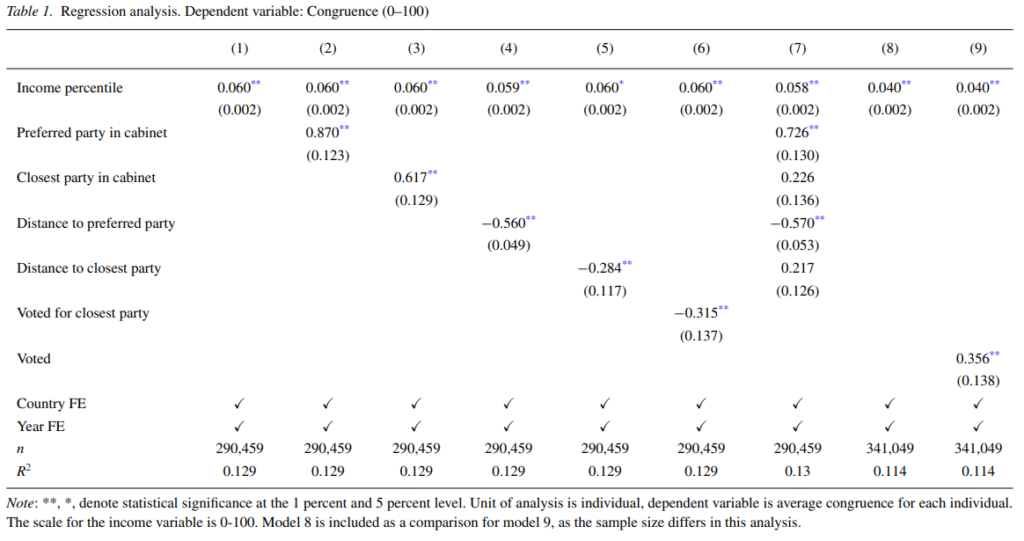
With a national survey, Raquel Ribeiro et al. use an interdisciplinary approach to study the 🇵🇹 housing crisis, in @ispp-pops.bsky.social. They find 4 distinct positions on the housing crisis, rooted in societal, moral & political perspectives & propose an advocacy framework.
Ribeiro, Raquel, Gabrielle Poeschl, and Ana Cordeiro Santos. 2025. ‘The Different Sides of the Housing Crisis in Portugal: A Contribution to Building Inclusive, Fair, and Effective Solutions’. Political Psychology n/a (n/a). https://doi.org/10.1111/pops.70025.
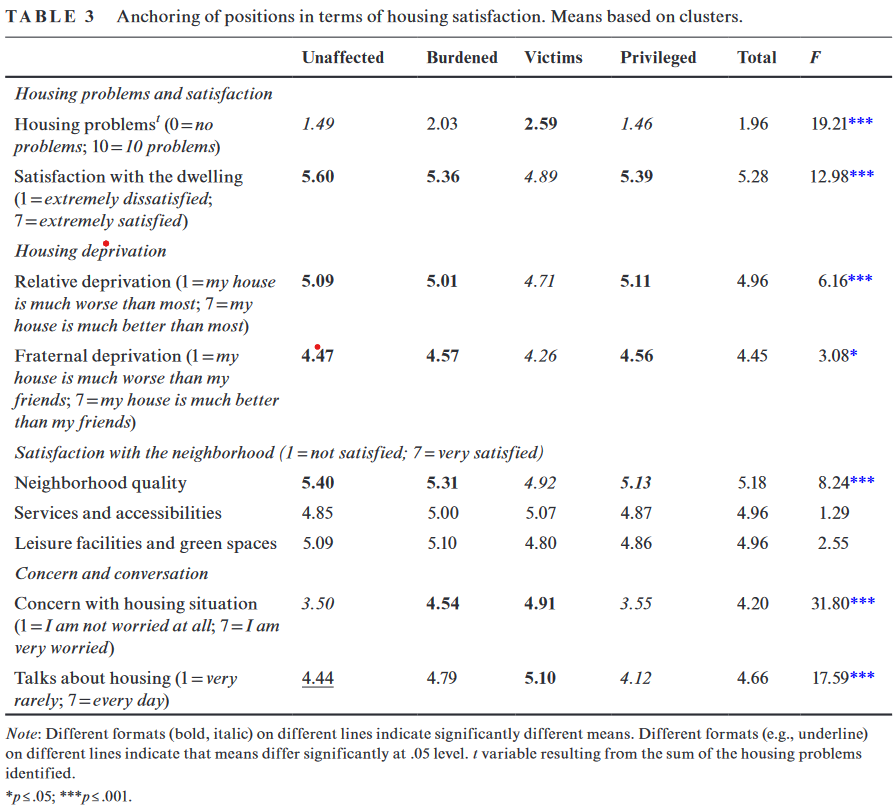
n @psrm.bsky.social, Newman compares measures of subjective local inequality to objective measures (Gini, rich-poor gap, joint prevalence of rich and poor households). Joint prevalence of rich and poor most strongly related to subjective measures & demand for redistribution.
Newman, Benjamin J. 2025. “Using Contextual Measures to Capture Citizens’ Perception of Inequality in Their Surrounding Environment.” Political Science Research and Methods, April, 1–10. https://doi.org/10.1017/psrm.2025.24.
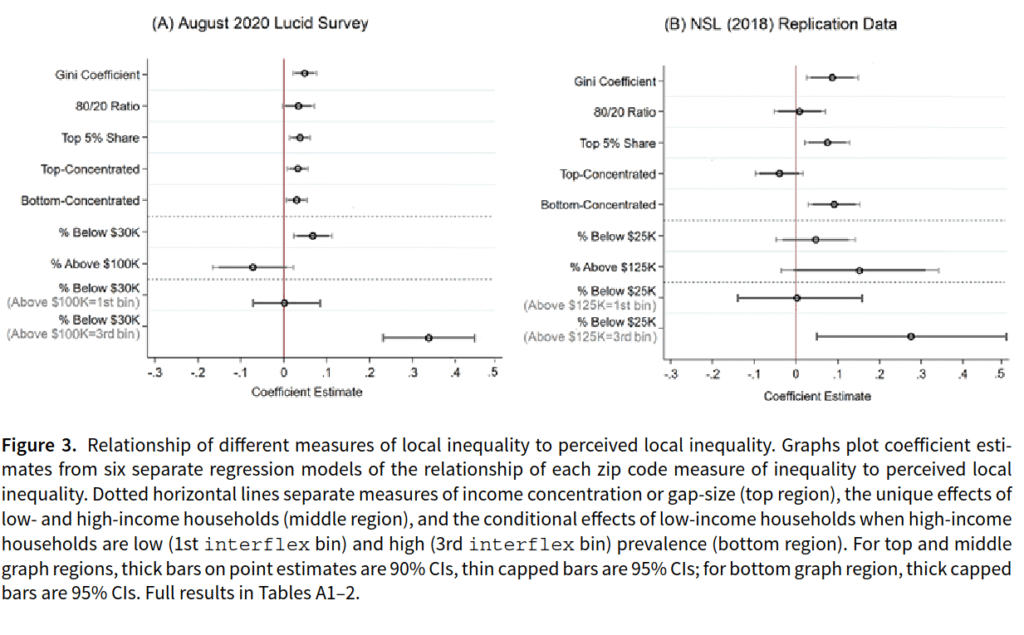
#27 – March 2025
lockdowns and support for Trump in the US – left parties and redistribution – electoral role of candidate education – tax preferences in Latin America – City councillors’ roll-call voting in Chicago and Toronto
In @cpsjournal.bsky.social, @alicexu.bsky.social & Iversen ask if economic, rather than cultural factors, drive support for right-wing populists. Staggered DiD in the US & covid lockdowns. In states with less educated people (cannot work from home) lockdowns increase Trump support
Iversen, Torben, and Alice Xu. 2025. “The Politics of Pessimism: Unfunded Public Goods as a Source of Right-Wing Populism.” Comparative Political Studies, March, 00104140241312101. https://doi.org/10.1177/00104140241312101.

In EJPR, @alexanderhorn.bsky.social @klueserthan.bsky.social & Martin Haselmayer study the priorities of left parties in 12 OECD countries. While they find no evidence for a crowding out of redistribution generally, they show that some Social Democrats abandoned economic equality.
Horn, Alexander, K. Jonathan Klüser, and Martin Haselmayer. n.d. ‘Social Progress at the Expense of Economic Equality? New Data on Left Parties’ Equality Preferences’. European Journal of Political Research n/a (n/a). Accessed 3 April 2025. https://doi.org/10.1111/1475-6765.70008.

In @thejop.bsky.social @elizabethsim0n.bsky.social & @turnbulldugarte.com do a meta-analysis of role of candidate education in conjoint experiments. More educated candidates preferred by all, but more so by more educated respondents, suggesting a possible in-group bias
Simon, Elizabeth, and Stuart J. Turnbull-Dugarte. 2025. ‘Education as Identity? A Meta-Analysis of Education-Based In-Group Preferences in Candidate Choice Experiments’. The Journal of Politics, April. https://doi.org/10.1086/730745.

In @cpsjournal.bsky.social Heilbrun studies tax preferences in the Latinobarometro. High perceived inequality associated with a preference towards a narrower tax base. Suggests a reason why revenue from direct taxes in LA is low
Heilbrun, Guy. 2024. “Perceived Inequality as an Impediment to Mass Taxation: Evidence From Latin America.” Comparative Political Studies (2024).
https://doi.org/10.1177/00104140251328028.

In @thejop.bsky.social @bigcitypolitics.bsky.social & Armstrong study elite conflict using councilors’ roll-call votes. Original dataset over many terms in Chicago & Toronto. Against a pluralist expectation, councilors’ conflict is low-dimensional but durable across terms
Taylor, Zack, and David A. Armstrong. 2025. “Political Divisions in Large Cities: The Socio-Spatial Basis of Legislative Behavior in Chicago and Toronto.” The Journal of Politics, March, 000–000. https://doi.org/10.1086/732976.
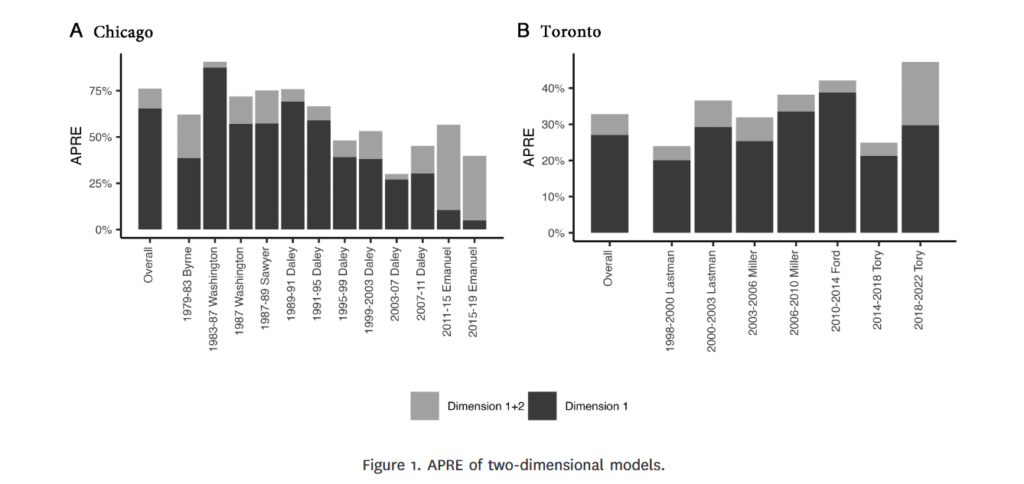
#26 – February 2025
Genetics & political participation in 🇺🇸🇸🇪 – Historical formation of african borders – Colonial mapmaking & ethnic identity – Occupational backgrounds of MPs in 🇩🇪 🇺🇸 🇸🇪 – Economic inequality & right-wing support in 🇸🇪
In @polbehavior.bsky.social, @rafaelahlskog.bsky.social, Dawes, Oskarsson, & Weinschenk study the relationship b/w genetics & political participation. 4 Studies using polygenic indices (PGIs) in 🇺🇸🇸🇪. Results show that genetics predict participation, even within families.
Ahlskog, Rafael, Christopher Dawes, Sven Oskarsson, and Aaron Weinschenk. 2025. “The Genetics of Political Participation: Leveraging Polygenic Indices to Advance Political Behavior Research.” Political Behavior, February. https://doi.org/10.1007/s11109-025-10020-y.

In @apsrjournal.bsky.social, @jackpaine.bsky.social. Qiu, & @ricarthuguet.bsky.social challenge established view of African borders as arbitrary. Instead, African borders formed by historical, geographical realities. Data on pre- and postcolonial borders.
Paine, Jack, Xiaoyan Qiu, and Joan Ricart-Huguet. 2025. “Endogenous Colonial Borders: Precolonial States and Geography in the Partition of Africa.” American Political Science Review 119 (1): 1–20. https://doi.org/10.1017/S0003055424000054.

In @bjpols.bsky.social, Houle & Conroy-Krutz argue colonial mapmaking has long term impact on ethnic identity. Use Afrobarometer data from 26 countries to show groups partitioned by border identify less with ethnicity. Mechanism via weakening traditional authorities by partition.
Houle, Christian, and Jeffrey Conroy-Krutz. 2025. “Colonial Mapmaking, Ethnic Identity, and Traditional Authority in Africa.” British Journal of Political Science 55:e28. https://doi.org/10.1017/S0007123424000759.

In @ajpseditor.bsky.social @miacosta.bsky.social & @miguelpereira.bsky.social study how occupational backgrounds shape MPs’ ability to garner support for their policies. Survey experiments in 🇩🇪 🇺🇸 🇸🇪. Find some experience credibility bonus among citizens & politicians
Costa, Mia, and Miguel M. Pereira. 2025. “Why Parties Can Benefit from Promoting Occupational Diversity in Legislatures: Experimental Evidence from Three Countries.” American Journal of Political Science, February, ajps.12951. https://doi.org/10.1111/ajps.12951.

In party politics, Jeffrey Nonnemacher and Jennifer Fitzgerald ask if economic inequality motivates right-wing support. Survey experiment in 🇸🇪 cueing respondents about local or national inequality. Cues about local inequality particularly decrease support for Swedish far-right
Nonnemacher, Jeffrey, and Jennifer Fitzgerald. 2025. “Rejecting the Radical Right: Local Inequality and Party Support.” Party Politics, February, 13540688251317584. https://doi.org/10.1177/13540688251317584.

#25 – January 2025
Political responsiveness in 🇩🇰 & 🇳🇱 – Populist parties & congruence in 🇩🇪🇳🇱🇮🇹🇸🇪 – Effect of income on turnout in 🇳🇴 – Returns to office in 🇩🇰 – Electoral effects of coal phase-outs in 🇩🇪
Rasmussen, Anne, and Simon Otjes. “Responding to Whom? An Experimental Study of the Dynamics of Responsiveness to Interest Groups and the Public.” Journal of European Public Policy 32, no. 3 (March 4, 2025): 727–54. https://doi.org/10.1080/13501763.2024.2306226.
In @jeppjournal.bsky.social, @annerasmussen.bsky.social & @simonotjes.bsky.social ask: are politicians more responsive to interest groups or public opinion? Vignette experiments in 🇩🇰 & 🇳🇱 with politicians. Effect of public opinion positive, stronger, and more general.
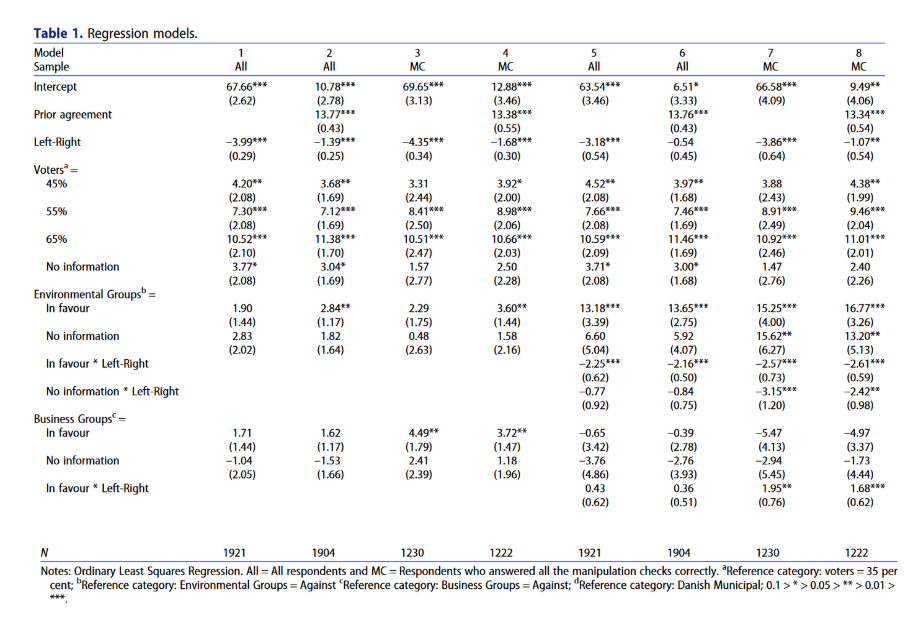
Zhirnov, Andrei, Jan Philipp Thomeczek, Michele Scotto Di Vettimo, Alberto López Ortega, André Krouwel, Lorenza Antonucci, Roberta Di Stefano, and Norbert Kersting. 2025. “How Congruent Are Populist Parties with Their Constituencies? Evidence from the 2019 European Parliament Elections in Italy, the Netherlands, Germany and Sweden.” Electoral Studies 94 (April):102906. https://doi.org/10.1016/j.electstud.2025.102906.
In @electoralstudies.bsky.social, Zhirnov, @drphilphil.bsky.social, and co-authors study congruence b/w populist parties & their voters. VAA data from 🇩🇪🇳🇱🇮🇹🇸🇪. Show populist parties are best choice for their voters, but congruence is not higher compared to other parties.
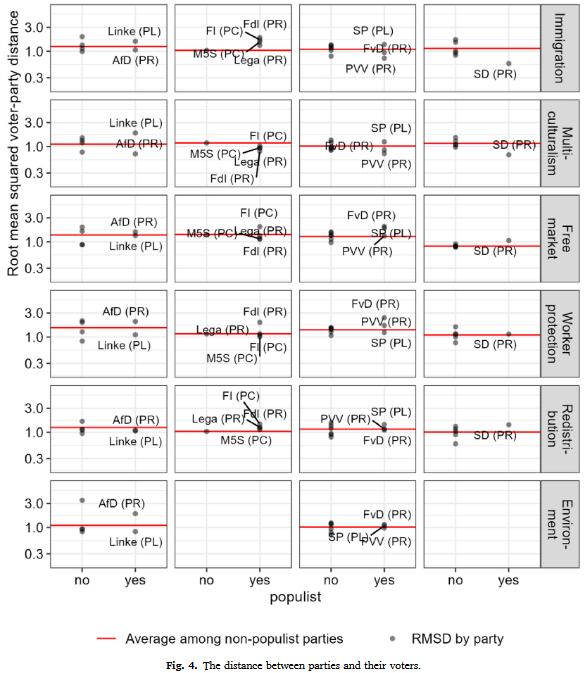
Geys, Benny, and Rune J. Sørensen. 2025. “The Causal Effect of Affluence on Voter Turnout: New Evidence from Lottery Winnings.” British Journal of Political Science 55 (January):e7. https://doi.org/10.1017/S0007123424001005.
In @bjpols.bsky.social, Geys & Sørensen compare current & former lottery winners in the whole 🇳🇴 to estimate the effect of income on turnout. They find a small effect when gains are close to election date.
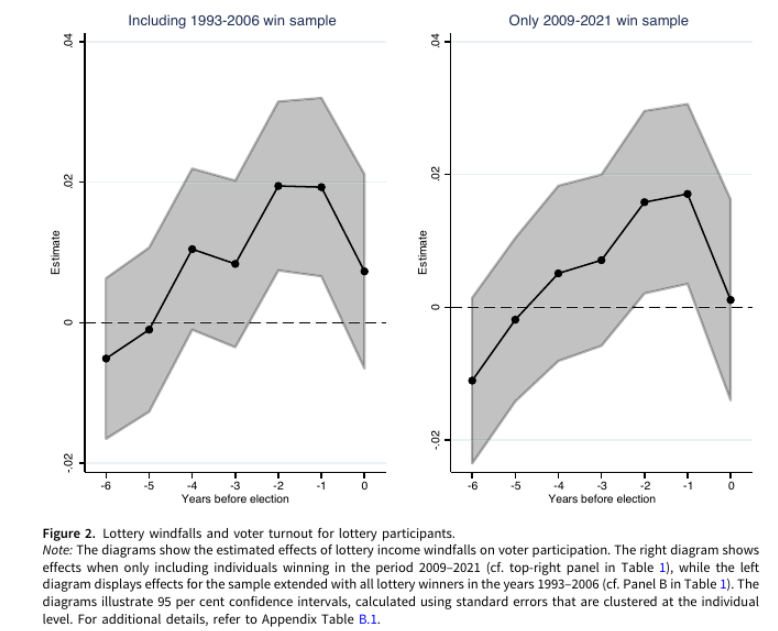
Dahlgaard, Jens Olav, Frederik K. Kjøller, und Nicolai Kristensen. „Reward or Punishment? The Distribution of Life-Cycle Returns to Political Office“. Political Science Research and Methods, 6. Januar 2025, 1–9. https://doi.org/10.1017/psrm.2024.67.
In @psrm.bsky.social, Dahlgaard, @fkjoeller.bsky.social and Kristensen research whether political careers are economically attractive. Using administrative data they find that based on total income all 🇩🇰 MPs experience short-term economic gains during their first term.
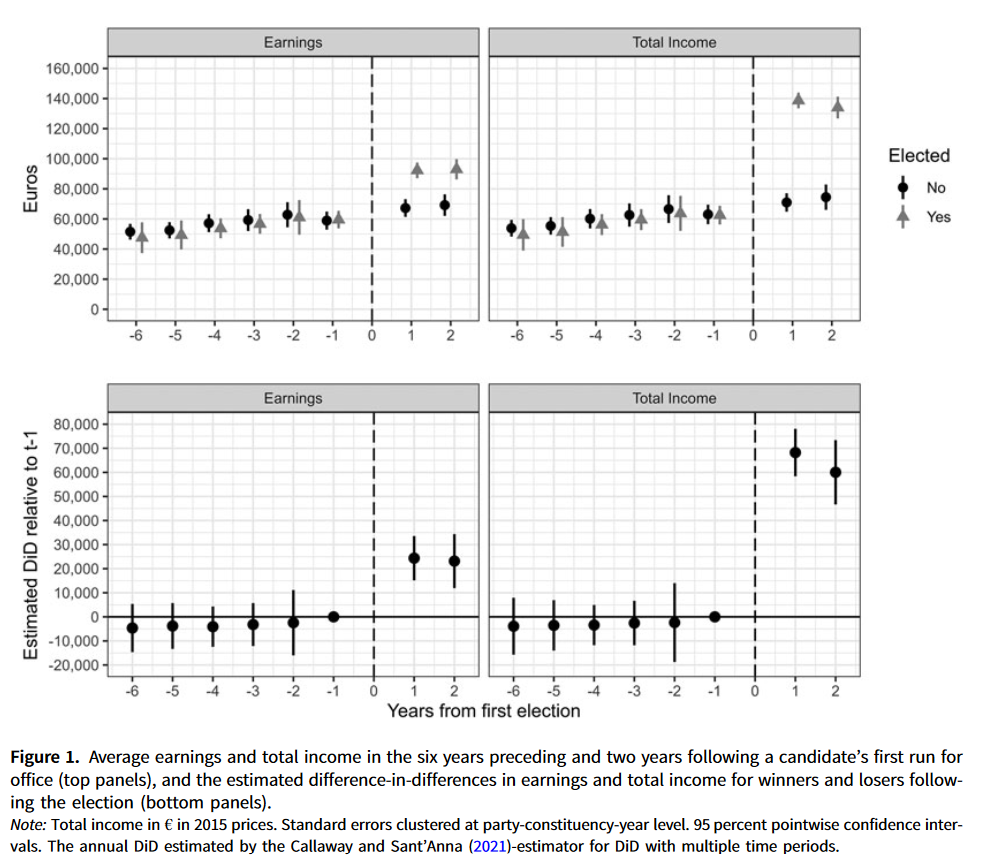
Stutzmann, Sophia. n.d. “Asymmetric Backlash against Structural Economic Change: The Electoral Consequences of the Coal Phase-out in Germany.” European Journal of Political Research n/a (n/a). Accessed February 7, 2025. https://doi.org/10.1111/1475-6765.70003.
IN EJPR, @slstutzmann.bsky.social studies electoral effects of coal phase-outs in 🇩🇪 with admin data & DID design. Punishment of issue owners (left parties) and abstention increase. Not caused by real economic decline but perceived deprivation & loss of status.
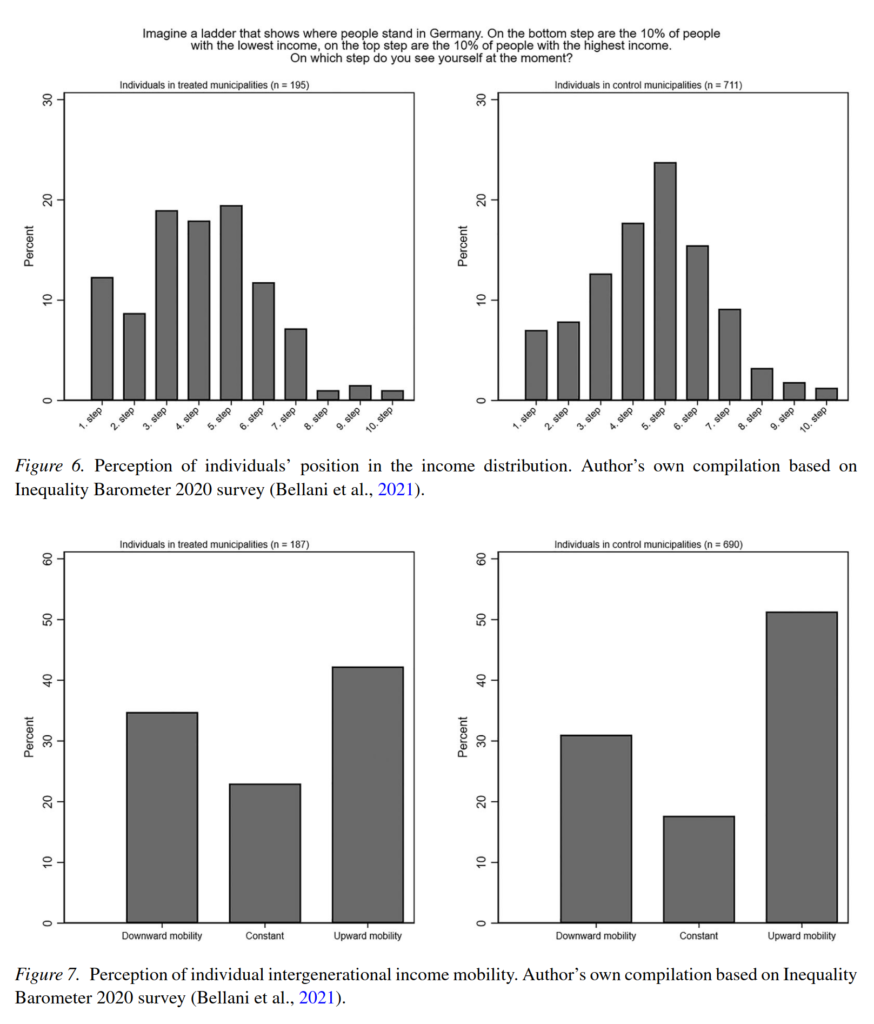
#24 – December 2024
Responsiveness to poor people in 🇧🇪🇩🇪🇨🇦🇨🇭 – Rental market risk and radical right support in 🇩🇪 – Exploitation of migrants in 🇮🇹 – Perceptions of social mobility in 🇪🇺 – Electoral incentives for public housing in 🇩🇪
Sevenans, Julie, Awenig Marié, Christian Breunig, Stefaan Walgrave, Karolin Soontjens, and Rens Vliegenthart. n.d. “Are Poor People Poorly Heard?” European Journal of Political Research n/a (n/a). Accessed December 20, 2024. https://doi.org/10.1111/1475-6765.12750
In EJPR Sevenans, @breunig.bsky.social, @rensvliegenthart.bsky.social & others study politician estimates of electorate policy positions in 🇧🇪🇩🇪🇨🇦🇨🇭 using original surveys. Politician estimates are closer to what richer citizens think, but only on socio-economic topics.
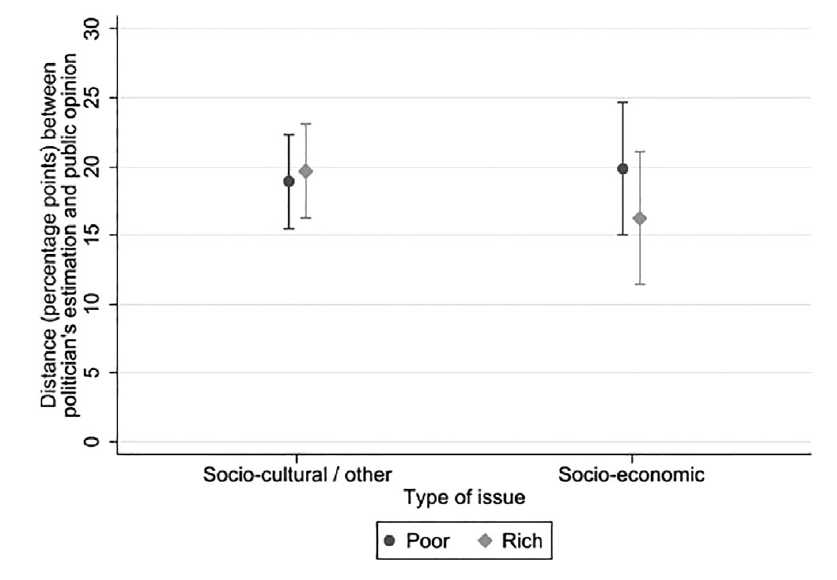
Abou-Chadi, Tarik, Cohen, Denis and Kurer, Thomas “Rental Market Risk and Radical Right Support.” Comparative Political Studies. 2024. https://doi.org/10.1177/00104140241306963
In @cpsjournal.bsky.social @tabouchadi.bsky.social @denis-cohen.bsky.social & @thmskrr.bsky.social study rental market risk & far-rigth support in 🇩🇪. Use geo-referenced attitudes & rent panel. Poorer long-term renters of increasing rent areas more likely to support the AfD.
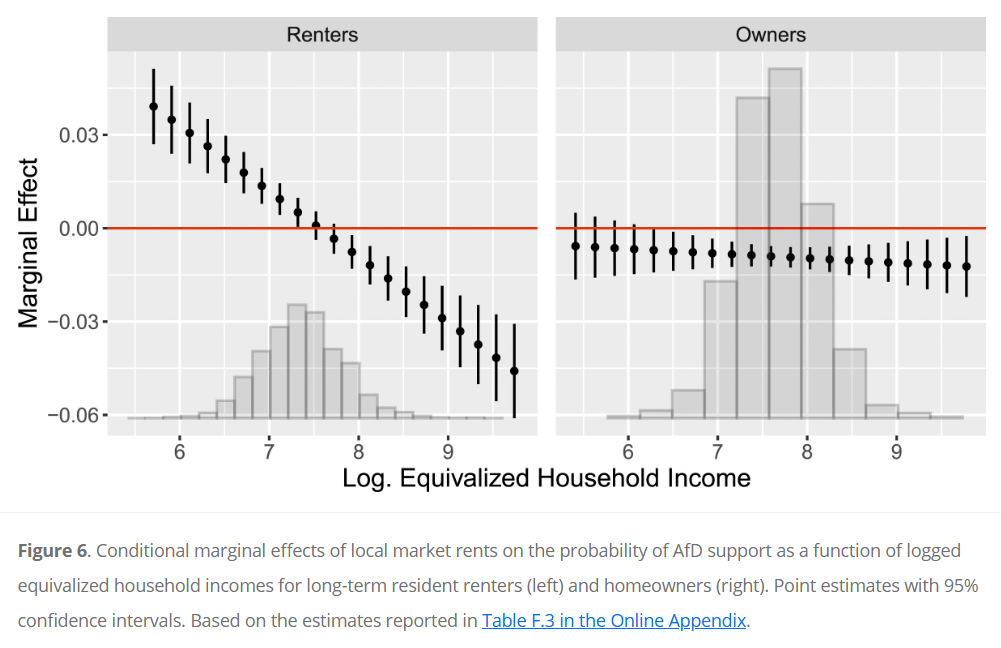
Dipoppa, Gemma. “When Migrants Mobilize against Labor Exploitation: Evidence from the Italian Farmlands.” American Political Science Review, 2024, 1–18. https://doi.org/10.1017/S0003055424001138
In @apsrjournal.bsky.social @gemmadipoppa.bsky.social studies the impact of an intervention designed to fight labor exploitation of undocumented migrants in 🇮🇹. Findings show that the intervention can reduce labor exploitation, weaken organized crime & raise awareness among locals.
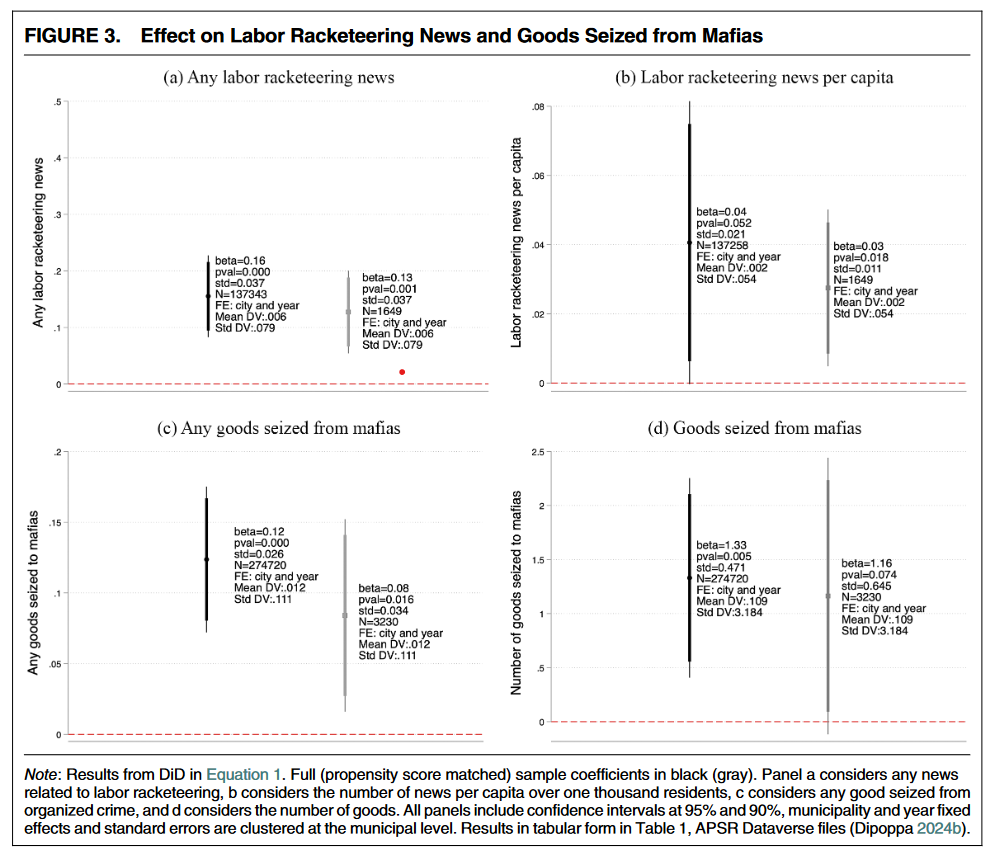
Staalduinen, Briitta van, and Delia Zollinger. 2024. “Perceptions of Social Mobility, Gender, and Progressive Politics.” Comparative Political Studies, December, 00104140241306939. https://doi.org/10.1177/00104140241306939.
In @cpsjournal.bsky.socia, Staalduinen & @dpzollinger.bsky.social study relationship between women’s status gains & progressive attitudes in 🇪🇸 🇩🇪 🇬🇧 🇸🇪. Individual mobility has no effect on progressiveness but perceived collective gains but limited to gender issues.
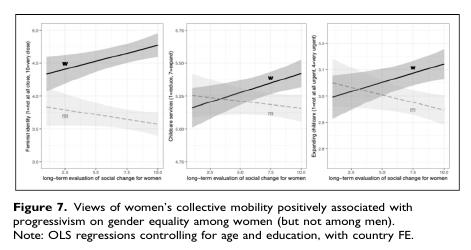
Hilbig, Hanno, and Andreas Wiedemann. n.d. “How Budget Trade-Offs Undermine Electoral Incentives to Build Public Housing.” American Journal of Political Science n/a (n/a). Accessed January 9, 2025. https://doi.org/10.1111/ajps.12939.
In @ajpseditor.bsky.social, @hannohilbig.bsky.social & @awiedemann.bsky.social study local politicians’ electoral incentives to build public housing. Election & census data in 🇩🇪. Rsl show incumbents are punished for new PH, b/c residents prefer spending in other policy areas.
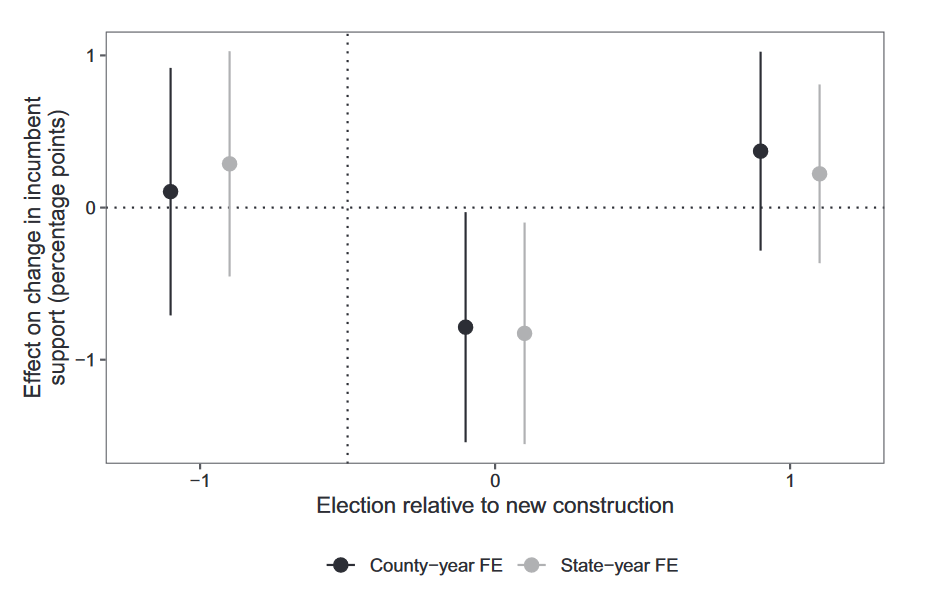
#23 – November 2024
Local portfolios in german municipalities – Support for radical right in rural Portugal – Attitudes towards disaster assistance in the US – Election timing and minority candidate success in California – Politicians’ theories of elections and voting
Ecker, Alejandro, and Martin Gross. n.d. “Equitability or Proportionality? Local-Level Portfolio Allocation in Germany.” West European Politics, 1–27. https://doi.org/10.1080/01402382.2024.2420294.
In WEP, Ecker & @martingross.bsky.social study the allocation of executive portfolios in local politics. Data for large cities in 🇩🇪. Results indicate that local department heads are allocated among coalition parties and in proportion to their council seat share.
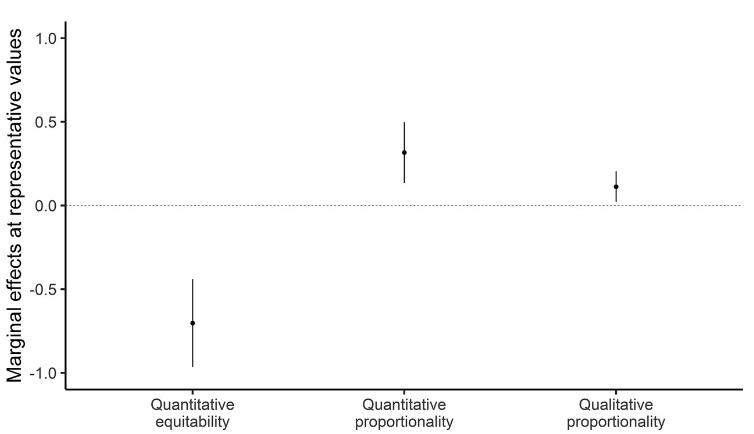
Magalhães, Pedro C., and João Cancela. 2025. “Political Neglect and Support for the Radical Right: The Case of Rural Portugal.” Political Geography 116 (January):103224. https://doi.org/10.1016/j.polgeo.2024.103224.
In @politicalgeography.bsky.social, @pcmagalhaes.bsky.social & @joaoc.bsky.social examine rural support for radical right in 🇵🇹. Rural areas more likely to support RR but not via usual channels (e.g. anti-immigration). Perception of pol. neglect of rural areas is key.
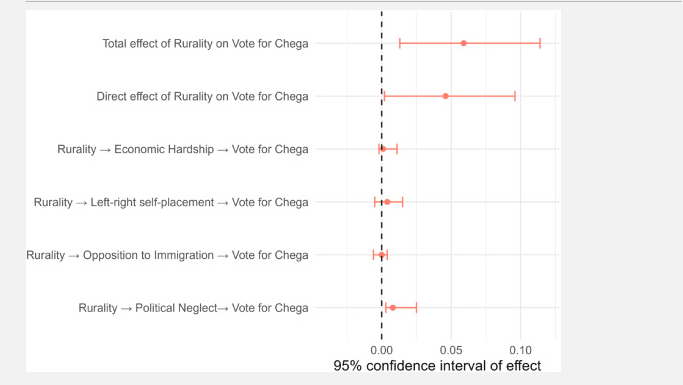
Ross, Ashley D., Stella M. Rouse, Isabella Alcañiz, and Alejandra Marchevsky. 2024. “Who Is Perceived as Deserving? How Social Identities Shape Attitudes about Disaster Assistance in the United States.” PS: Political Science & Politics: 1–8. doi: 10.1017/S1049096524000362.
In @pspolisci.bsky.social, @stellarouse.bsky.social and colleagues study how social identities shape attitude about disaster assistance in the 🇺🇸. They find that federal disaster assistance has broad support but depends on perception of the victim & type of assistance.
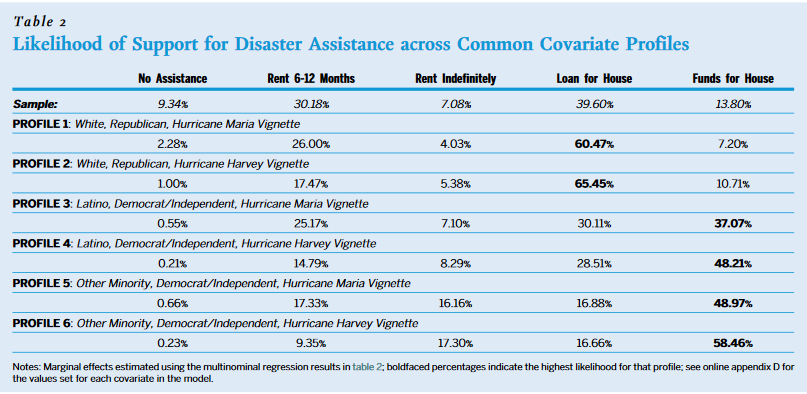
Hajnal, Zoltan L., Vladimir Kogan, and G. Agustin Markarian. n.d. “Who Wins When? Election Timing and Descriptive Representation.” American Journal of Political Science n/a (n/a). https://doi.org/10.1111/ajps.12930.
In @ajpseditor.bsky.social, Kogan, Hajnal & @markarianga.bsky.social study how local election timing affects minority candidate success. Election data in California. Results show Latino candidates gain, & white candidates lose votes when local elections align with federal ones.
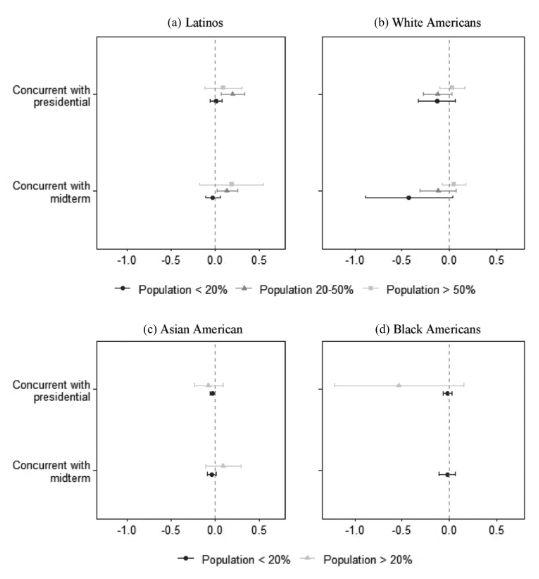
Lucas, Jack, Lior Sheffer, Peter John Loewen, Stefaan Walgrave, Karolin Soontjens, Eran Amsalem, Stefanie Bailer et al. “Politicians’ Theories of Voting Behavior.” American Political Science Review (2024): 1-18. https://doi.org/10.1017/S0003055424001060
In @apsrjournal.bsky.social Lucas and colleagues study politicians’ theories of elections and voting in 11 OECD countries. Using elite interviews and public opinion surveys they find a mismatch between politicians’ beliefs and those of ordinary citizens
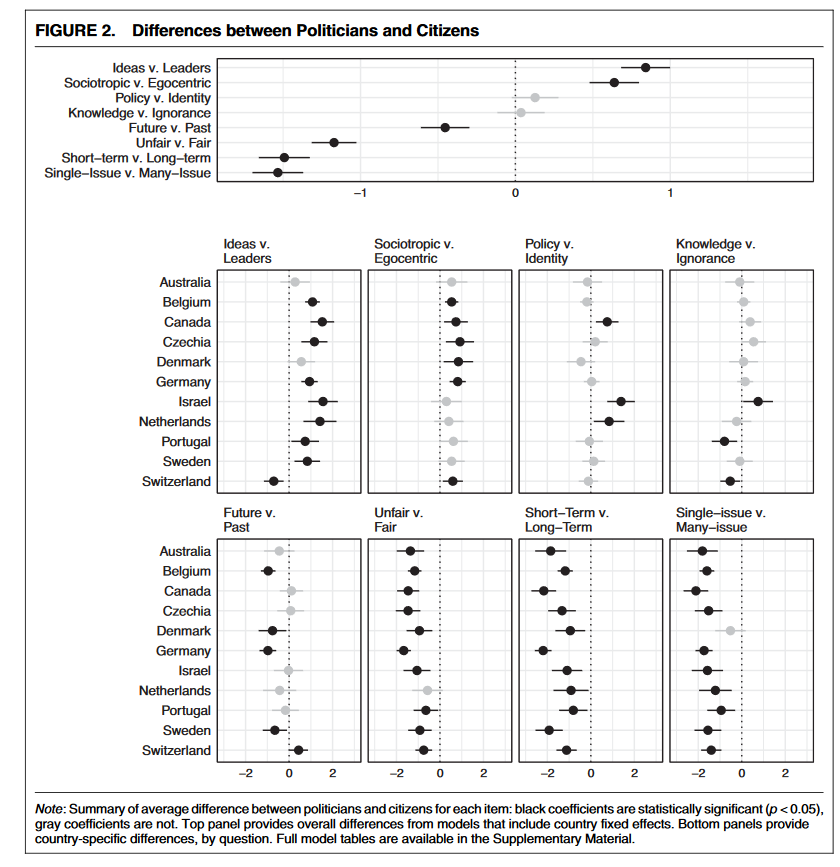
#22 – October 2024
Gender quotas & political knowledge – Socioeconomic status self-deception – Preferences for models of representation – Policy congruence & knowledge – Procedural knowledge of local politicians
Venturini, Giulia. „Do Gender Quotas Increase Political Knowledge?“ European Journal of Political Research. https://doi.org/10.1111/1475-6765.12736.
In EJPR, @gventurini.bsky.social studies the effect of quotas on political knowledge with quasi-experimental design. Finds that introduction of quotas in Western Europe has strong effect on closing gender gap in political knowledge for young women by around 30% https://tinyurl.com/5n9byyre
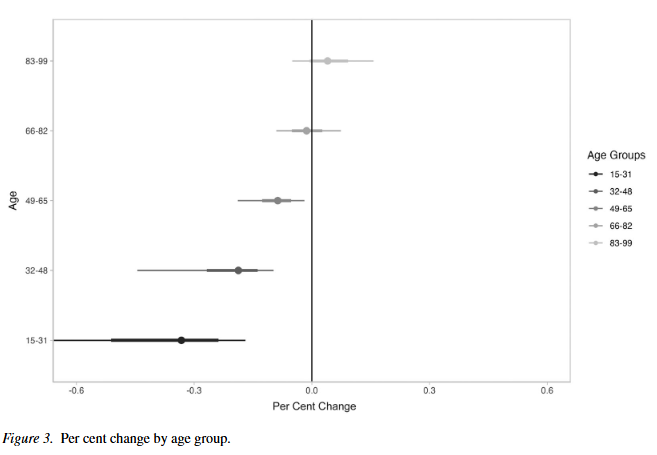
Melita, D., Alcañiz‐Colomer, J., Matamoros‐Lima, J., Ríos, S. A., & Moya, M. (2024). Socioeconomic status self‐deception as a way to perpetuate classist societies. Political Psychology, pops.13051. https://doi.org/10.1111/pops.13051
In PP Melita, Alcañiz‐Colomer, Matamoros‐Lima, Ríos & Moya study how overestimating one’s SES affects attitudes. Using several surveys (ISSP & in 🇨🇱🇪🇸🇺🇸) they find that it leads to more system justification and less support for redistribution https://doi.org/nq7n
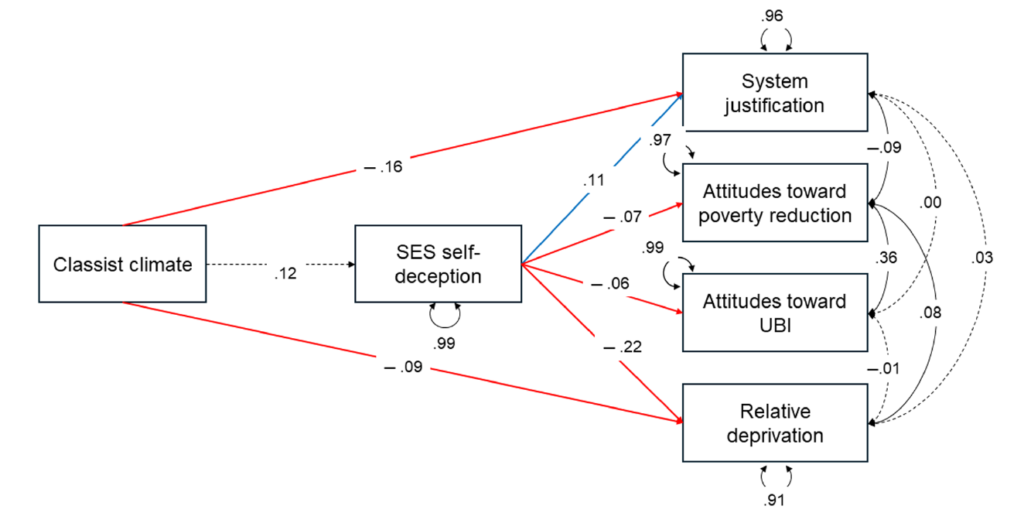
Mongrain, Philippe, Nino Junius, and Nathalie Brack. “As You Wish? Public Preferences for Models of Representation and MPs’ Role Orientations.” European Journal of Political Research, October 24, 2024, 1475-6765.12734. https://doi.org/10.1111/1475-6765.12734.
In EJPR, Mongrain, Junions & Brack study congruence in representational style between citizens & MPs across 13 countries. MPs prefer trusteeship whereas citizens’ preferences are concentrated between the two extremes. Citizens’ preferences are driven by ideology, but not MPs’ doi.org/nq7m

Lucas, Jack, Sheffer Lior, Loewen Peter John. 2024. “Pathways to Substantive Representation: Policy Congruence and Policy Knowledge Among Canadian Local Politicians.” Political Behavior, https://doi.org/10.1007/s11109-024-09982-2
In Political Behavior @jacklucas.bsky.social, @liorsheffer.bsky.social & Peter John Loewen find congruent politicians have more accurate perceptions of their constituents’ perceptions in 🇨🇦. Learn more about the implications of their findings: https://doi.org/nq7j

Auerbach, Adam Michael, Shikhar Singh, and Tariq Thachil. 2024. “Who Knows How to Govern? Procedural Knowledge in India’s Small-Town Councils.” American Political Science Review, July, 1–19. https://doi.org/10.1017/S0003055424000297.
In APSR, Auerbach, Singh, & Thachil study procedural knowledge of politicians in small towns. Survey in 🇮🇳. Results show low levels of procedural knowledge on how to govern. Also show positive association between procedural knowledge & politicians’ effectiveness in office. doi.org/nq7h
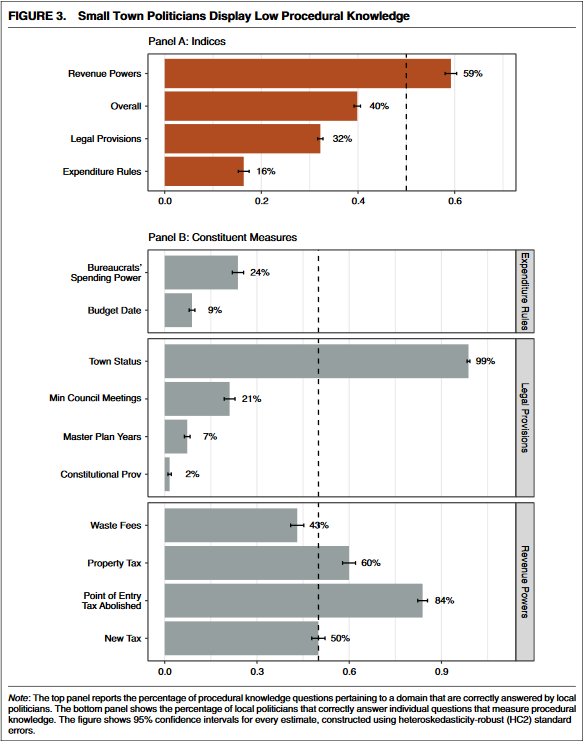
#21 – September 2024
Basic income and voting – Unintended electoral effects of land reform – Transparency and redistribution – School spending and electoral incentives – Responsiveness to comments
Hirvonen, Salomo, Jerome Schafer, and Janne Tukiainen. „Policy Feedback and Voter Turnout: Evidence from the Finnish Basic Income Experiment“. American Journal of Political Science n/a (n/a). https://doi.org/10.1111/ajps.12915.
In @ajpseditor.bsky.social, Hirvonen, Schafer, & @jannetukiainen.bsky.social show effect of basic income policy on participation. Increases voting by ca 7 ppts among infrequent voters (marginal voters). Effect persists. Operates via increases in trust & efficacy.
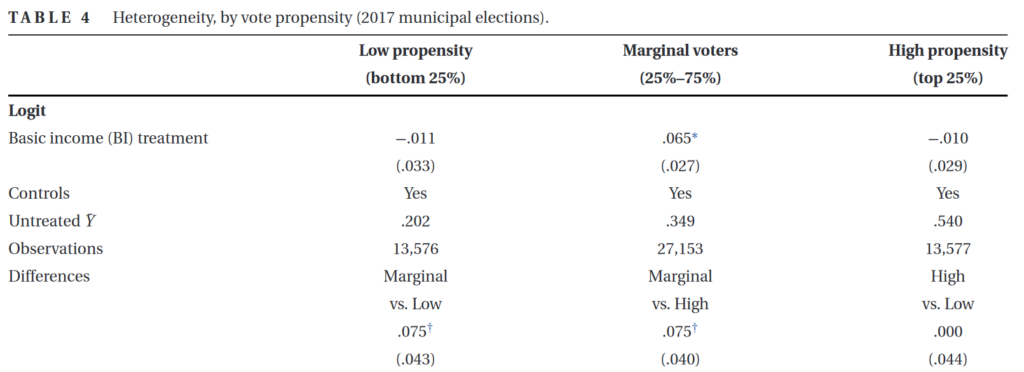
Albertus, Michael, and Noah Schouela. 2022. “When Redistribution Backfires: Theory and Evidence from Land Reform in Portugal.” Journal of politics. https://doi.org/10.1086/732944
In @thejop.bsky.social Albertus & Schouela study electoral consequences of land reform in 🇵🇹 exploiting arbitrary allocation due to soil mismeasurement. Communists implementing reform didn’t reap benefits as eligible non-beneficiaries & those non-eligible voted against

Dunaiski, Maurice, und Janne Tukiainen. „Does income transparency affect support for redistribution? Evidence from Finland’s tax day“. The Journal of Politics, 16. September 2024. https://doi.org/nknz.
In @thejop.bsky.social, @jannetukiainen.bsky.social & Dunaiski study the impact of income transparency policy on support for redistribution. Looking at the 🇫🇮 tax day they find that it decreases top earners support for redistribution, while it increases among the young

Hamel, Brian T. 2024. “Inequality in the Classroom: Electoral Incentives and the Distribution of Local Education Spending.” The Journal of Politics, September, 732959. https://doi.org/10.1086/732959
In @thejop.bsky.social, @brianhamel.bsky.social study school spending & electoral incentives. Spending & electoral data in 🇺🇸. Results show allocation bias towards schools in competitive & supportive districts, especially when parents are a large part of the electorate.
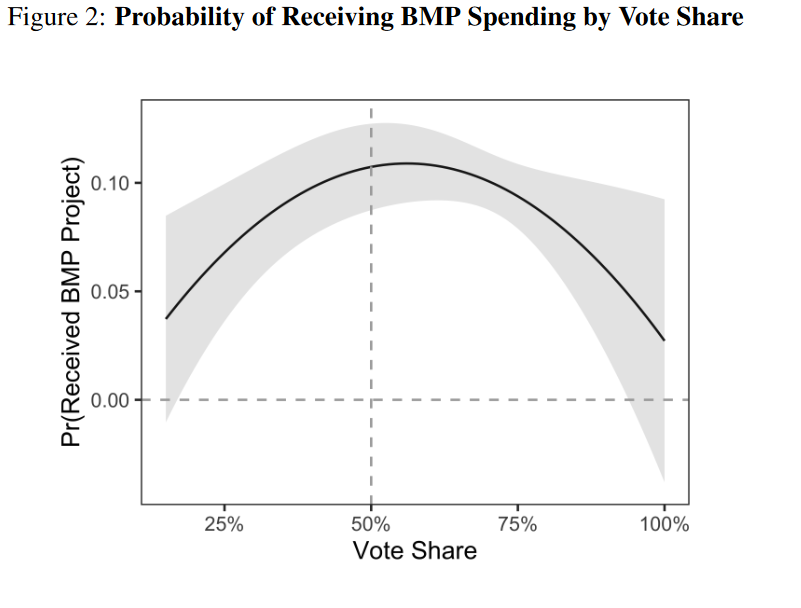
Sahn, Alexander. n.d. “Public Comment and Public Policy.” American Journal of Political Science n/a (n/a). Accessed September 9, 2024. https://doi.org/10.1111/ajps.12900.
In @ajpseditor.bsky.social, Sahn examines responsiveness to comments at public planning meetings. Meeting minutes & admin data in 🇺🇸. Results show approvals are generally responsive to the public, but especially to preferences of white commenters & neighborhood groups.
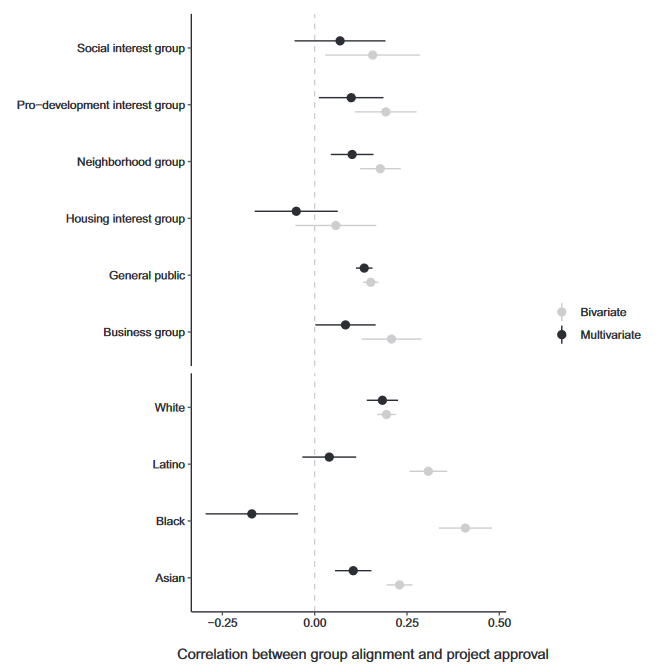
#20 – 13.02.2024 – 22.02.2024
Disaster relief & voting in Japan – Interaction of economic & political inequality in Latin America – residential environmental inequality in Germany – Fiscal implications of the radical right in European Union – Age-related turnout gap in European Union
Fukumoto, Kentaro, and Kyosuke Kikuta. 2024. “After a Storm Come Votes: Identifying the Effects of Disaster Relief on Electoral Outcomes.” Political Behavior, February. https://doi.org/10.1007/s11109-024-09921-1.
In Political Behavior, Fukumoto & Kikuta study effect of disaster relief on voting in Japan. Using rainfall as IV for disaster relief, they find substantial effect on support for governing parties. Suggests retrospective voting behavior. http://tinyurl.com/5emxf64v
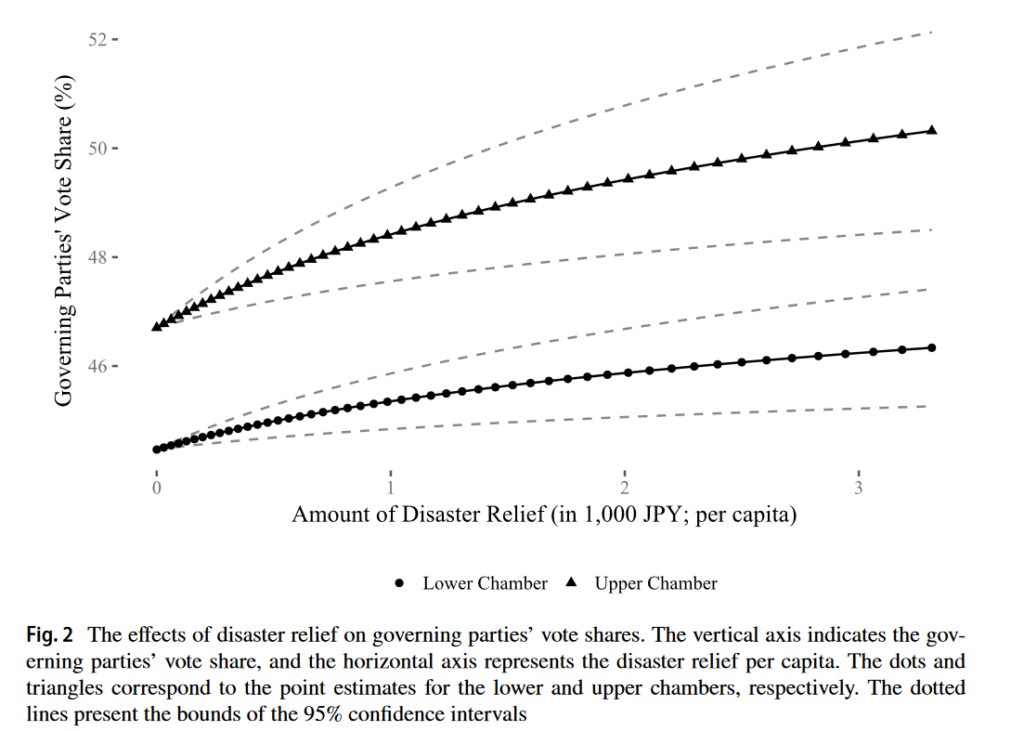
Fergusson, Leopoldo, James Robinson, and Santiago Torres. 2024. “The Interaction of Economic and Political Inequality in Latin America.” IDB Publications, February. https://doi.org/10.18235/0005546.
IDB WP by Fergusson, Robinson & Torres study puzzle of why (non-elite) political newcomers have not reduced economic inequality? Using RD on municipal elections they find narrowly elected newcomers have little effect, particularly where economic inequality is high. https://shorturl.at/pzIX3
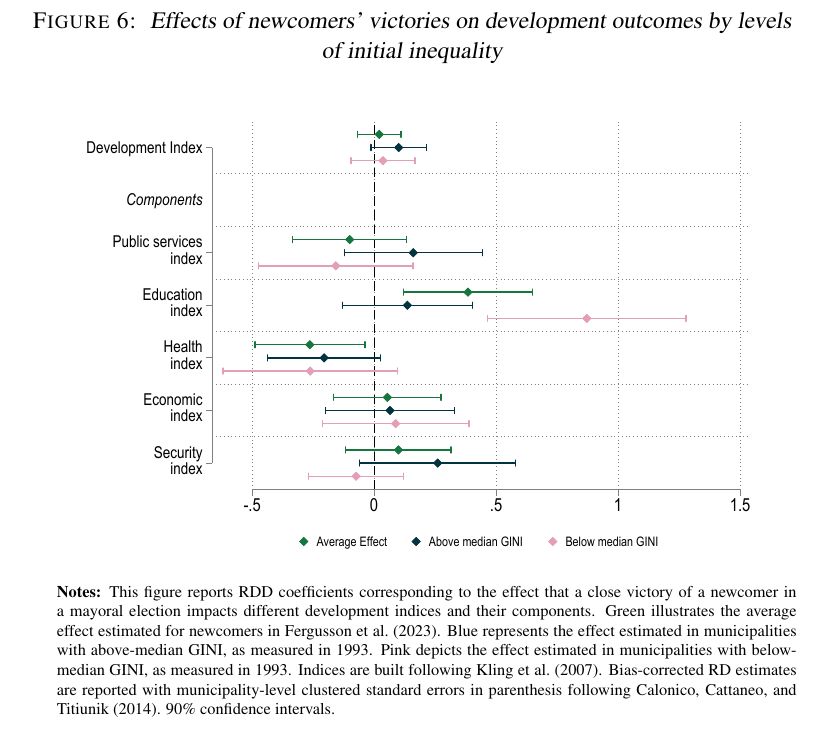
König, C., 2023. “Neighborhood Structure and Environmental Quality: A fine-grained analysis of spatial inequalities in urban Germany“. Urban Studies. https://doi.org/mhk8
In Urban Studies @ckoenig.bsky.social studies residential environmental inequality (EI) in 🇩🇪. Spatial granular data from 186,000 neighborhoods across large municipalities. Areas with higher share of foreigners further from green areas & more exposed to air pollution https://doi.org/mhk8
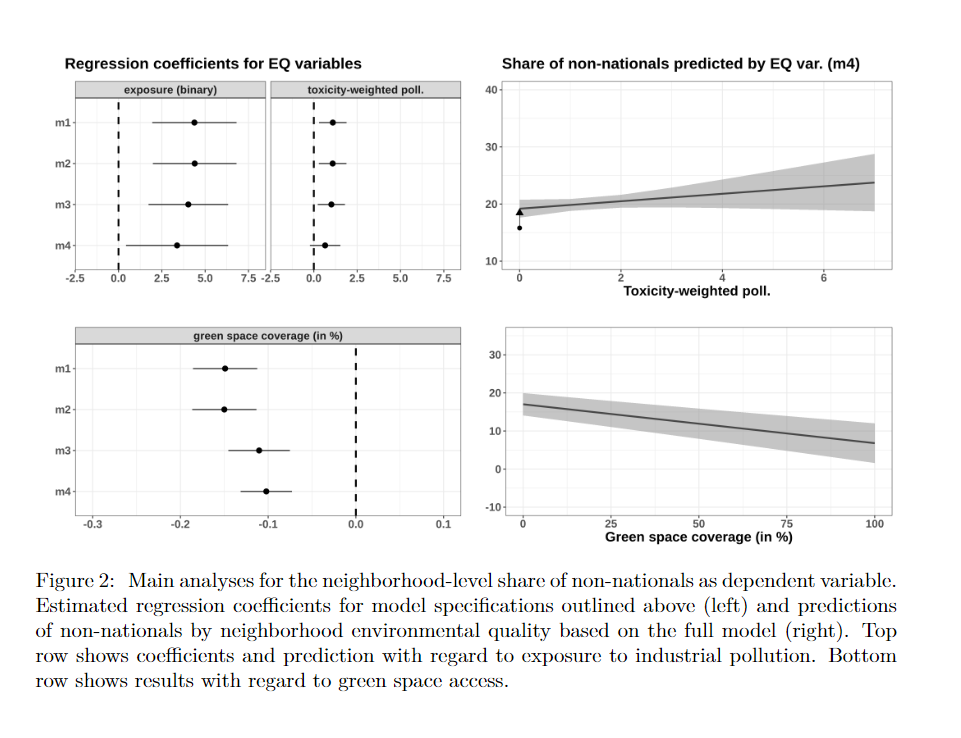
Elsässer, Lea and Röth, Leonce. 2024 “Fiscal implications of the populist radical right in power”, Journal of European Public Policy, pp. 1–30. https://doi.org/mhk7.
In the @jeppjournal.bsky.social, Elsässer & Röth analyse PRRPs in 🇪🇺. Using mixed effects models they find that PRRPs in government have significantly and substantially higher public deficits than governments without PRRPs & similar socio-economic starting conditions.https://doi.org/mhk7
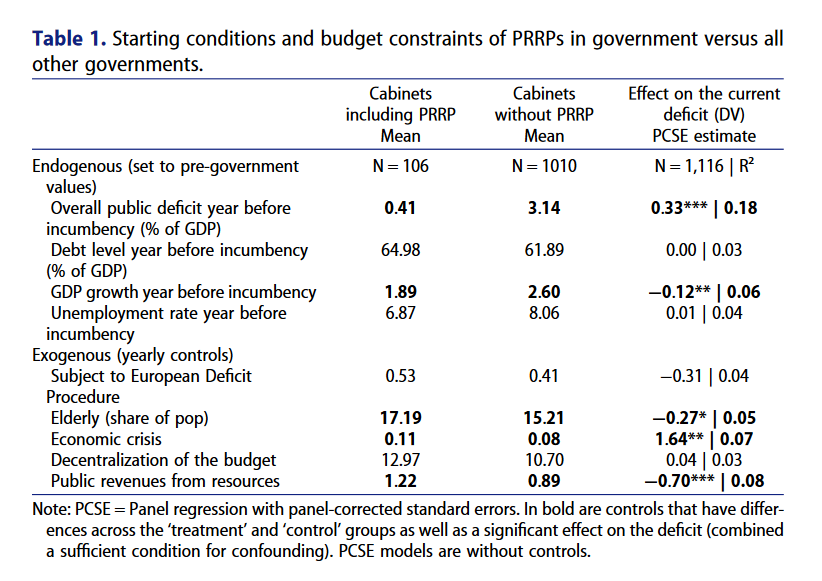
Angelucci, Davide, Luca Carrieri, and Marco Improta. 2024. “‘No Participation Without Representation’: The Impact of Descriptive and Substantive Representation on the Age-Related Turnout Gap.” Political Studies, February. https://doi.org/10.1177/00323217241229316.
In Pol. Stud., Angelucci, Carrieri & Improta analyse determinants of the age-related turnout gap. Survey & electoral data in EU. Results show that substantive & descriptive representation in national parliaments & prioritisation of postmaterialist values reduce the gap. https://doi.org/mhk9
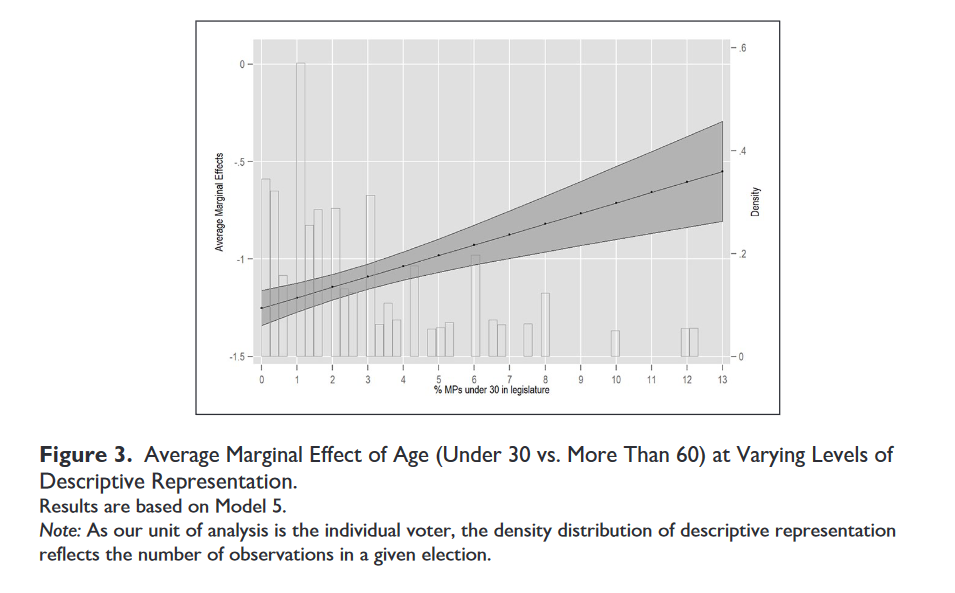
#19 – 26.01.2024 – 12.02.2024
State responses to protest in Mexico – Party broad-appeal responsiveness – Electoral returns of infrastructure investment in Brazil – Elites misperception of voter opinions – Voter preferences & party positions in the E.U. and the U.S.
Sullivan, H. “When Elites Concede: State Capacity and the Management of Protest in Mexico.” Democratization https://doi.org/10.1080/13510347.2024.2311830
In Democratization @hsulli.bsky.social studies when the state responds to protests with concessions in 🇲🇽. Using newspaper based original data on protests and responses, finds that there are more concessions where state capacity is stronger https://doi.org/mgh6
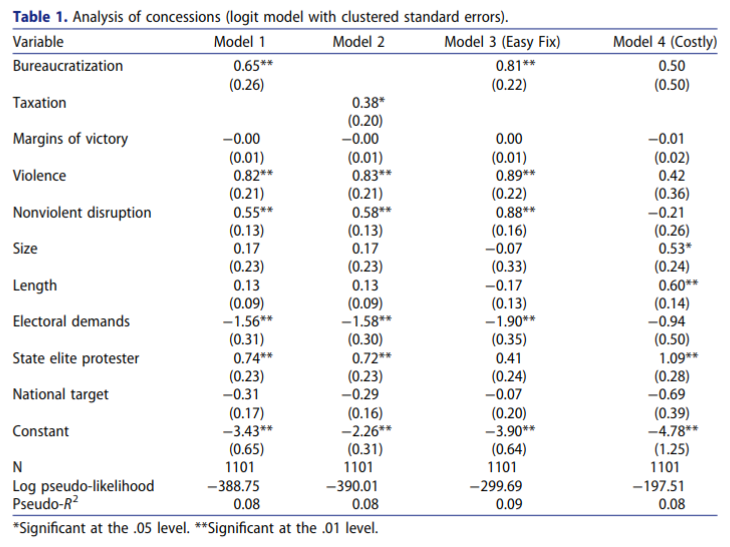
In @wepsocial.bsky.social, Tromborg & Jensen study if parties proposing appealing a broader electorate with disparate promises are less responsive. Party data from Western countries shows that their measures of broadeness does not affect welfare policy responsiveness https://doi.org/mgh8
Tromborg, Mathias Wessel, and Carsten Jensen. 2024. “The Broad-Appeal Strategy and Policy Representation.” West European Politics, January, 1–11. https://doi.org/10.1080/01402382.2023.2292420.
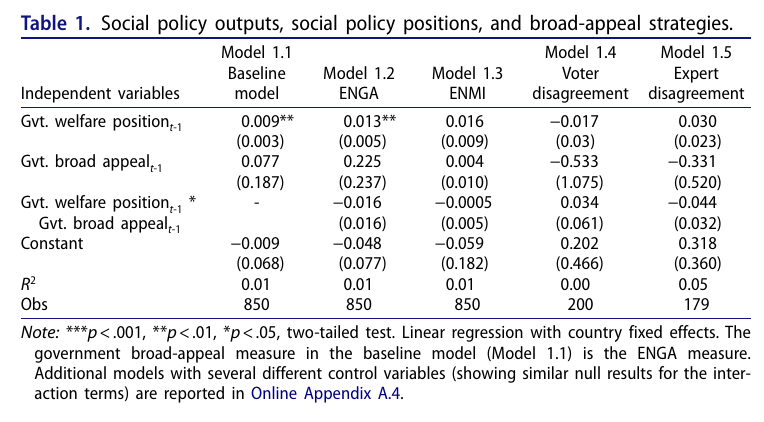
Araújo, Victor; Marta Arretche, and Pablo Beramendi, “The Electoral Effects of Large-Scale Infrastructure Policies: Evidence from a Rural Electrification Scheme in Brazil,” The Journal of Politics, August 10, 2023, 000–000, https://doi.org/10.1086/726958.
In @thejop.bsky.social @victoraraujo.bsky.social Arretche & @pberamendi.bsky.social study infrastructure programs’ electoral returns. ITT & Fuzzy RD using electrification scheme prior to 🇧🇷 2006 elections. Reward in 2010, with spillover to education. Persists until 2022 https://doi.org/mgh4
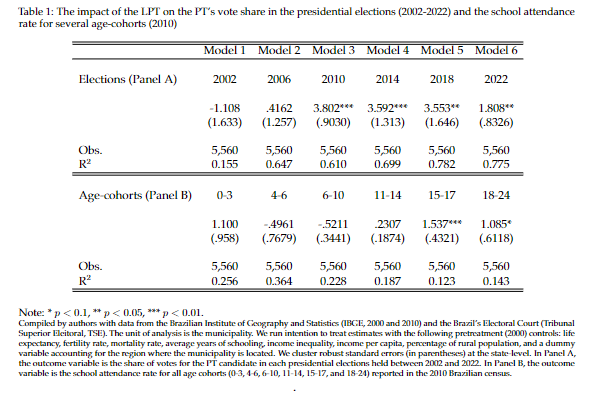
Furnas, Alexander C., and Timothy M. LaPira. n.d. “The People Think What I Think: False Consensus and Unelected Elite Misperception of Public Opinion.” American Journal of Political Science n/a (n/a). Accessed January 31, 2024. https://doi.org/10.1111/ajps.12833.
In@ajpseditor.bsky.social, Furnas & @timlapira.bsky.social use surveys of unelected elites & voters to study misperceptions of public opinion. Strong misperception but non-partisan. Elites believe opinions correspond to own policy preferences. http://tinyurl.com/2kck4aff
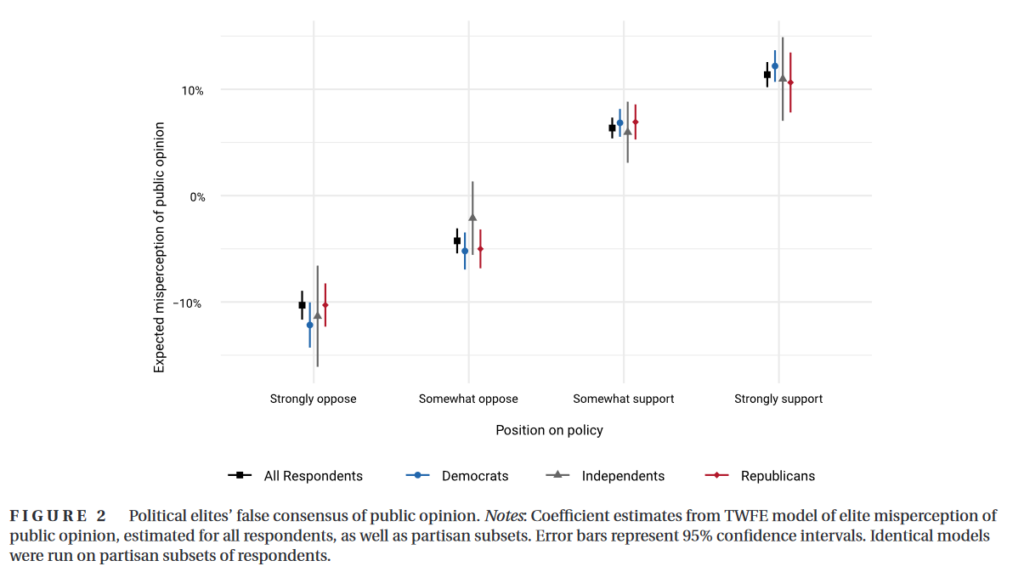
Weisstanner, D.,and Carsten Jensen. 2024. “Political mobilisation and socioeconomic inequality in policy congruence.” European Journal of Political Research (online first). https://doi.org/10.1111/1475-6765.12661
In EJPR, @dweisstanner.bsky.social & Jensen study the discrepancy between voter preferences and party positions. Uses survey data and party manifestos from 🇪🇺 and US. Political mobilization of low-income citizens in elections and through trade unions counters inequality in policy congruence. https://doi.org/mghv
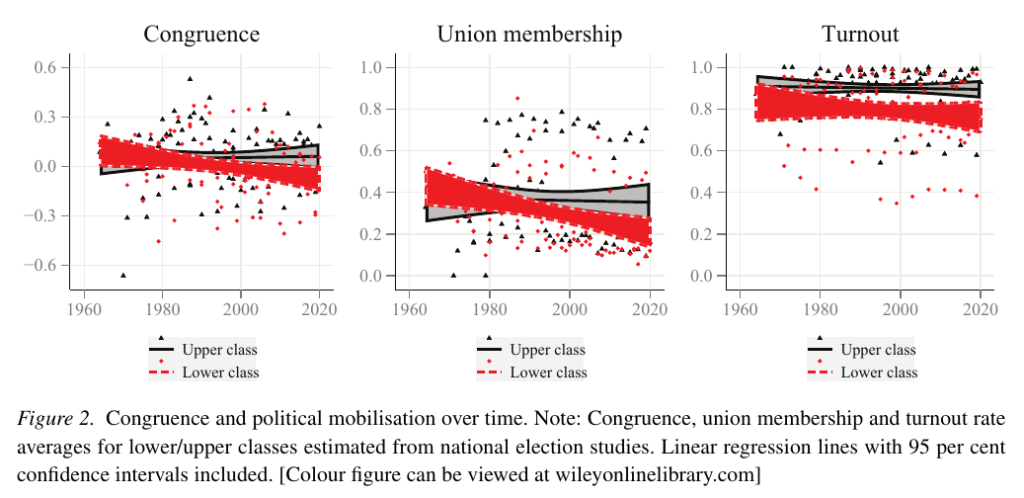
#18 – 12.01.2024 – 25.01.2024
Politics of land use in the U.S. – Politicians’ extra-parliamentary activities in Germany & the U.K. – Support for redistribution in the U.S. – Representation and occupational background of local politicians in Germany – Women’s under-representation in the U.S. republican party
Brouwer, N. R., and Jessica Trounstine. 2024. “NIMBYs, YIMBYs, and the Politics of Land Use in American Cities.” Annual Review of Political Science 27 (1).. https://doi.org/10.1146/annurev-polisci-041322-041133
In ARPS, Brouwer & @trounstine.bsky.social review research on history, power distribution & consequences of politics of land use regulation. Literature focus on US. Call for further research on activism demographics, clashes of powerful interests & regulatory process.
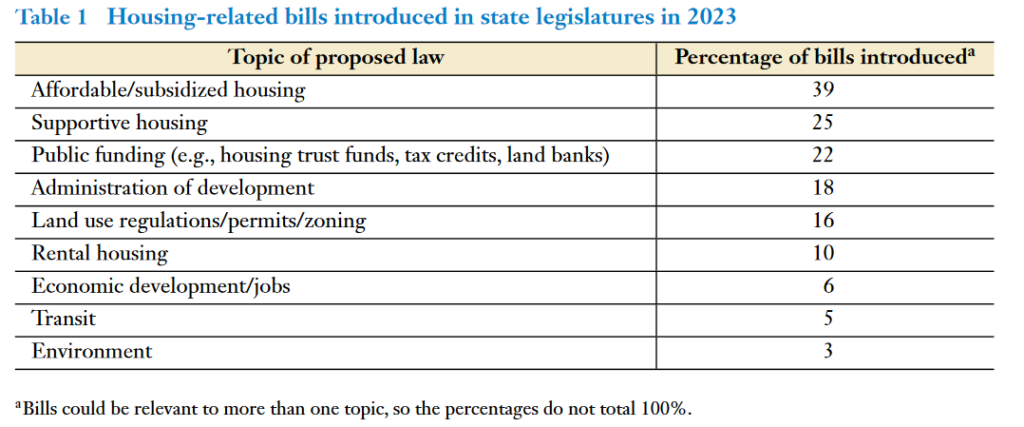
Geys, Benny, and Karsten Mause. 2023. “Politicians’ Extra-Parliamentary Activities and Lobbying.” In The Political Economy of Lobbying: Channels of Influence and Their Regulation, edited by Karsten Mause and Andreas Polk, 183–200. Studies in Public Choice. Cham: Springer International Publishing. https://doi.org/10.1007/978-3-031-44393-0_9.
Chapter in new book about lobbying by @karstenmause.bsky.social and Geys. Review of literature on MP side-jobs and lobbying. Some (mixed) evidence that side-jobs reduce parliamentary activity. Few studies on conflicts of interests, mostly from individual case studies
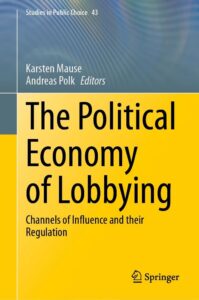
Margalit, Yotam; Raviv, Shir. 2024. “Does support for redistribution mean what we think it means? Political Science Research and Methods”.1-9. doi:10.1017/psrm.2023.57
In PSRM @shirraviv.bsky.social & Margalit ask: what redistributive policies do citizens consider when asked about inequality reduction? Original survey & experiment in the US. Informing about concrete redistributive measures boosts support for government action
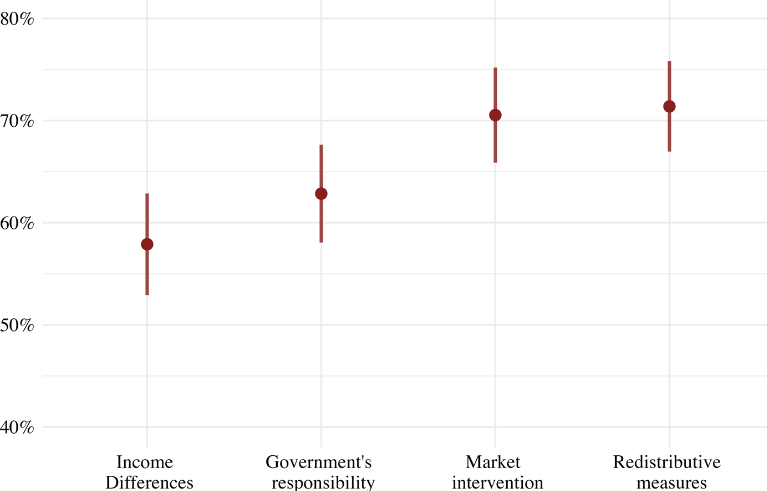
Velimsky, J.A. et al. .2024. ‘The impact of occupational background on issue representation’, West European Politics, pp. 1–24. https://doi.org/mdms
Using original data @sebastianjblock.bsky.social @martingross.bsky.social @donyhu.bsky.social & Jan Velimsky find that 🇩🇪 local politicians are more likely to submit parliamentary questions on topics related to their occupational background than councillors with a different background
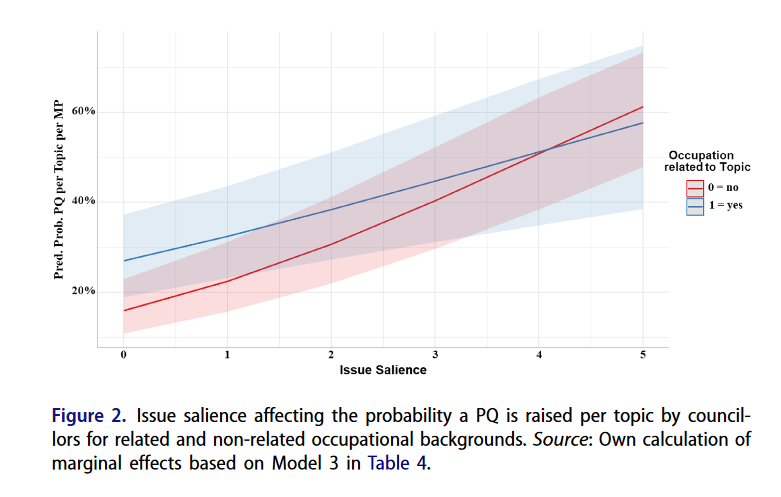
Karpowitz, Christopher F., J. Quin Monson Jessica R. Preece and Alejandra Aldridge. 2024. “Selecting for Masculinity: Women’s Under-Representation in the Republican Party.” American Political Science Review: 1–22. doi: 10.1017/S0003055423000783.
In APSR, @profkarpo.bsky.social, @jrpjrpjrp.bsky.social, Monson & Aldrich study US female underrepresentation. Vignette experiments & original data on candidates self-presentation. Conservative Republicans favour candidates with male self-presentation independent of sex. https://doi.org/mdmz
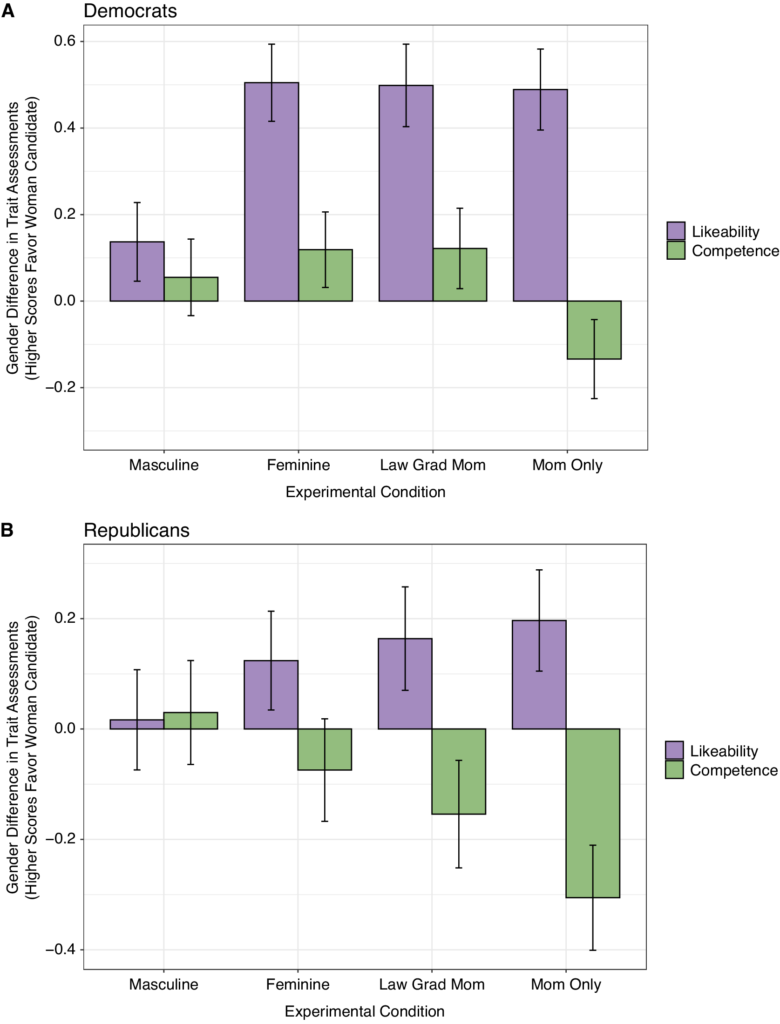
#17 – 15.12.2023 and 11.01.2024
Lawyers as lobbyists in the U.S. – Responsiveness to bribery-reporting in Africa – Elite control and development in Brazilian municipalities – Descriptive representation and party building in Brazil – Policies advanced by the democratic party in the U.S.
Libgober, Brian; Carpenter, Daniel. “Lawyers as Lobbyists 2004: Regulatory Advocacy in American Finance.” Perspectives on Politics, 1-20. doi:10.1017/S1537592723002943
In Perspectives on Politics, Libgober & Carpenter analyse the role of lawyers in 🇺🇸 regulatory lobbying. Using a wide data set they are able to describe a vast “world of regulatory influence-seeking”
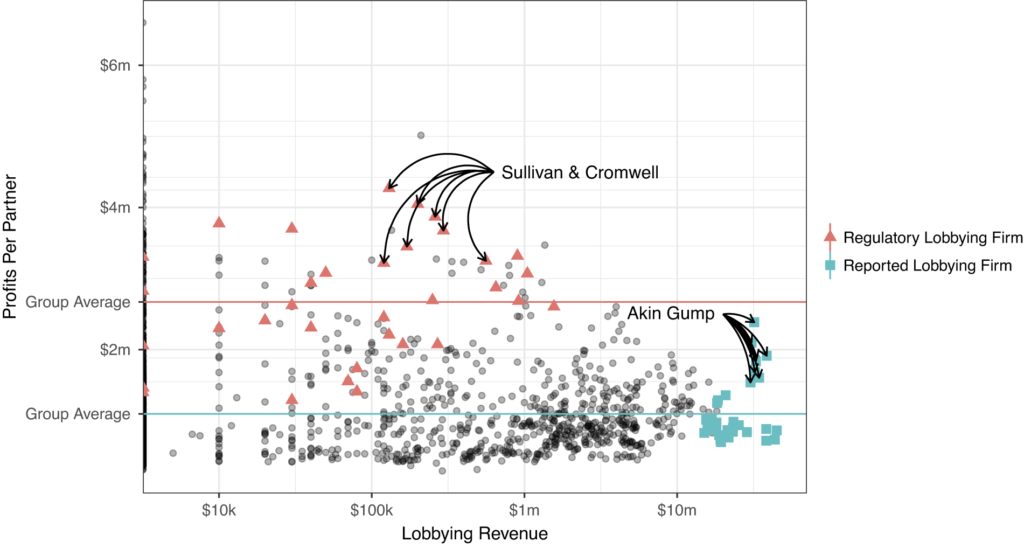
Barbabela, Letícia. 2024. “A positive feedback mechanism? Institutional responsiveness to bribery reporting by citizens in 12 African countries.” Crime Law Soc Change, 1-21. https://doi.org/10.1007/s10611-023-10137-3
In CLSC @letmeni.bsky.social studies whether responsiveness to bribery is associated with more institutional support and efficacy against corruption. Uses Afrobarometer data from 12 countries. Only finds some positive association between responsiveness and support:
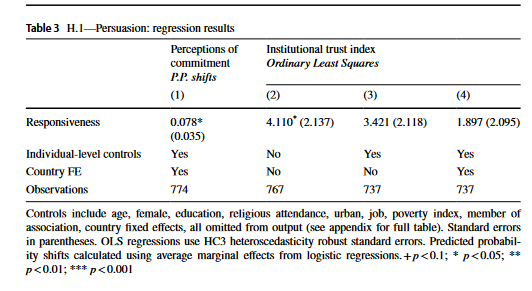
Ferraz, Cláudio; Finan, Federico; Martinze-Bravo, Monica. 2024. “Political Power, Elite Control, and Long-Run Development: Evidence from Brazil*.” Journal of the European Economic Association. DOI: 10.3386/w27456
To appear in JEEA, Ferraz, Finan & Martinez-Bravo study local power concentration & development in 🇧🇷. Formerly more concentrated places were worse off but fared better in the long run as the dictatorship particularly targeted them to increase political competition.
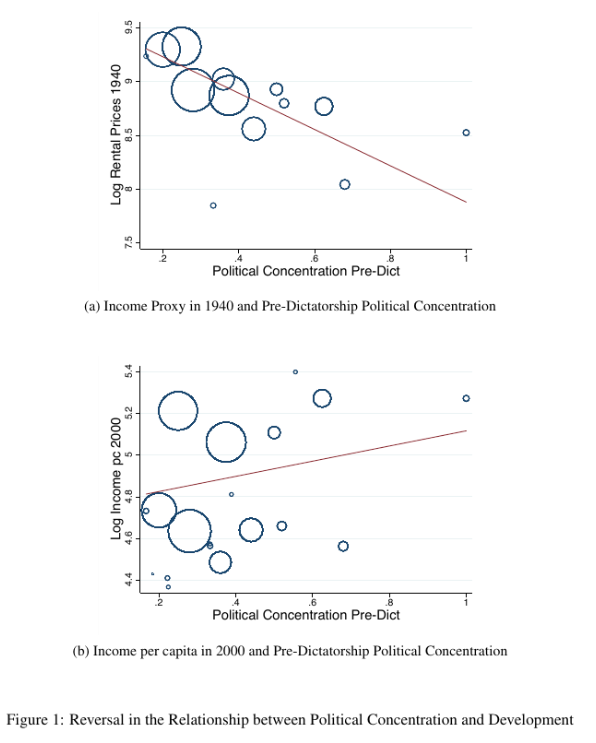
Goyal, Tanushree, and Cameron Sells. 2023. “Descriptive Representation and Party Building: Evidence from Municipal Governments in Brazil.” American Political Science eview, December, 1–16. https://doi.org/10.1017/S0003055423001168.
In APSR, Goyal & Sells the effect of female mayors on the gender gap in local member recruitment. Use administrative data in 🇧🇷. Show that women in mayoral office reduce gender gap of their local party and newly recruited male members to be more loyal to the party.
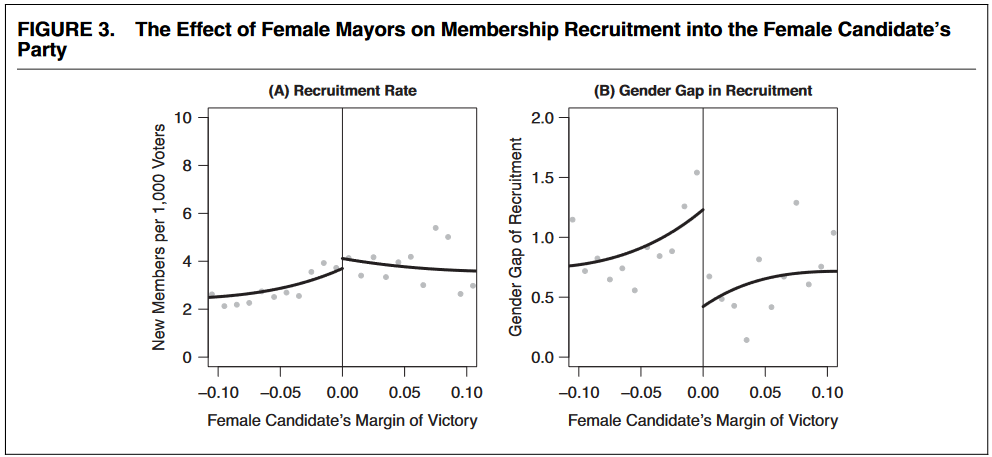
Hacker, Jacob S., Amelia Malpas, Paul Pierson, and Sam Zacher. 2023. “Bridging the Blue Divide: The Democrats’ New Metro Coalition and the Unexpected Prominence of Redistribution.” Perspectives on Politics, December, 1–21. https://doi.org/10.1017/S1537592723002931.
In Perspectives on Politics, @jacobhacker.bsky.social, @malpas.bsky.social , Pierson & Zacher analyse Democrats’ strategies to address economically U-shaped voter base. Focus on government spending, regulation and pre-distribution – reducing inequality before income.
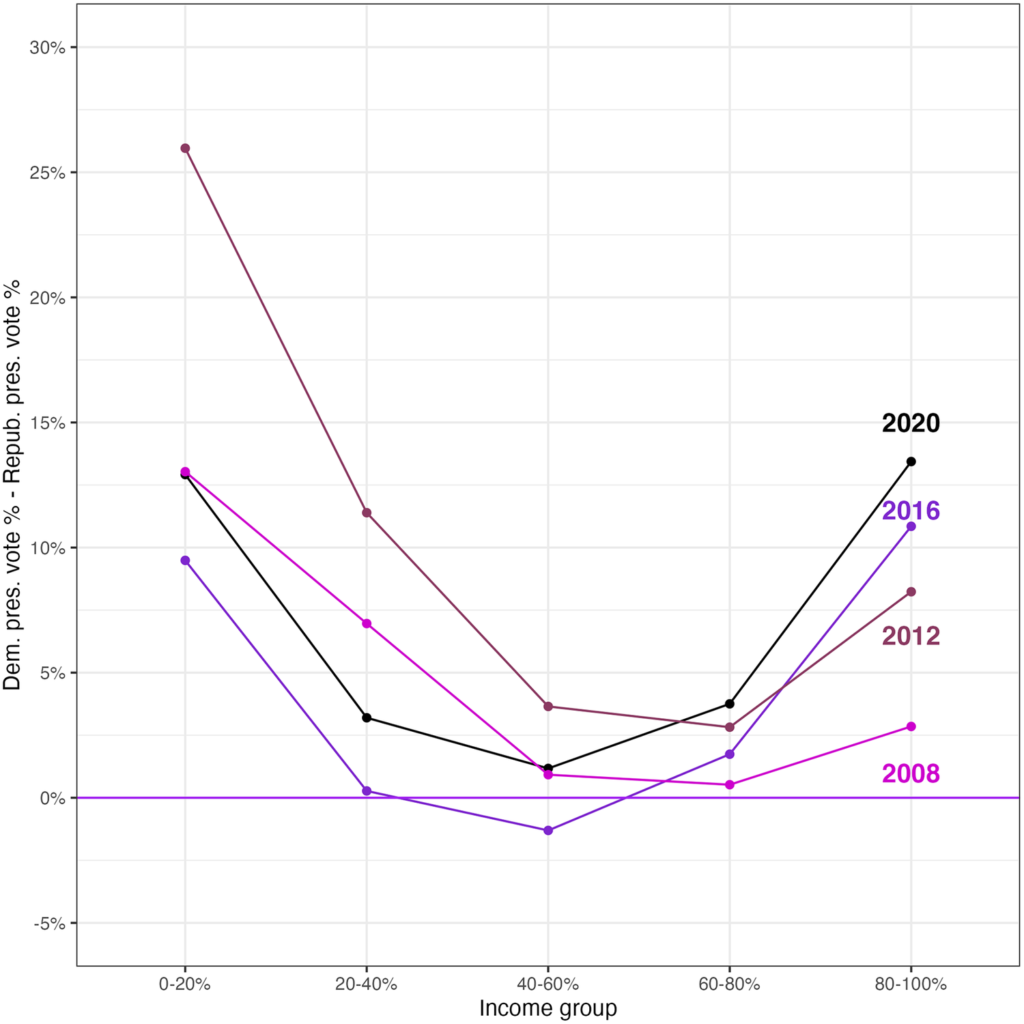

#16 – 02.12.2023 and 14.12.2023
News & public opinion in the U.S. – Voter punishment of corruption in the U.K. – Place-based political trust in European Union – Deliberation & voting behaviour in Benin – Communicative responsiveness in the U.K.
Wlezien, Christopher. 2023. “News and Public Opinion: Which Comes First?” The Journal of Politics. https://doi.org/10.1086/726940.
In @thejop.bsky.social, @cbwlezien.bsky.social analyzes direction of causality b/w public opinion & tone of news coverage. Survey & news data in 🇺🇸. Results indicate 2-way flows. Effects stronger from polls to news & when actors provide information to the other side.
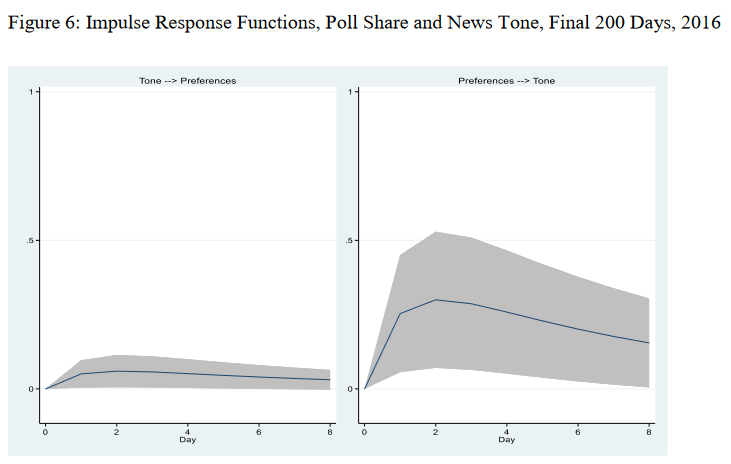
Cheng-Matsuno, Vanessa and Daniel Berliner. 2023. “Do voters differentially punish transnational corruption?.” European Journal of Political Research https://doi.org/10.1111/1475-6765.12643
@vchengm.bsky.social & Berliner’s EJPR paper is about voters’ differential punishment of transnational corruption. Vignette experiment in the 🇬🇧. Electoral opposition only stronger when corruption involves Moscow instead of Berlin or London-based firm.
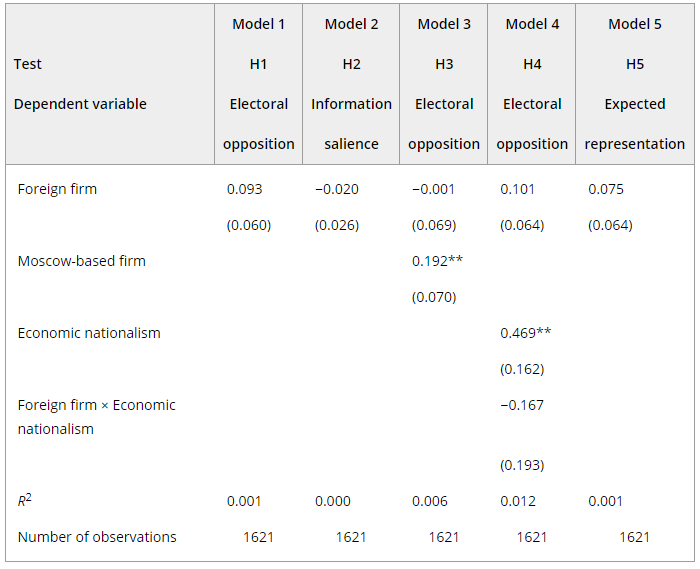
Hegewald, Sven. 2023. “Locality as a Safe Haven: Place-Based Resentment and Political Trust in Local and National Institutions.” Journal of European Public Policy 0 (0): 1–26. https://doi.org/10.1080/13501763.2023.2291132
In JEPP @svenhegewald.bsky.social shows that places that feel disfavored, particularly in terms of political representation, tend have higher political trust at the local level relative to the national level. Original survey data from 9 EU countries.
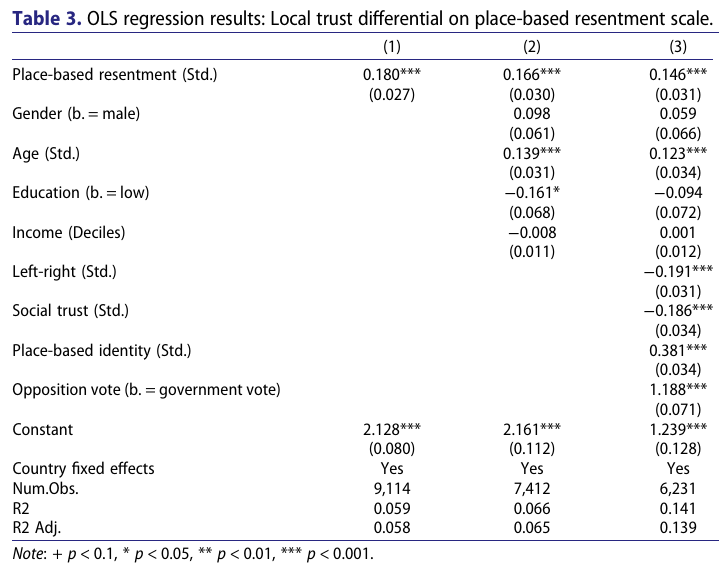
Wantchekon, Leonard, and Jenny Guardado. 2023. “Deliberation and Ethical Voting Behavior: Evidence from a Campaign Experiment in Benin.” American Political Science Review, December, 1–17. https://doi.org/10.1017/S0003055423000813.
In APSR Wantchekon & Guardado conduct a field experiment in 🇧🇯 on deliberation in campaigns. Villages randomly assigned to campaign with deliberation as opposed to rallies have higher turnout and are better informed about candidates and issues.
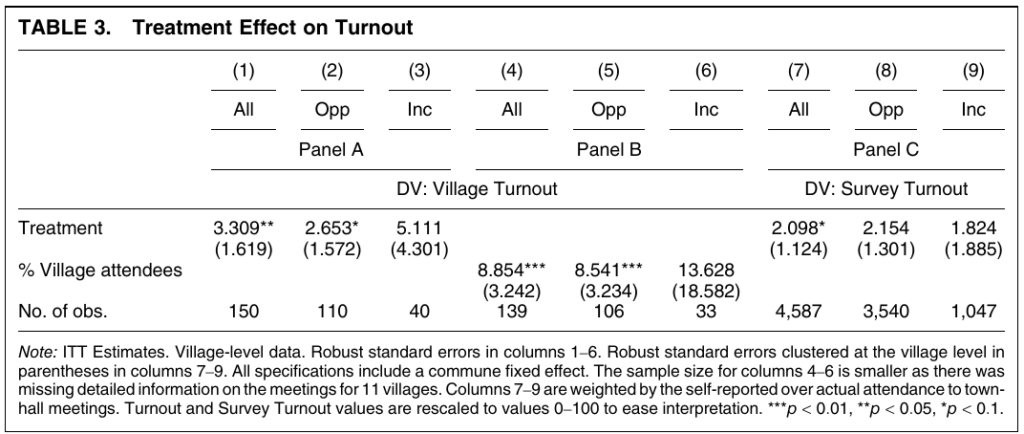
Itzkovitch-Malka, Reut; Guy Mor, Odelia Oshri, Shaul Shenhav. 2023. “Talking representation: How legislators re-establish responsiveness in cases of representational deficits.” European Journal of Political Research https://doi.org/10.1111/1475-6765.12648
In EJPR Itzkovitch-Malka, Mor, Oshri & Shenhav ask: Do legislators use rhetoric to compensate their constituencies for representational deficit? QTA of parliamentary speeches during Brexit. Rhetorical effort increases with the size of the representation deficit.
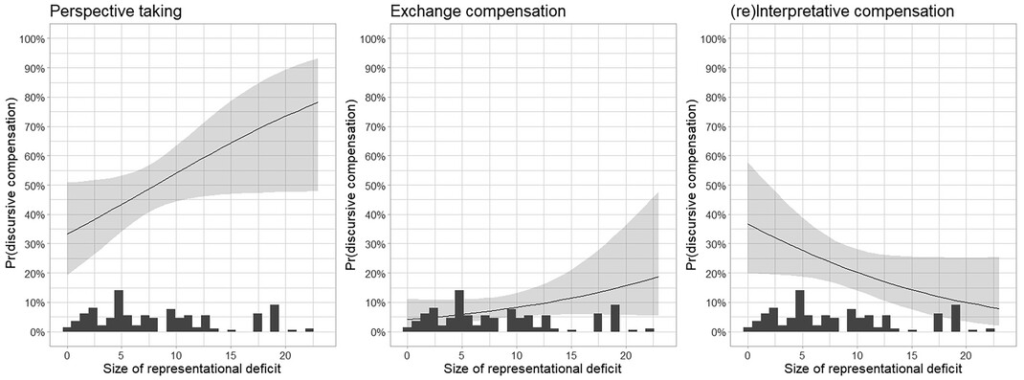
#15 – 23.11.2023 and 30.11.2023
Far right support in Italy – Electoral effects of road provision in India – Voters’ expectations of parties in Australia & the U.K. – SES and adult outcomes in South Africa – Politicians’ spending decisions in Malawi
Cremaschi, Simone, Paula Rettl, Marco Cappelluti, and Catherine E. De Vries. 2023. “Geographies of Discontent: Public Service Deprivation and the Rise of the Far Right in Italy.” https://shorturl.at/AGH15
WP by @simonecremaschi.bsky.social @paularettl.bsky.social @marcocappelluti.bsky.social & De Vries on effect of public services on far right support in 🇮🇹 exploiting a policy that reduced provision in small towns. Diff in diff estimates show more far right support.
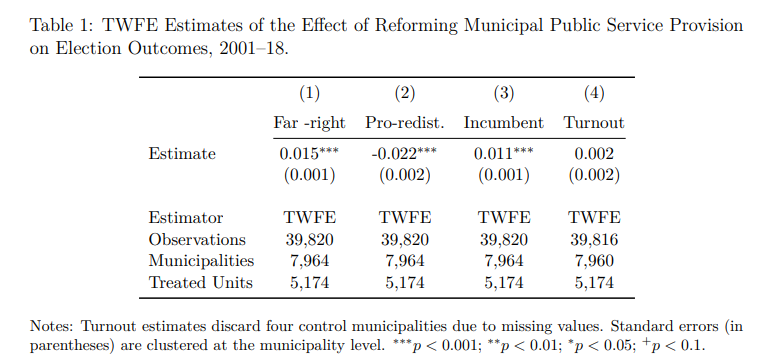
Werner, Annika, and Reinhard Heinisch. 2023. “Ideological Beasts or Effective Organizations? Do Voters’ Views of Democracy Affect Their Expectations of Political Parties?” Democratization: 1–24. https://doi.org/10.1080/13510347.2023.2278709.
In Democratization, Werner & Heinisch study how citizens relate to political parties: do they value more that they represent them better or that they win? Using surveys in 🇦🇺 & 🇬🇧 they find citizens value somewhat more interest representation than winning

Goyal, Tanushree. 2024. “Do citizens enforce accountability for public goods provision? Evidence from India’s rural roads program.” The Journal of Politics 86:1. https://doi.org/10.1086/726973
In @thejop.bsky.social Goyal studies electoral effects of public goods provision. Large-scale administrative data from 🇮🇳’s rural roads program. FD OLS and IV approach. Road provision does not boost electoral support for the ruling party

Loss, Georg, Sara Naicker, Linda Richter, and Günther Fink. 2024; “Early life determinants of social disparities among young adults: A longitudinal study in vulnerable communities in South Africa.” World Development 175:106465. https://doi.org/10.1016/j.worlddev.2023.106465
In WD Loss, Naicker, Richter & Fink study importance of home and area SES for educational attainment and criminality. Longitudinal data from a low-income community in 🇿🇦. Compared to area, home SES more strongly associated to adult outcomes, such as school completion.
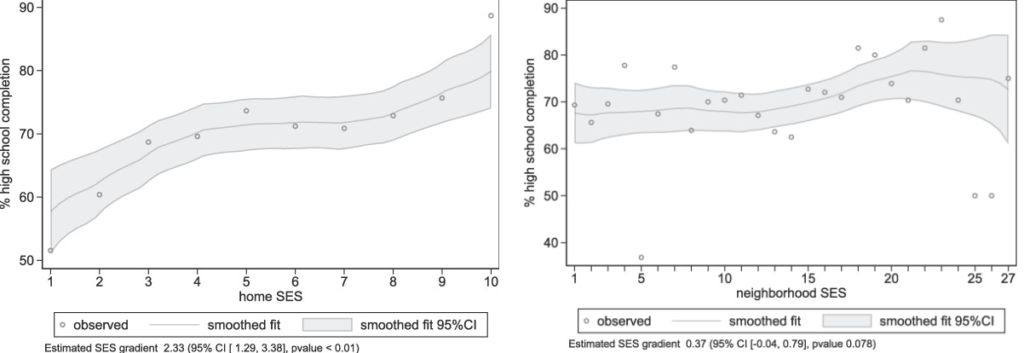
Jablonski, Ryan, and Brigitte Seim. 2023. “What Politicians Do Not Know Can Hurt You: The Effects of Information on Politicians’ Spending Decisions.” American Political Science Review, November, 1–21. https://doi.org/10.1017/S0003055423001132.
In AJPS @ryanjablonski.bsky.social & Seim study effect of information on politician spending decisions in Malawi. Information reduces spending inequality. Need information increases allocation to high-need areas and aid information reduces allocation to highaid areas.
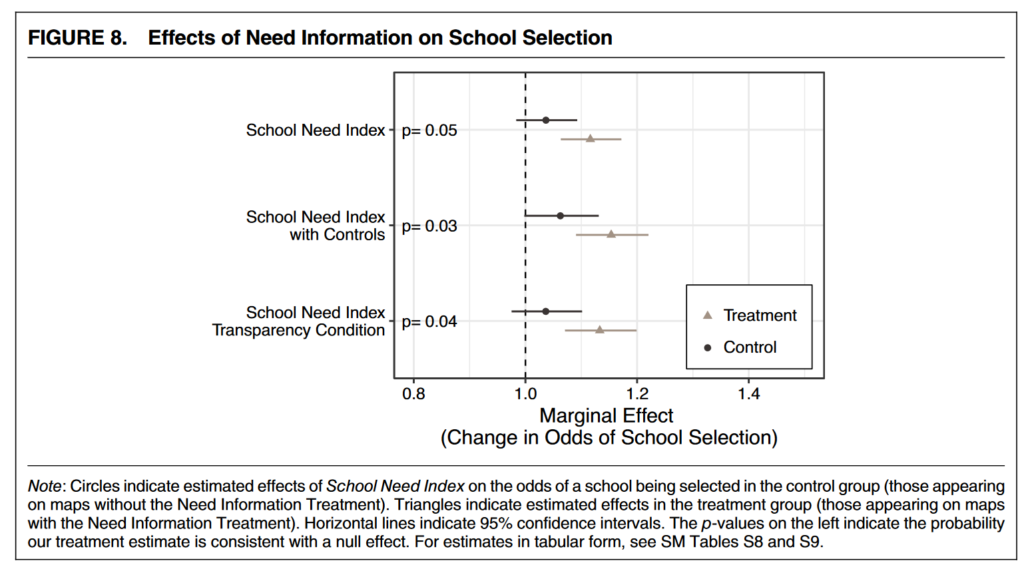
#14 – 01.11.2023 and 16.11.2023
Views of minipublics in Belgium – class-based appeals in Denmark – timing of corruption lawfare in Argentina – new dataset on chiefs of staff in Australia, Canada, New Zealand and U.K. – effects of gentrification on representation in the U.S.
Van Dijk, Lisa, Hannah Werner, and Sofie Maren. 2023. “The Perceived Problem‐solving Potential of Deliberative Minipublics: Evidence from a Survey of Belgian Citizens.” European Journal of Political Research, November. https://doi.org/10.1111/1475-6765.12639.
In EJPR, @lisavandijk.bsky.social, Werner & Marben study political dissatisfaction & citizens’ perception of minipublics as problem-solvers. Use survey data in 🇧🇪. Show positive perception leads to support for use. Effect stronger for women & negative for education.
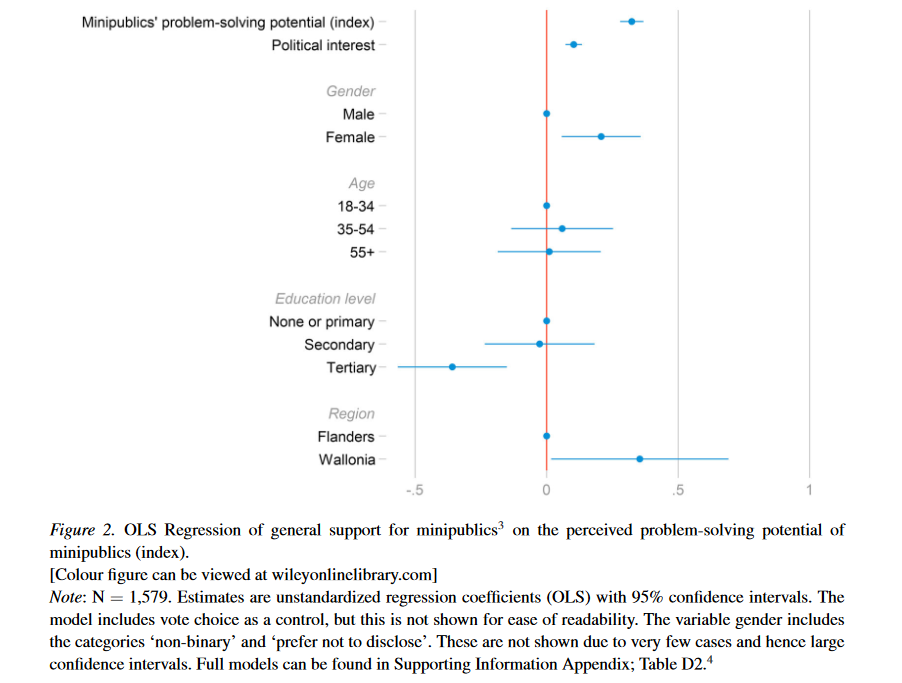
Stubager, Rune, and Mads Thau. 2023. “How Do Voters Interpret Social Class Appeals? Lessons from Open-Ended Responses.” West European Politics, https://doi.org/10.1080/01402382.2023.2274726.
In @wepsocial.bsky.social, Stubager & Thau study with a survey experiment voter reactions to symbolic (as opposed to policy-based) class-based appeals in 🇩🇰. Declaring to care about the working class is valued by citizens, even if done by a rightwing party.
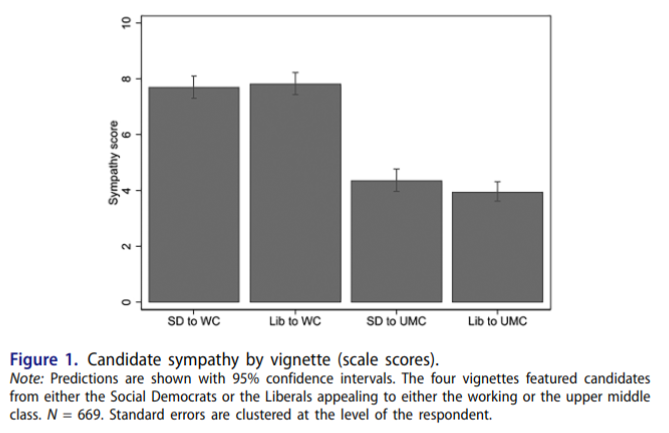
Feierherd, Germán, Ezequiel Gonzalez-Ocantos, and Guadalupe Tuñón. 2023. “Witch Hunts? Electoral Cycles and Corruption Lawsuits in Argentina”. British Journal of Political Science, 1–20. doi:10.1017/S000712342300042.
In @bjpols.bsky.social Feierherd @egocantos.bsky.social & Tuñón study lawfare by focusing on the electoral timing of corruption accusations. Novel dataset of court procedures in 🇦🇷 over 8 yrs. Find more complaints filed against and by politicians right before elections.
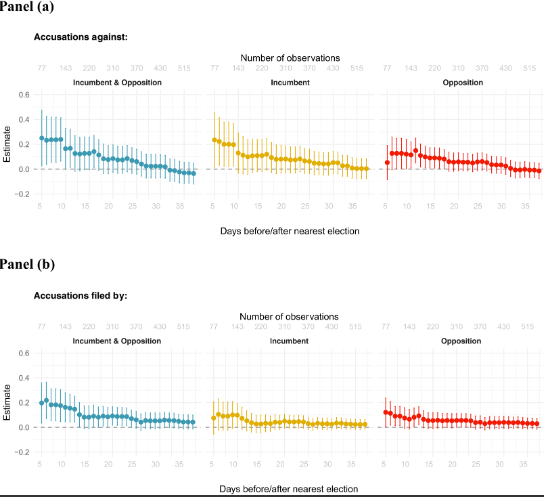
Heath Pickerings, Tom Bellens, and Marleene Brans, “The Prime Minister’s Chief of Staff: Comparing Profiles and Trends in Westminster Democracies, 1990–2021,” Governance, accessed November 16, 2023, https://onlinelibrary.wiley.com/doi/full/10.1111/gove.12834.
In @govjournal.bsky.social Pickerings, Bellens & Brans study chiefs of staff’s profiles in 🇦🇺, 🇨🇦, 🇳🇿, and 🇬🇧. Use prosopography to create a novel dataset covering 56 individuals from 1990 to 2021. Most come from politics but move into different paths.
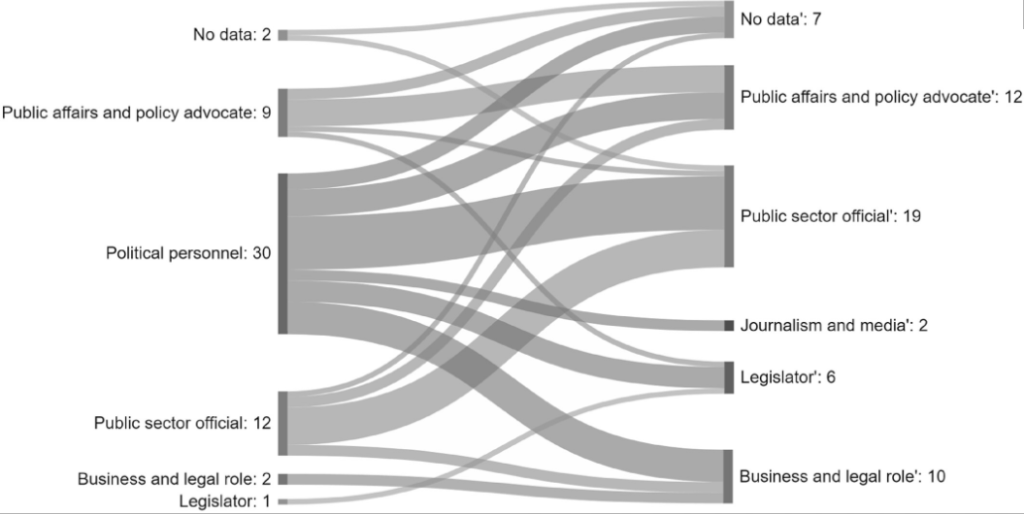
Lee, Diana Da In, and Yamil Ricardo Velez. 2023. “Rising Tides or Political Ripcurrents? Gentrification and Minority Representation in 166 Cities.” Urban Affairs Review, November, 10780874231210768. https://doi.org/10.1177/10780874231210768.
In Urban Affairs Lee & @yamilrvelez.bsky.study impact of gentrification on minority representation in 166 US city councils. Economic and racial gentrification distinct. Economic gentrification can increase minority representation, racial gentrification reduces it.
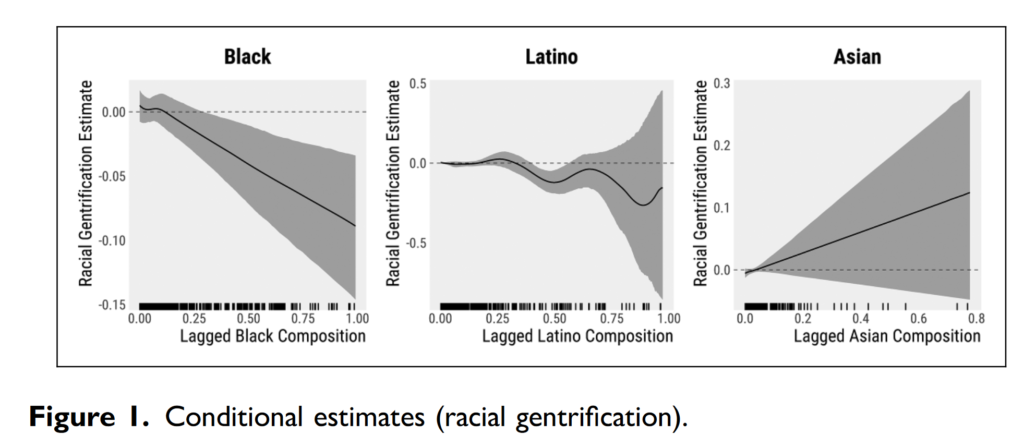
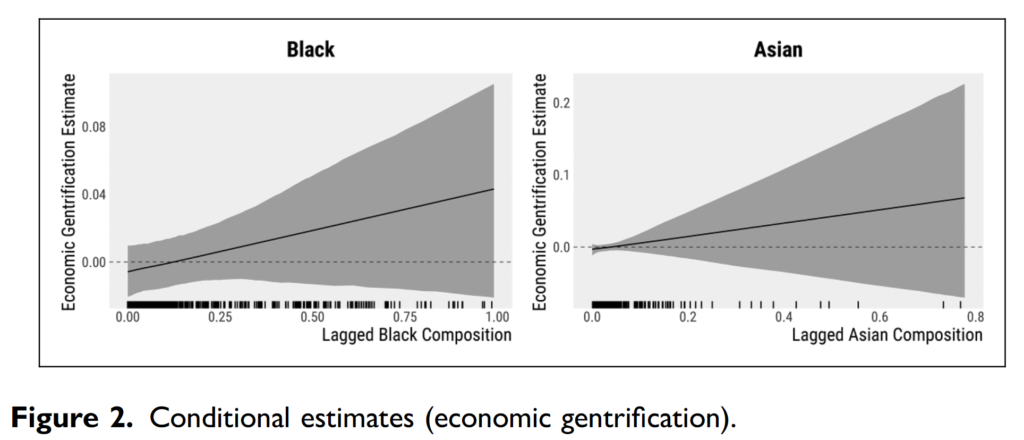
#13 – 18.10.2023 and 02.11.2023
Unequal responsiveness to men and women in 43 countries – Billionaires in politics across the world – Identifying widespread corruption in Czech Republic – Policy returns and voters’ support for politicians in the U.S. – Civic duty and turnout in Spain
Persson, Mikael, Wouter Schakel, and Anders Sundell. 2023. “A Man’s World? The Policy Representation of Women and Men in a Comparative Perspective.” Perspectives on Politics, October, 1–17. https://doi.org/10.1017/S1537592723002049.
In PoP, Persson, Schakel & Sundell study gender political inequality in policy responsiveness. 43 countries over time. Match preferences with actual policy change. Women’s policy preferences underrepresented. More women in politics & labor market reduces bias.
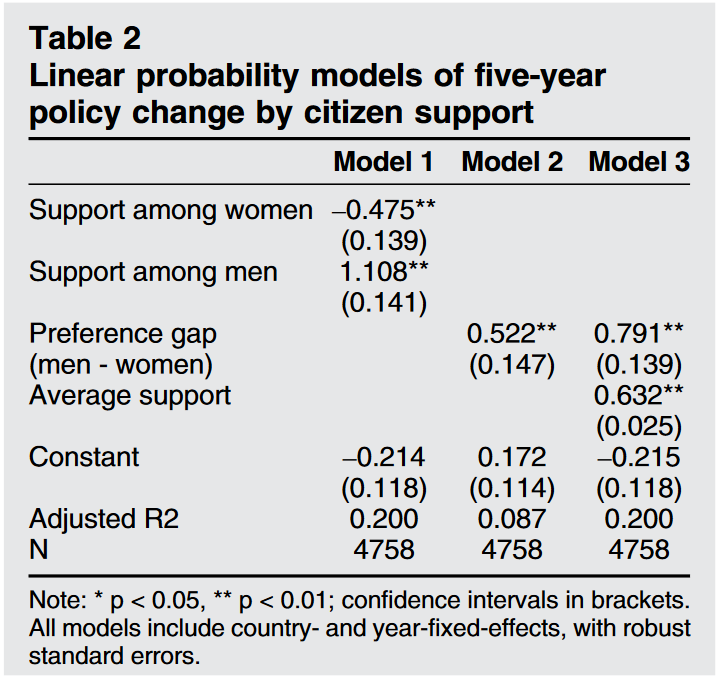
Krcmaric, Daniel, Stephen C. Nelson, and Andrew Roberts. 2023. “Billionaire Politicians: A Global Perspective.” Perspectives on Politics, 1–15. doi:10.1017/S1537592723002761
Krcmaric, Nelson & @andrewroberts.bsky.social’s PoP paper presents an original dataset of billionaires’ direct involvement in politics. Covers 2,000 individuals across the world. Billionaire political participation is above average in 🇨🇳, 🇷🇺, 🇭🇰, & 🇸🇬
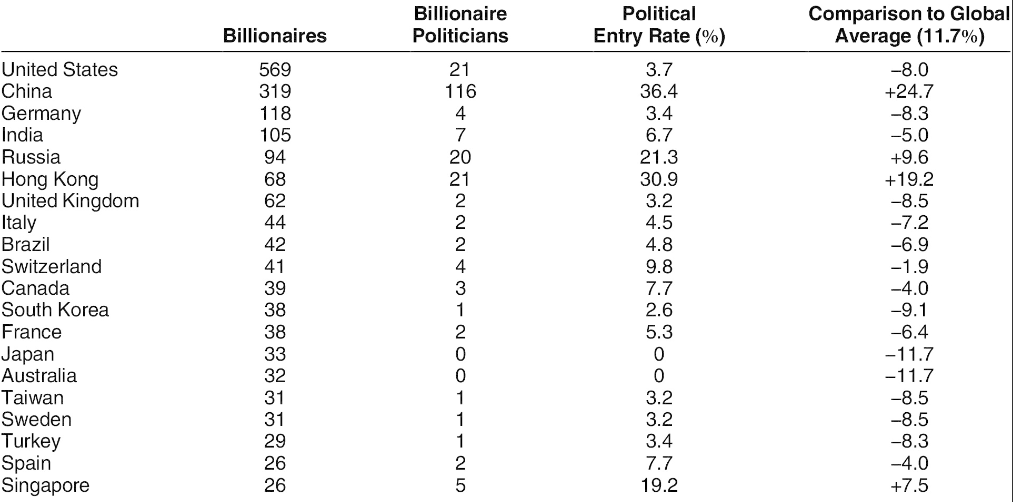
Gawthorpe, Steven, and Joseph Pozsgai-Alvarez. 2023. “How to Identify Widespread Corruption? New Insights from Geo-Spatial Analysis.” Governance, October, 1-22. https://doi.org/10.1111/gove.12832.
In Governance, Gawthorpe & Pozsgai-Alvarez investigate corruption as informal institution in 🇨🇿. Show construction companies that donate to political parties are more likely to be awarded public projects. Effect stable over time and in most regions of 🇨🇿.
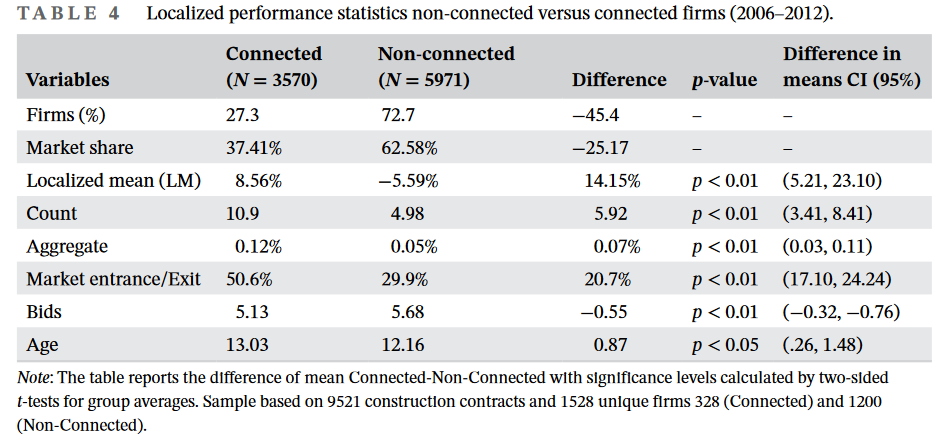
Gerber, Alan S., Gregory A. Huber, Patrick D. Tucker, and John J. Cho. 2023. “The Importance of Breaking Even: How Local and Aggregate Returns Make Politically Feasible Policies.” British Journal of Political Science, October, 1–18. https://doi.org/10.1017/S0007123423000522.
In @bjpols.bsky.social Gerber, Huber, Tucker & Cho study if voters punish politicians supporting policies that are beneficial on aggregate but hurt their locality. Find discontinuity at 0: whether or not locality is hurt matters more than how much it is benefitted or hurt.
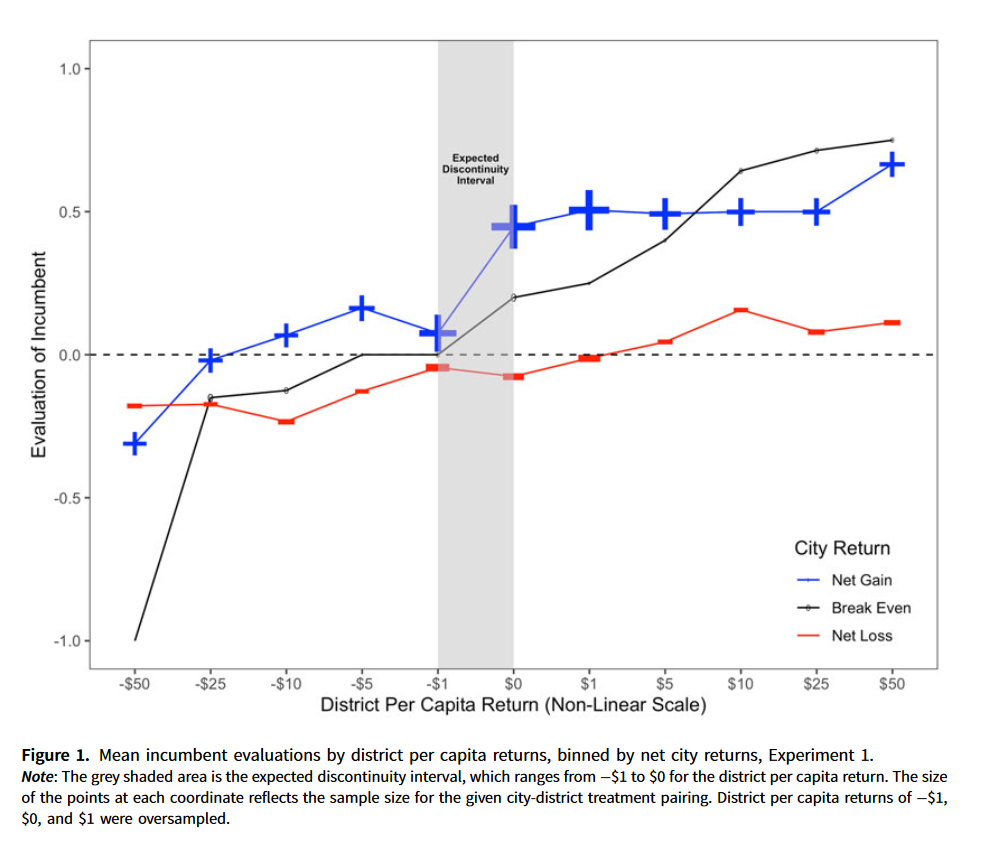
Artes, Joaquin, and Ignacio Jurado. 2023. “Compulsory Civic Duty and Turnout: Evidence from a Natural Experiment.” Political Science Research and Methods, October, 1–10. https://doi.org/10.1017/psrm.2023.44.
In PSRM, Artes & @jurado.bsky.social study effect of being randomly selected as electoral officer for political behavior in Spain. Forced civic duty has strong short-term effect on turnout, but fades over time. Attitudes toward democracy & trust not affected.
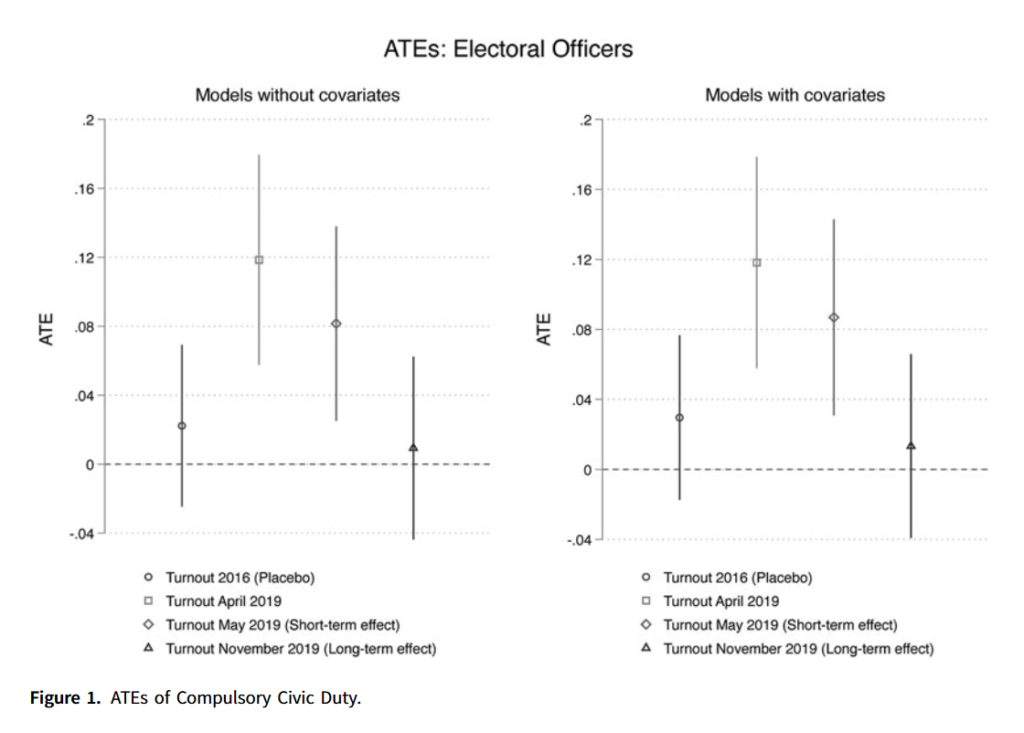
#12 – 10.10.2023 and 20.10.2023
Citizens’ reactions to high-profile corruption trials in Brazil – Class and spatial inequalities in Brazilian cities – Citizens’ lobby in the Netherlands – Clientelism in Africa – Fiscal preferences in Mexico
Barbabela, Letícia. (2023) “Judicial Inconsistency and Citizen Anti-Corruption Demobilization: Evidence from Brazil.”Government and Opposition, 1–20. doi:10.1017/gov.2023.36
In G&O @letmeni.bsky.social asks: how do ordinary citizens react to judicial inconsistency in corruption trials? Uses real high-profile case in 🇧🇷 as an unexpected event during survey. Show decrease in trust in courts & willingness to report corruption
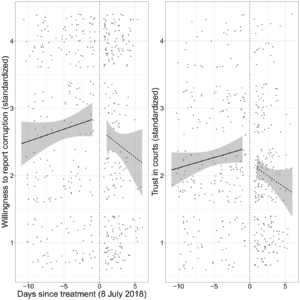
Xu, Alice Z. 2023. “Segregation and the Spatial Externalities of Inequality: A Theory of Interdependence and Public Goods in Cities.” American Political Science Review, October, 1–18. https://doi.org/10.1017/S0003055423000722.
In AJPS @alicexu.bsky.social studies preferences for urban public good provision. New theory about spatial externalities of inequality. Focus groups, original survey & IV approach in 🇧🇷. Integration induces middle-class preferences for public rather than private goods
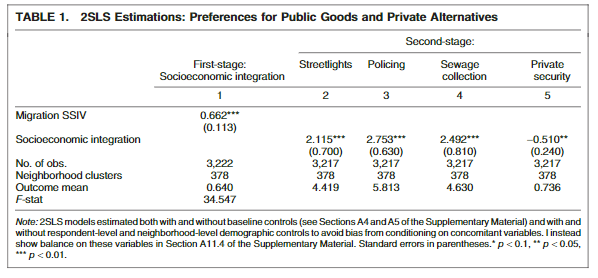
Aizenberg, Ellis, Hannah Werner, and Sharon van Geldere. 2023. “Helping Citizens to Lobby Themselves. Experimental Evidence on the Effects of Citizen Lobby Engagement on Internal Efficacy and Political Support.” Journal of European Public Policy 0 (0): 1–30. https://doi.org/10.1080/13501763.2023.2266459.
In JEPP, @aizenbergellis.bsky.social Werner and van Geldere shows that governments’ active engagement in citizen lobby process increases external efficacy and local government trust. Uses 2 survey experiments in the Netherlands.
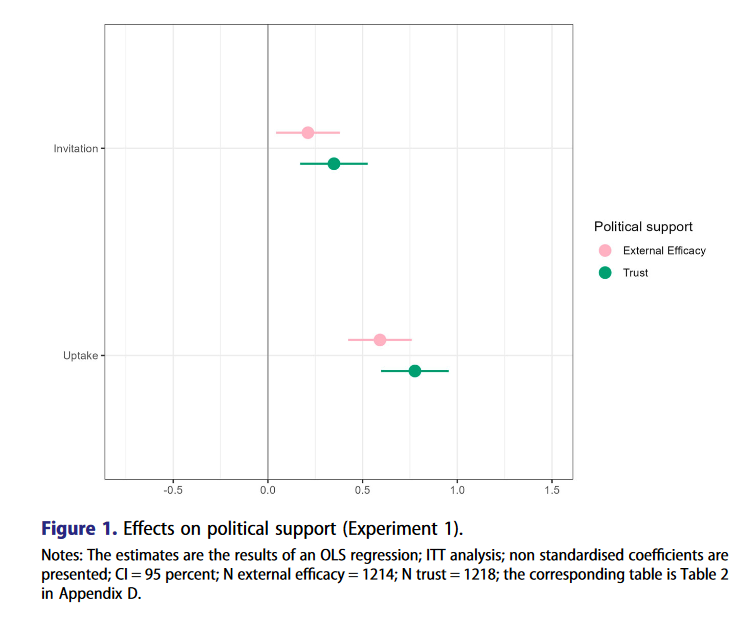
Stankov, Nemanja. 2023. “Offer Money, They Will Accept: Linkages between Authoritarian Tendencies and Clientelist Targeting in Africa.” Democratization 0 (0): 1–26. https://doi.org/10.1080/13510347.2023.2267453.
In Democratization, Stankov shows that citizens with authoritarian attitudes are more likely to be targeted by vote buying. Argues it is because they are more likely to comply with brokers instructions. Analysis using Afrobarometer data.
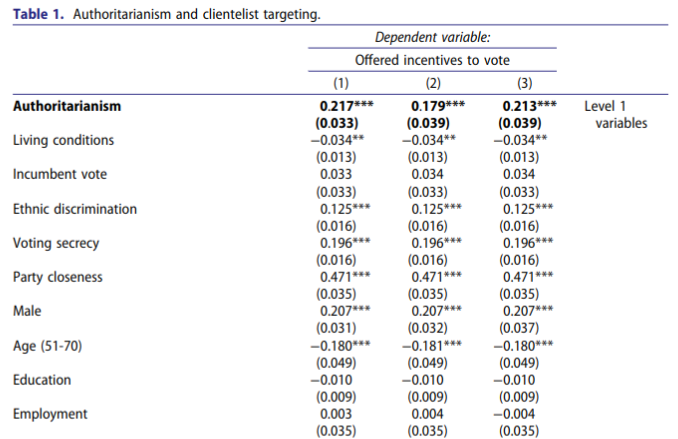
López García, Ana Isabel, Sarah Berens, and Barry Maydom. 2023. “Emigration, Social Remittances and Fiscal Policy Preferences: Experimental Evidence From Mexico.” Comparative Political Studies, October, 00104140231204235. https://doi.org/10.1177/00104140231204235.
In@cpsjournal.bsky.social, @anaisgarcia.bsky.social, Berens & Maydom investigate effect of migrant experiences on home country tax preferences. Survey experiment in Mexico. Find exclusion from welfare in US increases returning migrants support of progressive taxation
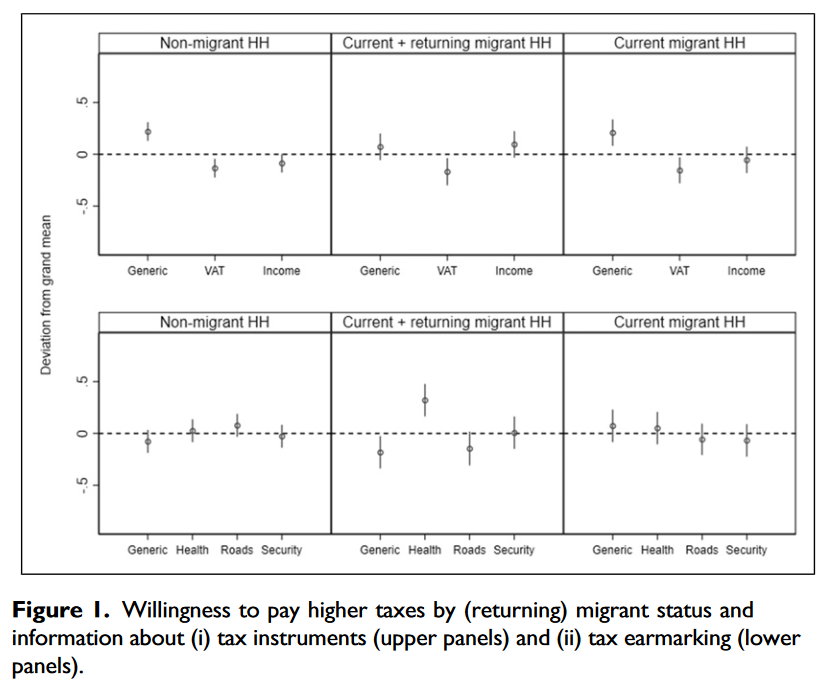
#11 – 22.09.2023 and 09.10.2023
Mutual responsiveness in the Netherlands – Policy expertise and responsiveness in Sweden – Representation of manual workers in Germany – Elite career paths in Denmark – Bloc voting in Brazil
Joosten, Max. 2023. “Who Influences Whom? Inequality in the Mutual Responsiveness between Voters and Elites.” Journal of European Public Policy 0 (0): 1–26. https://doi.org/10.1080/13501763.2023.2260810.
In JEPP Joosten study bridges literatures of unequal representation and unequal adaptation to elite cues. Dutch time-series data. Warns about reverse causality as affluent voters adapt more strongly to party position
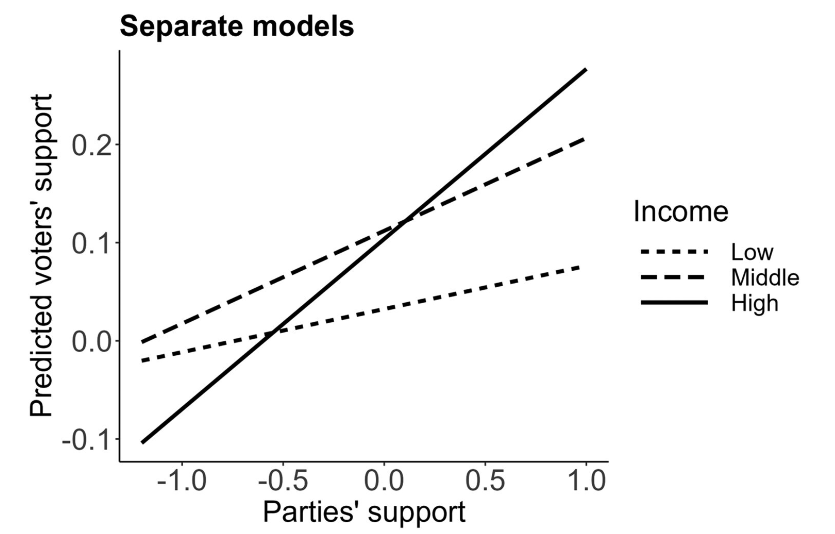
Pereira, Miguel M., and Patrik Öhberg. 2023. “The Expertise Paradox: How Policy Expertise Can Hinder Responsiveness.” British Journal of Political Science, October, 1–18. https://doi.org/10.1017/S0007123423000303.
In BJPS @miguelpereira.bsky.social and Patrik Öhberg investigate effect of politician policy expertise on responsiveness. Experiments with Swedish politicians. More expertise makes politicians believe voters don’t understand complexity & facts of issue & less likely to think voter opinion represents majority.
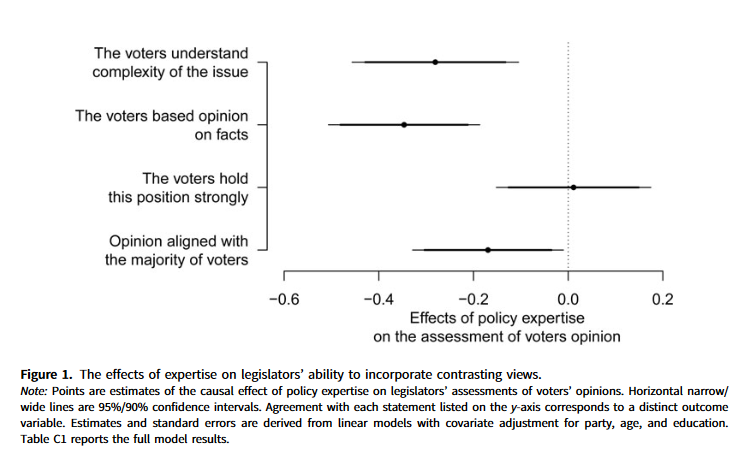
Kübler, Marie. 2023. Who Speaks for Manual Workers? Unequal Congruence in the 2017 German Federal Election. West European Politics: 1–27. https://doi.org/10.1080/01402382.2023.2254637.
In WEP, Kübler analyzes opinion congruence of workers & MPs in Germany. Compared to other classes, low congruence between workers and MPs. For individual issues, high congruence w/ different parties, esp on immigration (AfD) & income inequality (Greens, SPD & Left).
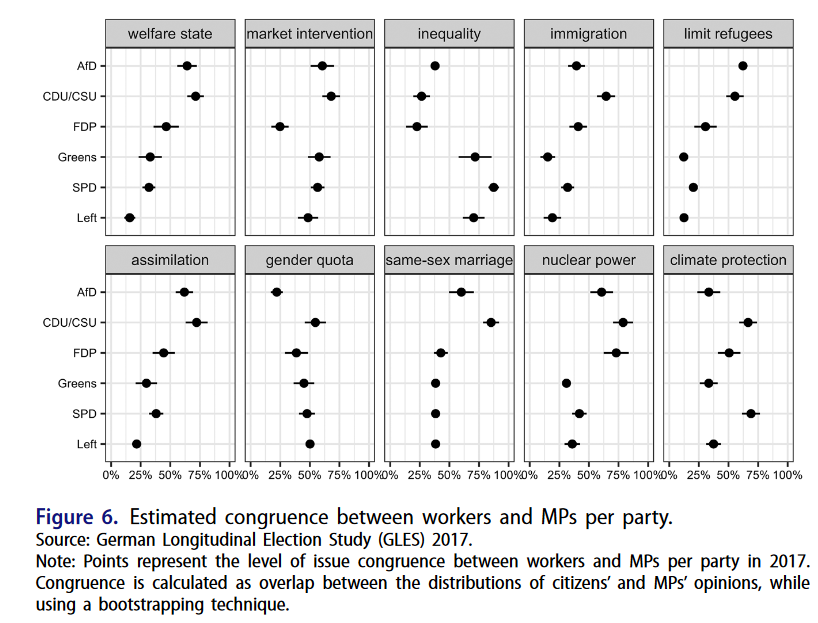
Binderkrantz, Anne Skorkjær, Jørgen Grønnegård Christensen, Peter Munk Christiansen, Marie Kaldahl Nielsen, and Helene Helboe Pedersen. n.d. “Closed Shutters or Revolving Doors? Elite Career Track Similarity and Elite Sector Transfers in Denmark.” European Journal of Political Research n/a (n/a). Accessed October 9, 2023. https://doi.org/10.1111/1475-6765.12627.
In EJPS, @annebind.bsky.social & co-authors collect data on careers of +500 political elites in 🇩🇰: MPs, top bureaucrats and leaders of interest organizations. Careers paths are fairly distinct across groups; few individuals hold different types of elite position.
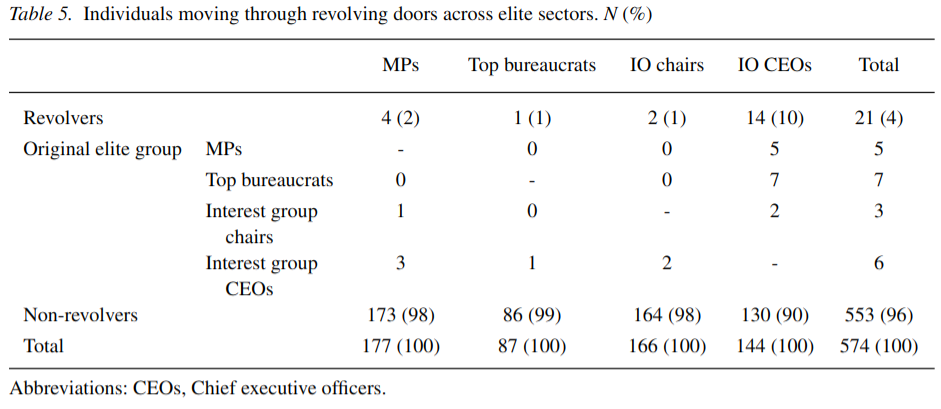
Cooperman, A. D. (2023). 2023. “Bloc Voting for Electoral Accountability.”American Political Science Review, 1–18. https://doi.org/10.1017/S0003055423000989
In APSR, @acooperman.bsky.socia studies prerequisites & success of bloc voting in Brazil. Uses conjoint experiment, electoral data and interviews. Trust and ability to show loyalty make bloc voting more likely. Bloc voting improves water access for association members.

#10 – 08.9.2023 and 21.09.2023
Allocation of privately financed infrastructure in middle income countries – Indirect taxes and accountability – Voter’s fiscal adjustment preferences in Latin America – The relationship between political trust and democracy – Clientelism and redistribution in 🇿🇦
Woodhouse, Eleanor F. (2019). “The distributive politics of privately financed infrastructure agreements“. Governance, (September 15, 2023). https://doi.org/10.1111/gove.12824
In @Gov_Journal @woodhouseleanor’s distributive politics study focuses on privately financed infrastructure projects. Data from 16 middle income countries. Projects targeted to swing districts aligned with national government, particularly when visible
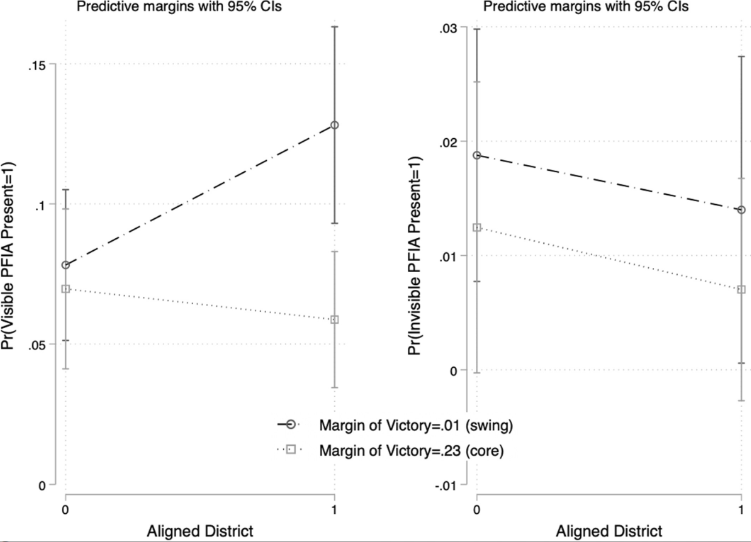
Cuesta, Brandon de la, Lucy Martin, Helen V. Milner, and Daniel L. Nielson. 2023. “Do Indirect Taxes Bite? How Hiding Taxes Erases Accountability Demands from Citizens.” The Journal of Politics, March, 000–000. https://doi.org/10.1086/724962.
In @The_JOP Cuesta @lucy_es_martin @hvm1 & Nielson study taxation and political accountability using experiments in 🇺🇬. VAT induces less accountability than personal income tax, because VAT is less visible
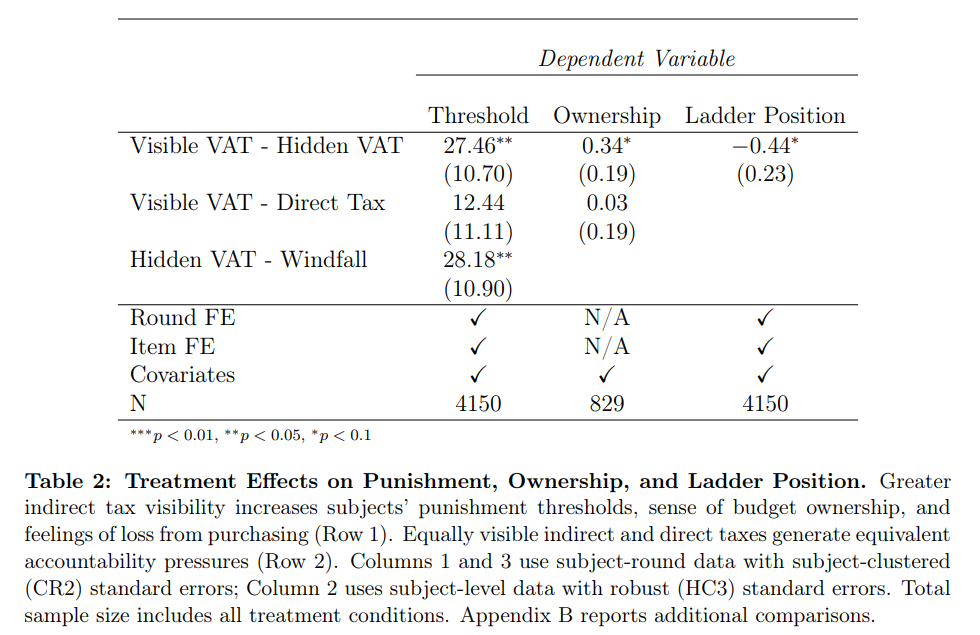
Ardanaz, Martin; Hübscher, Evelyne; Keefer, Philip, & Sattler, Thomas (2023). “Voters’ Preferences over the Composition of Fiscal Adjustment: Experimental Evidence from Latin America.” (September 2023) http://dx.doi.org/10.18235/0005119.
In a @the_IDB WP, Ardanaz, Keefer, @EveHubscher & @SattlersThomas use conjoint experiment in 🇧🇷🇨🇴🇨🇷🇵🇪 to study preferences over ways of reducing budget deficit. Increasing income tax and reducing social assistance the least preferred options
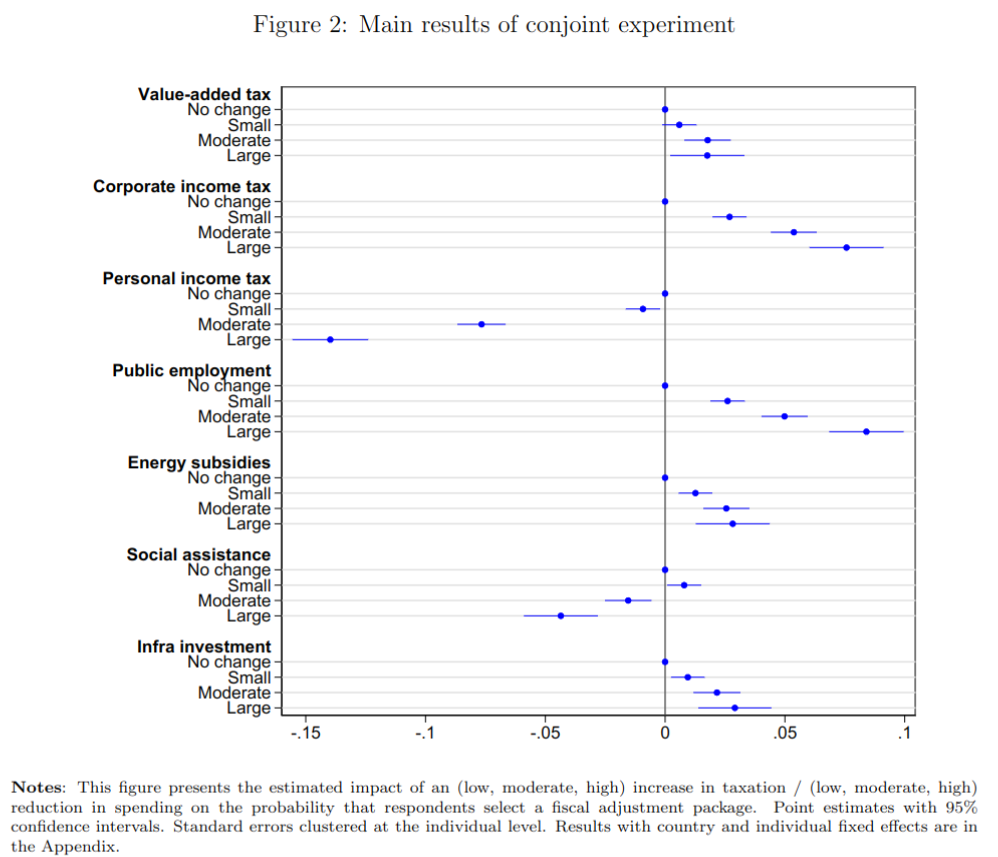
Dawson, Andrew, and Isabel L. Krakoff. 2023. “Political Trust and Democracy: The Critical Citizens Thesis Re-Examined.” Democratization 0 (0): 1–23. https://doi.org/10.1080/13510347.2023.2257607.
In @democ_journal @ AND_Dawson & @IzzyLK examine relationship btw. regime type & political trust in 82 countries. Robust negative relationship between democracy & trust. Interpret as support for thesis that democracies have more critical citizens
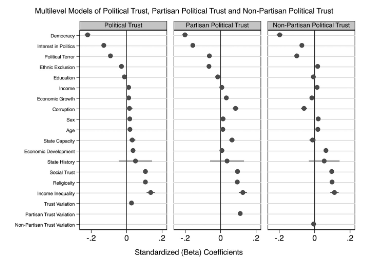
Bauhr, Monika, & Justesen, Mogens. K. (2023). “Electoral Clientelism and Redistribution“. Quality of Government Working Paper Series, 2023(10), (September 223). https://hdl.handle.net/2077/78483.
In @QoGData WP Bauhr & @mkjustesen study relationship between clientelism and demand for redistribution in 🇿🇦. Find strong negative association between involvement in clientelism & preferences for programmatic redistribution on education or health.
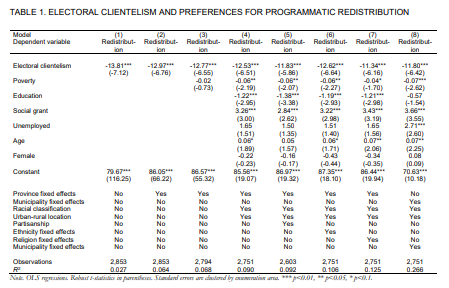
#9 – 25.08.2023 and 07.09.2023
Collective-Action in Mexico City – Descriptive Representation Worldwide – Minority Representation and Forest Conservation in India – Discretionary Governmental Transfers in Argentina – Natural Disasters and Clientelism in Honduras
Chriswell, Kaitlyn, and Alyssa Huberts. 2023. “Collective Action Infrastructure: The Downstream Effects of Urban Neighborhood Organizing.” Comparative Political Studies, September, 00104140231193018. https://doi.org/10.1177/00104140231193018.
In @cps_journal @KChriswell9 & @AlyssaHuberts study variation in neighborhood problem-solving. Online survey in Mexico City. Those who organised for earthquake more likely to organise over crime later. Collective-action infrastructure serves other issues.
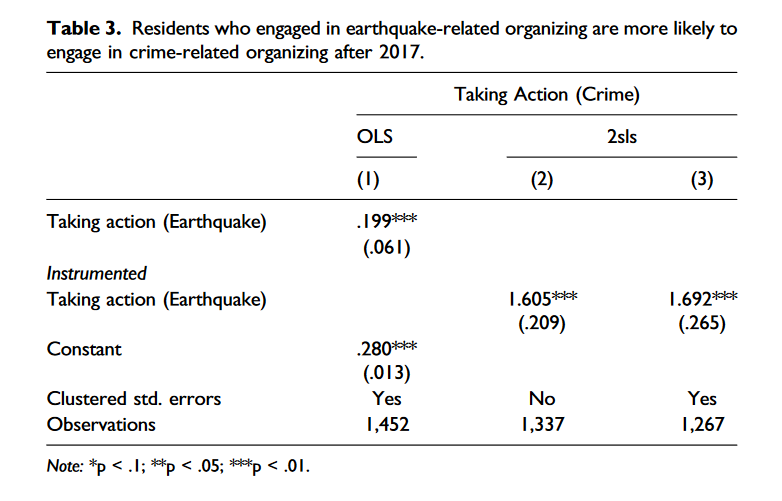
Gerring, John, Connor T. Jerzak, and Erzen Öncel. 2023. “The Composition of Descriptive Representation.” American Political Science Review, September, 1–18. https://doi.org/10.1017/S0003055423000680.
In @apsrjournal Gerring @JerzakConnor@ozyeginuni estimate the extent of descriptive representation in a sample of over fifty thousand politicians in 156 countries. Main drivers of variation are compositional: size of the body and heterogeneity of population
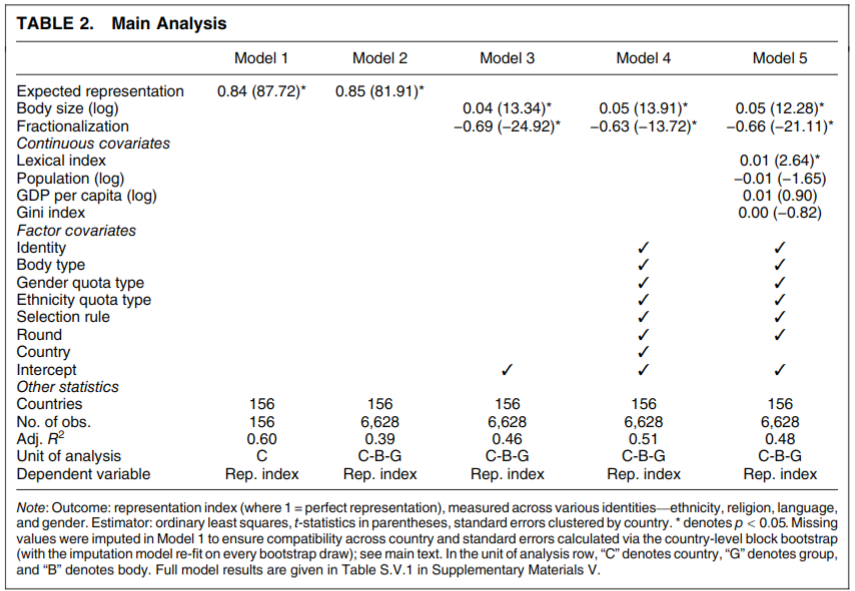
Gulzar, Saad, Apoorva Lal, and Benjamin Pasquale. 2023. “Representation and Forest Conservation: Evidence from India’s Scheduled Areas.” American Political Science Review, September, 1–20. https://doi.org/10.1017/S0003055423000758.
In @apsrjournal @saadgulzar @Apoorva__Lal & @bjpasquale ask how political representation affects forest conservation. DiD exploits law boosting Scheduled Tribes’ local representation in India. More conservation in scheduled areas where law was implemented
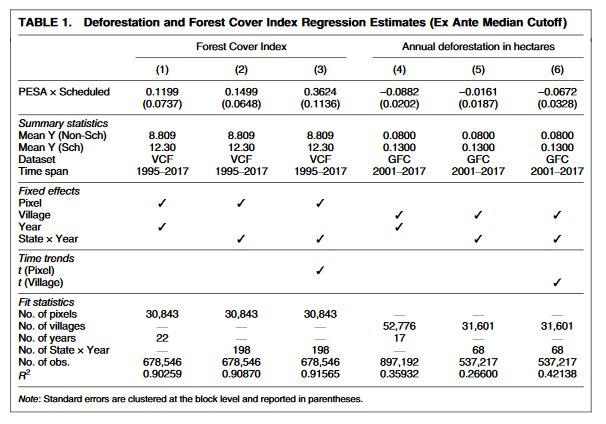
Clerici, Paula, Lucía Demeco, Franco Galeano, and Juan Negri. n.d. “Mudding the Playing Field. Fiscal Contributions to Municipalities as a Political Construction.” Governance n/a (n/a). Accessed September 7, 2023. https://doi.org/10.1111/gove.12820.
In @Gov_Journal @paduis @ludemeco @Tartagalensis @jjnegri4 study discretionary national transfers to municipalities in Argentina. Mayors aligned with national government, but opposed to provincial governor get most.
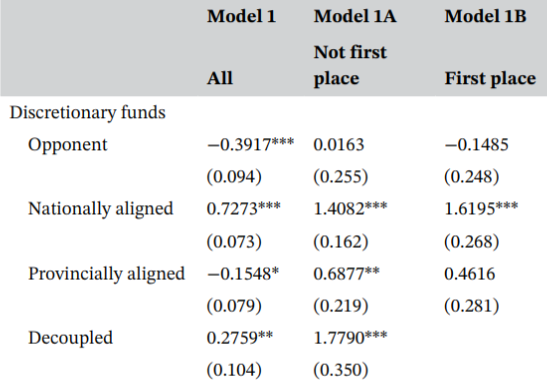
Birch, Sarah, and Ferran Martínez i Coma. 2023. “Natural Disasters and the Limits of Electoral Clientelism: Evidence from Honduras.” Electoral Studies 85 (October): 102651. https://doi.org/10.1016/j.electstud.2023.102651.
In @ElectoralStdies Birch & Ferran Martínez i Coma argue natural disasters can increase clientleism because more money is available to distribute and people have more need. Find relation using LAPOP data on Honduras.
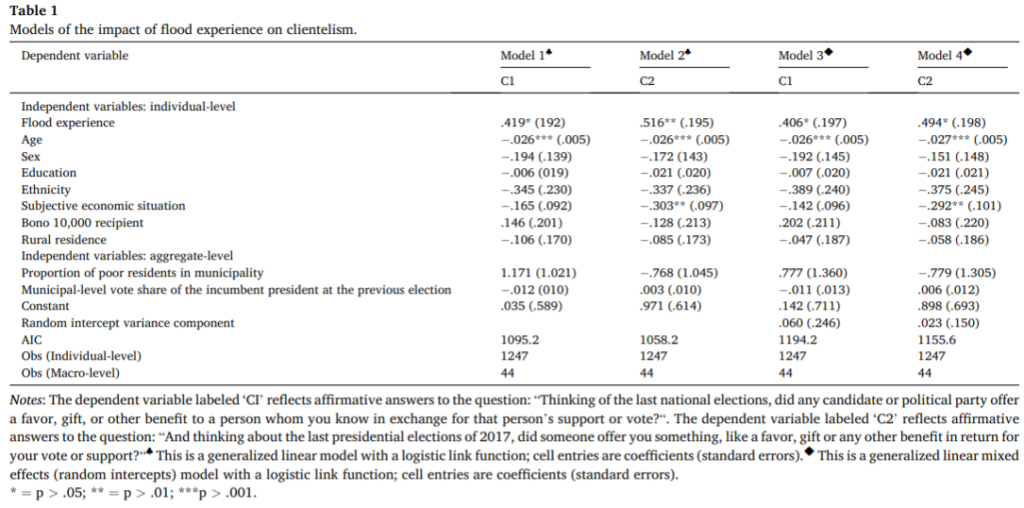
#8 – 14.07.2023 and 24.08.2023
Goals of participatory institutions in Latin America – Influence of protest on politicians’ speech in the UK – Citizens’ acceptance of politicians’ undemocratic behaviour in 5 democracies – Neighbourhood disadvantage & turnout in the US – Wealth gap & voting in Sweden
Mayka, Lindsay, and Jared Abbott. 2023. “Varieties of Participatory Institutions and Interest Intermediation.” World Development 171 (November): 106369. https://doi.org/10.1016/j.worlddev.2023.106369.
In @WorldDevJournal @LindsayMayka & Abbott develop participatory institutions typology with lens of interest intermediation. 🇧🇷🇻🇪🇵🇪🇪🇨. Goals vary: policy reform, improve services etc. Argue that success should be measured according to goals.

Barrie, Christopher, Thomas G. Fleming, and Sam S. Rowan. 2023. “Does Protest Influence Political Speech? Evidence from UK Climate Protest, 2017–2019.” British Journal of Political Science, August, 1–18. https://doi.org/10.1017/S0007123423000376.
In @BJPolS @cbarrie Fleming @_samsrowan ask: does protest influence political speech? Fine-grained crowd-sourced protest data from Fridays for the Future in the UK & politicians’ tweets & parliament speeches. Protest affects online but not offline speech.
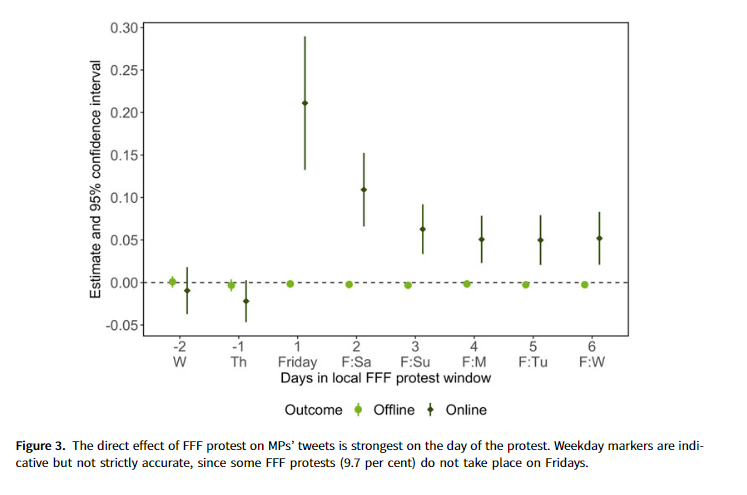
Frederiksen, Kristian Vrede Skaaning. 2023. “Do Partisanship and Policy Agreement Make Citizens Tolerate Undemocratic Behavior?” The Journal of Politics, August. https://doi.org/10.1086/726938.
In @The_JOP @kristianvsf studies effects of partisanship & policy agreement on acceptance of undemocratic behavior by politicians. Conjoints in 5 countries. Partisans voting intentions affected by undemocratic behavior as much as non-partisans
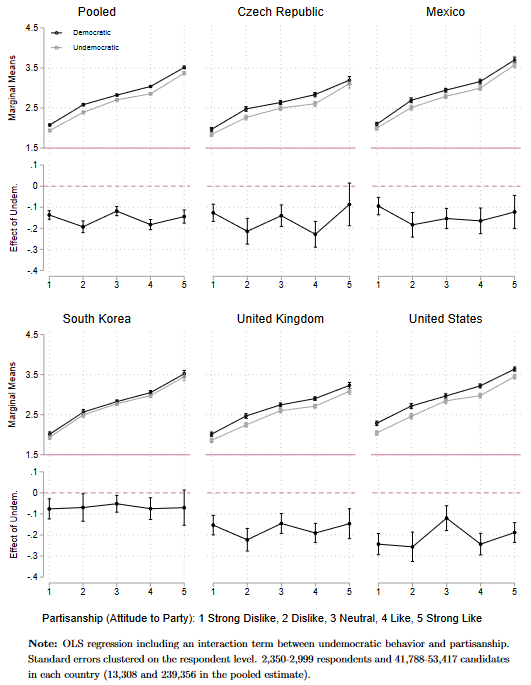
Elder, Elizabeth Mitchell, Ryan D. Enos, and Tali Mendelberg. 2023. “The Long-Term Effects of Neighborhood Disadvantage on Voting Behavior: The ‘Moving to Opportunity’ Experiment.” American Political Science Review, July, 1–17. https://doi.org/10.1017/S0003055423000692.
In @apsrjournal @elizabethmelder @RyanDEnos & @TMendelberg study causal effect of disadvantage on turnout. They exploit 🇺🇸 program randomly giving vouchers to move to better areas. Even when program improved economic outcomes, no effect on turnout
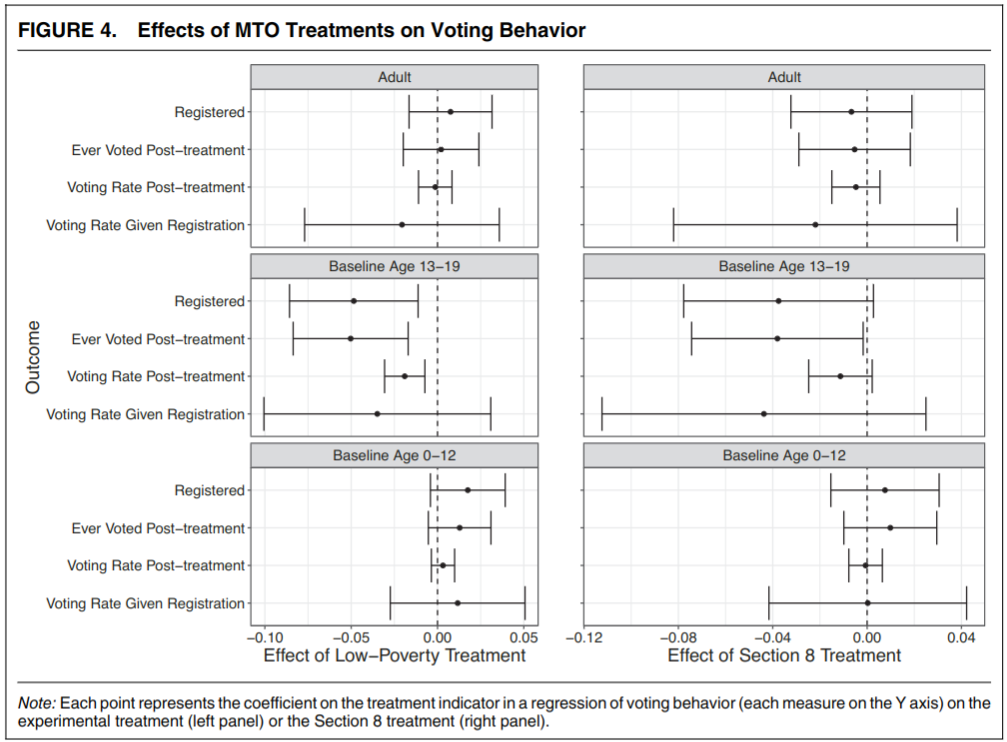
Brännlund, Anton, and Jan Szulkin. 2023. “How Does a Growing Wealth Gap Affect Voting? – Evidence from Sweden.” Electoral Studies 85 (October): 102647. https://doi.org/10.1016/j.electstud.2023.102647.
In @ElectoralStdies @BrannlundAnton & Szulki study how wealth gap affects voting. Use wealth data from Swedish electoral precincts between 1998 & 2006. Relative house wealth is stronger predictor of left-wing voting than absolute wealth.
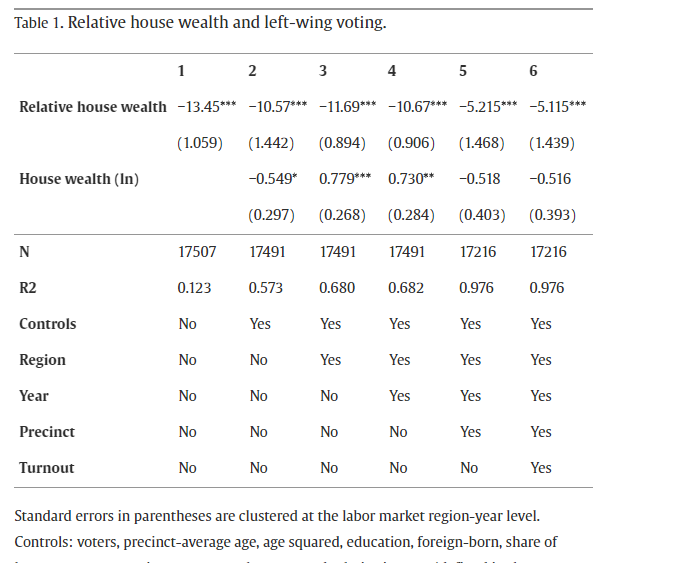
#7 – 30.06.2023 and 13.07.2023
Decreasing political trust in Europe – Variation in incumbency rates across democracies – Electoral consequences of state violence in South Africa – Quid pro quo between politicians and contractors in India – Responsibility attribution amongst politicians in Norway
Bienstman, Simon, Svenja Hense, and Markus Gangl. n.d. “Explaining the ‘Democratic Malaise’ in Unequal Societies: Inequality, External Efficacy and Political Trust.” European Journal of Political Research n/a (n/a). Accessed July 4, 2023. https://doi.org/10.1111/1475-6765.12611.
In @EJPRjournal@SBienstman, @svhense & Gangl study the relationship between rising income inequality & lower political trust in Europe. With @ESS_Survey data & causal mediation analysis they show indirect effect of inequality on trust via external efficacy
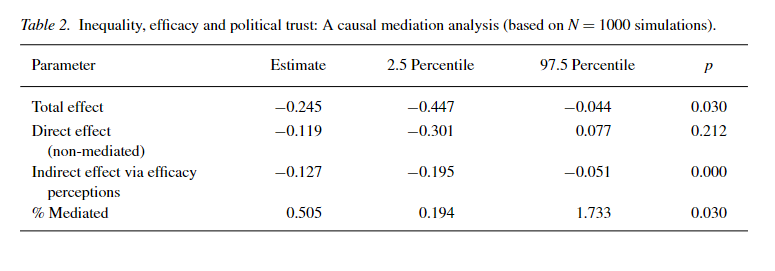
Martin, Shane, Charles T. McClean, and Kaare W. Strøm. 2023. “Legislative Resources, Corruption, and Incumbency.” British Journal of Political Science, July, 1–10. https://doi.org/10.1017/S0007123423000108.
In @BJPolS @shane_martin, @cmcclean & Strøm ask: what accounts for variation in re-election rates across democracies? Use IV regression & data covering >200 elections in 68 countries. Impact of legislative resources on re-election weakened by corruption
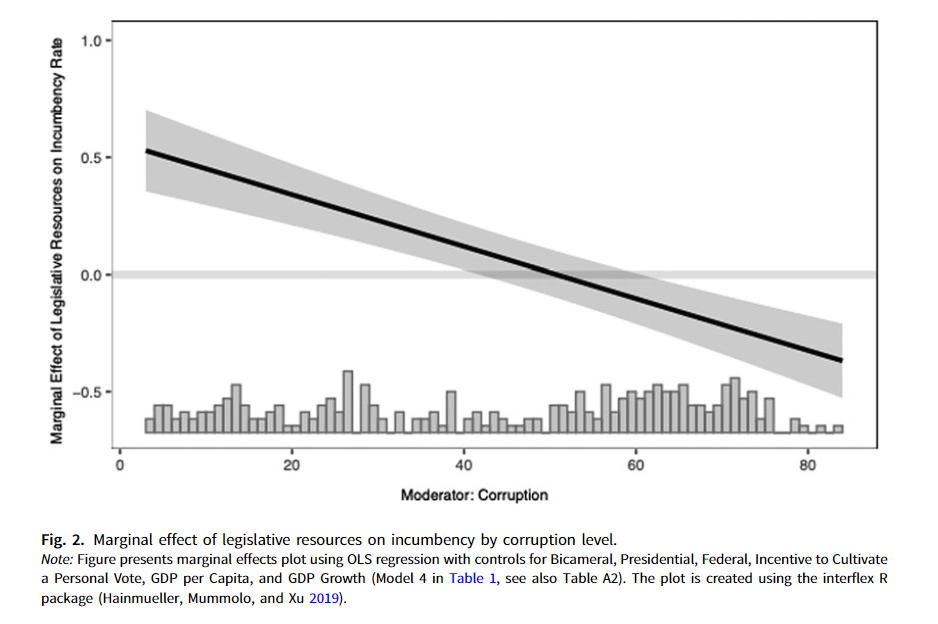
Daniel De Kadt, Ada Johnson-Kanu, and Melissa L. Sands. 2023. “State Violence, Party Formation, and Electoral Accountability: The Political Legacy of the Marikana Massacre,” American Political Science Review. (July 10, 2023). 1–21. https://doi.org/10.1017/S0003055423000448.
In @apsrjournal @dandekadt, @AdaJKanu & @melissaleesands study electoral consequences of state violence against striking mineworkers in South Africa. Show decline in ANC support in places close to massacre as supporters switch to new opposition party
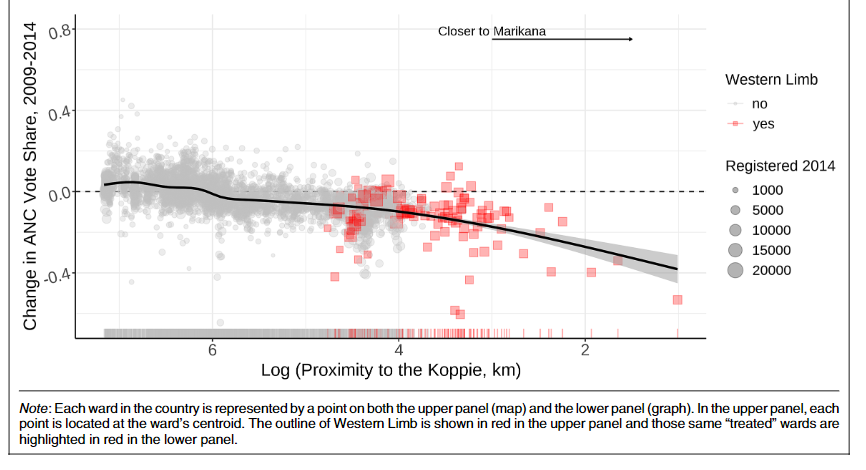
Vaidehi Tandel, Sahil Gandhi, and Alex Tabarrok. 2023. “Building Networks: Investigating the Quid pro Quo between Local Politicians & Developers,” Journal of Development Economics 164 (September 1, 2023). 103138. https://doi.org/10.1016/j.jdeveco.2023.103138.
In JDE @VaidehiTandel, @gandhisahil and @ATabarrok study local politicians and contractors’ collusion in Mumbai. Novel geocoded dataset of real estate projects. Incumbent defeat delays construction completion, suggesting turnover disrupts deals
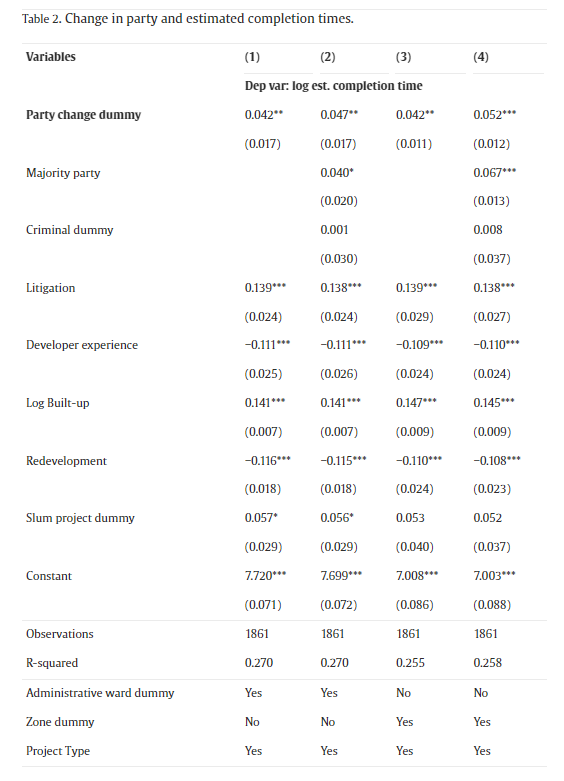
Nanna Lauritz Schönhage, Martin Bækgaard, and Benny Geys. “The Politics of Distributing Blame and Credit: Evidence from a Survey Experiment with Norwegian Local Politicians,” European Journal of Political Research n/a, no. n/a, (accessed July 13, 2023). https://doi.org/10.1111/1475-6765.12610.
In EJPR @NannaLauritz @MartinBaekgaard & Geys study responsibility attribution in education amongst politicians. Survey experiment in Norway. Coalition more prone to claim credit for successes, but credit mostly given to parents and school staff:
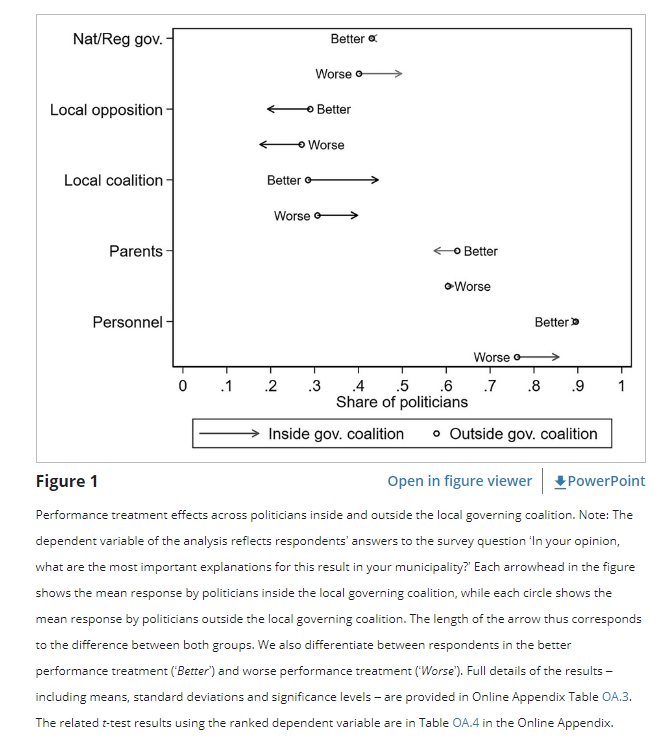
#6 – 16.06.2023 and 29.06.2023
Participatory institutions in Peru – Tax preferences in Norway – Erroneous politician beliefs about voter preferences – Origins of pensions in Norway – Citizen evaluations of clientelism in Tunisia & South Africa
Abbott, Jared, Katherine McKiernan, and Stephanie McNulty. 2023. “Technocracy for the People? The Impact of Government-Imposed Democratic Innovations on Governance and Citizen Well-Being.” Comparative Political Studies, (June), https://doi.org/10.1177/00104140231178725.
2/6 In @cps_journal Abott @KMMcKiernan & McNulty ask if government imposed participatory institutions can work: in Peru, imposed participatory institutions in subnational governments increased pro-poor spending and improved citizen’s quality of life
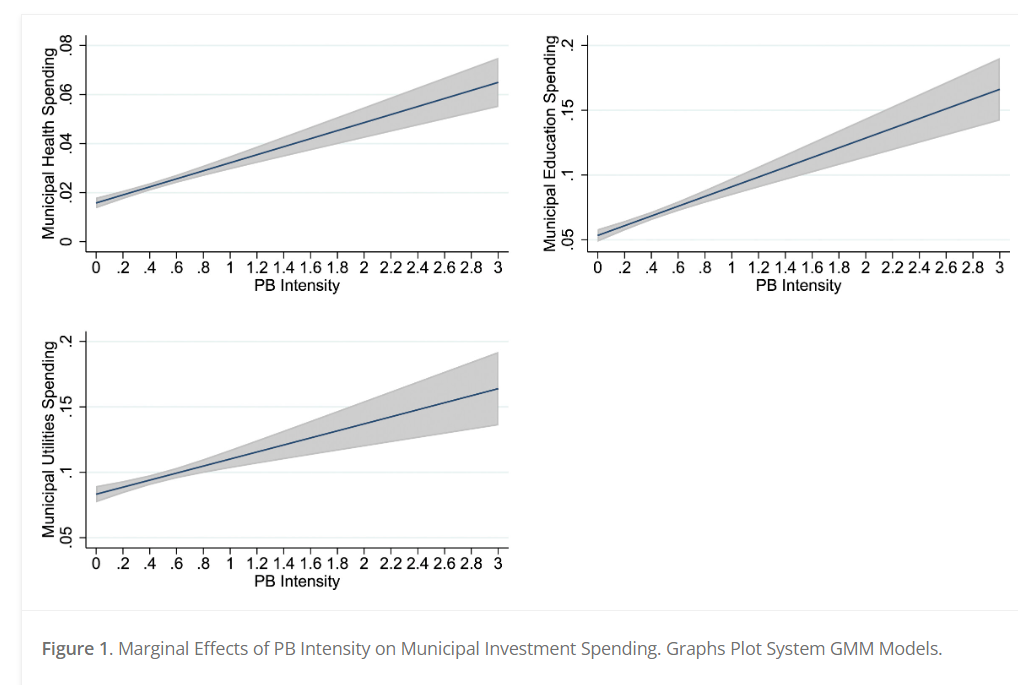
Mathisen, Ruber Berge. 2021. “Taxing the 1 Percent: Public Opinion vs. Public Policy.” https://unequaldemocracies.unige.ch/files/5116/3696/8692/wp29.pdf.
3/6 accepted in @BJPolS @rubenbmathisen compares actual tax schedule vs. preferred by citizens in Norway. Preferences very similar across ideology and income. Top 1% actually pays much less than what citizens would prefer. Discrepancy comes from capital income tax.
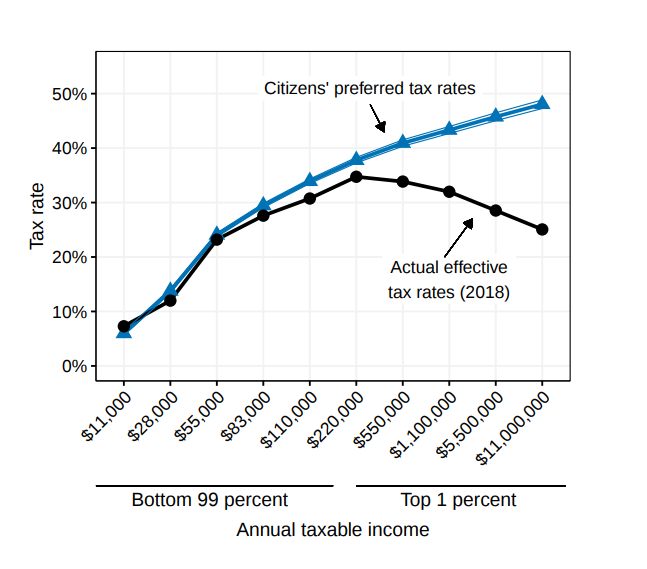
Pilet, Jean-Benoît, Lior Sheffer, Luzia Helfer, FREDERIC VARONE, RENS VLIEGENTHART, and STEFAAN WALGRAVE. 2023. “Do Politicians Outside the United States Also Think Voters Are More Conservative than They Really Are?” American Political Science Review, 1–9. https://doi.org/10.1017/S0003055423000527.
4/6 In @apsrjournal @jbpilet @LiorSheffer Helfer Varone @rensvl find that MPs in several European countries believe citizens are more conservative than what they actually are. This holds across several topics, but particularly for economic ones
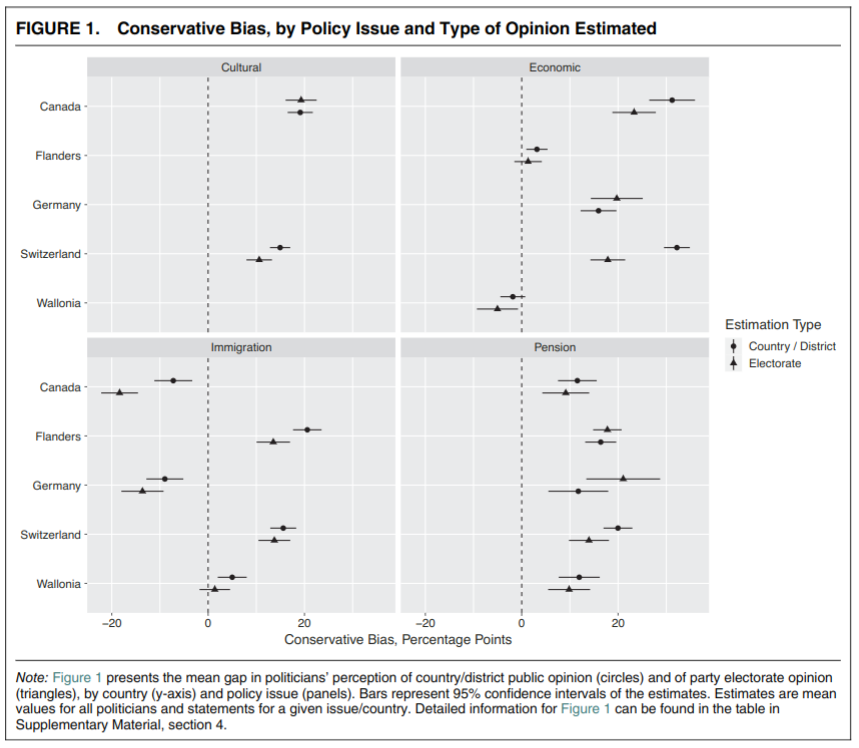
Rasmussen, Magnus, and Carl Knutsen. 2024. “Laying Down the Principles: How Local Socialist Achievements Spurred National Bourgeoise Support for Public Pensions.” World Politics, January. https://shorturl.at/bmrs1.
5/6 In @World_Pol @RasmussenMagnus @carlhknutsen argue historical adoption of redistributive pensions in Norway spurred by local politics. Socialists weak nationally but pushed system in local govs. This served as catalyst for the national level
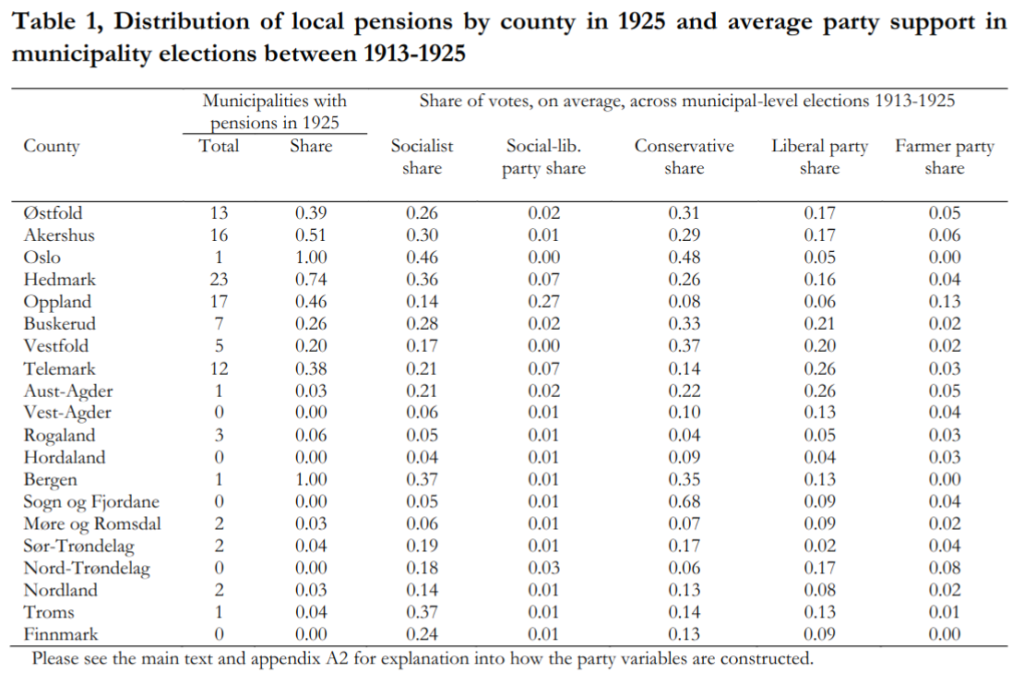
Pellicer, Miquel, and Eva Wegner. 2023. “What Is Bad about Clientelism? Citizen Perceptions in Poor Communities in South Africa and Tunisia.” Electoral Studies 84 (August): 102620. https://doi.org/10.1016/j.electstud.2023.102620.
6/6 In @ElectoralStdies, @mqpellicer & @EvaWegner_tw ask which elements of clientelism citizens in poor communities find unacceptable: particularism and inequality seen negatively but not distortions in public good allocations; conjoint in Tun & SA
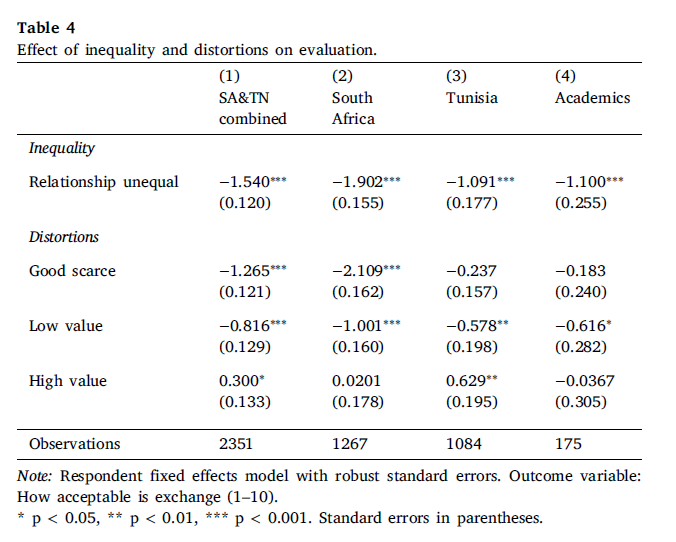
#5 – 01.06.2023 and 15.06.2023
Campaign donations and regulatory enforcement in Colombia – Information provision and youth voting in Portugal – Bureaucratic responsiveness in Germany – A model of lobbying – Ethnic division and public goods provision worldwide
Harding, Robin, Mounu Prem, Nelson A. Ruiz, and David L. Vargas. 2023. “Buying a Blind Eye: Campaign Donations, Regulatory Enforcement, and Deforestation.” American Political Science Review, June, 1–19. https://doi.org/10.1017/S0003055423000412.
In @apsrjournal Harding Prem @nelson_ruizg @DavidLVargasM ask if campaign contributions affect enforcement of regulations. Close-elections RDD shows more deforestation in Colombian cities with donor-funded rather than self-funded mayors

Carvalho, Bruno P., Cláudia Custódio, Benny Geys, Diogo Mendes, and Susana Peralta. 2023. “Information, Perceptions, and Electoral Behaviour of Young Voters: A Randomised Controlled Experiment.” Electoral Studies 84 (August): 102625. https://doi.org/10.1016/j.electstud.2023.102625.
In @ElectoralStdies @bmpcarvalho @claudiacustodi0 Geys @diogogmmendes @speraltalisboa study effect of providing government performance information on young voters in Portugal. Affects voting behavior of undecided. Stronger impact of negative information
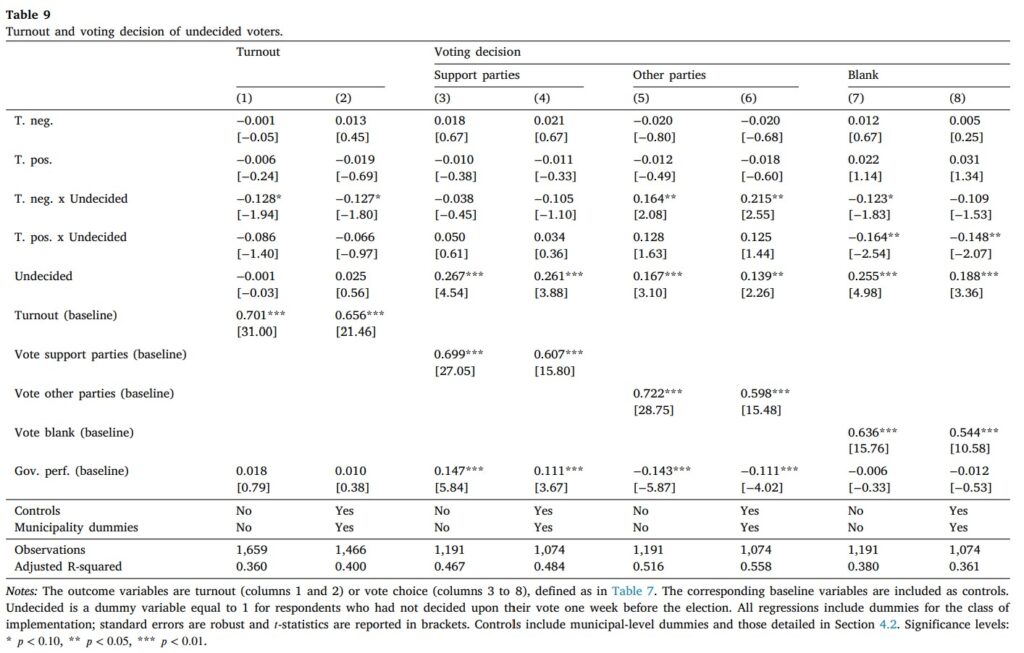
Trautendorfer, Julia, Lisa Schmidthuber, and Dennis Hilgers. 2023. “Are the Answers All out There? Investigating Citizen Information Requests in the Haze of Bureaucratic Responsiveness.” Governance n/a (n/a). https://doi.org/10.1111/gove.12805.
In @Gov_Journal @JTrautendorfer @LSchmidthuber @PuMa_Hilgers study bureaucratic responsiveness to citizens. Examine 100,000 requests using big data methods. Requests on high-accountability topics like public spending more likely to be answered than individual
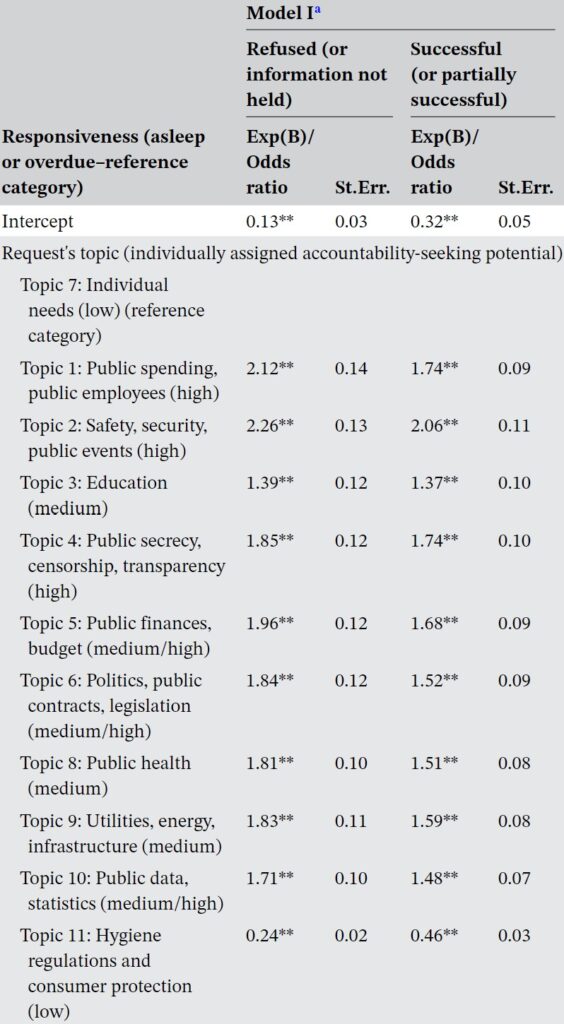
Judd, Gleason. 2023. “Access to Proposers and Influence in Collective Policy Making.” The Journal of Politics, January, 000–000. https://doi.org/10.1086/723992.
In @The_JOP Judd’s model of lobbying. The mere fact of having access to a politician (even without actual lobbying effort) affects the strategic behavior of actors. Politicians can be hurt by giving access. Extreme politicians can end up being more targeted
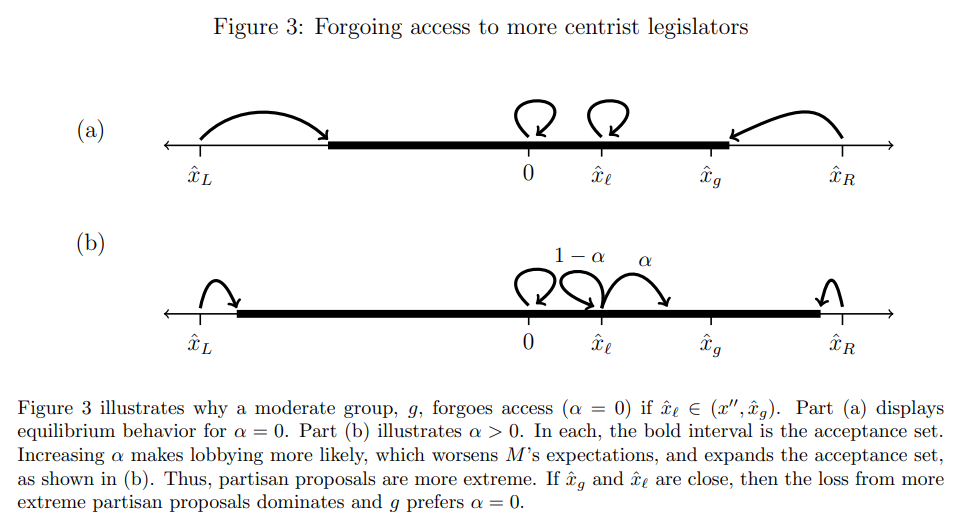
Seidel, André. 2023. “A Global Map of Amenities: Public Goods, Ethnic Divisions and Decentralization.” Journal of Development Economics 164 (September): 103113. https://doi.org/10.1016/j.jdeveco.2023.103113.
In JDE Seidel studies ethnic divisions and local public good provision. Novel OpenStreetMap worldwide data with amenities’ geocoded location. In countries with local power over spending, regions with high fractionalization provide fewer goods

#4 – 18.05.2023 and 31.05.2023
Redistributive preferences in Japan – Inequality in representation and local public goods in Finland – Identifying the rich in Tanzania – Lobbyists into and from government in the US
Junko Kato, Hirofumi Takesue. 2023. “The Presence of a Social Context Increases Support for Redistribution: Inequality Aversion and Risk Aversion”. International Political Science Review. (May 21, 2023). https://doi.org/10.1177/01925121231168833.
In @IPSR_Journal Kato & Takesue study if redistribution preferences come from risk aversion or inequality aversion. Lab experiment in Japan finds desired payoffs more equal when redistributing among people than when selecting lotteries for oneself
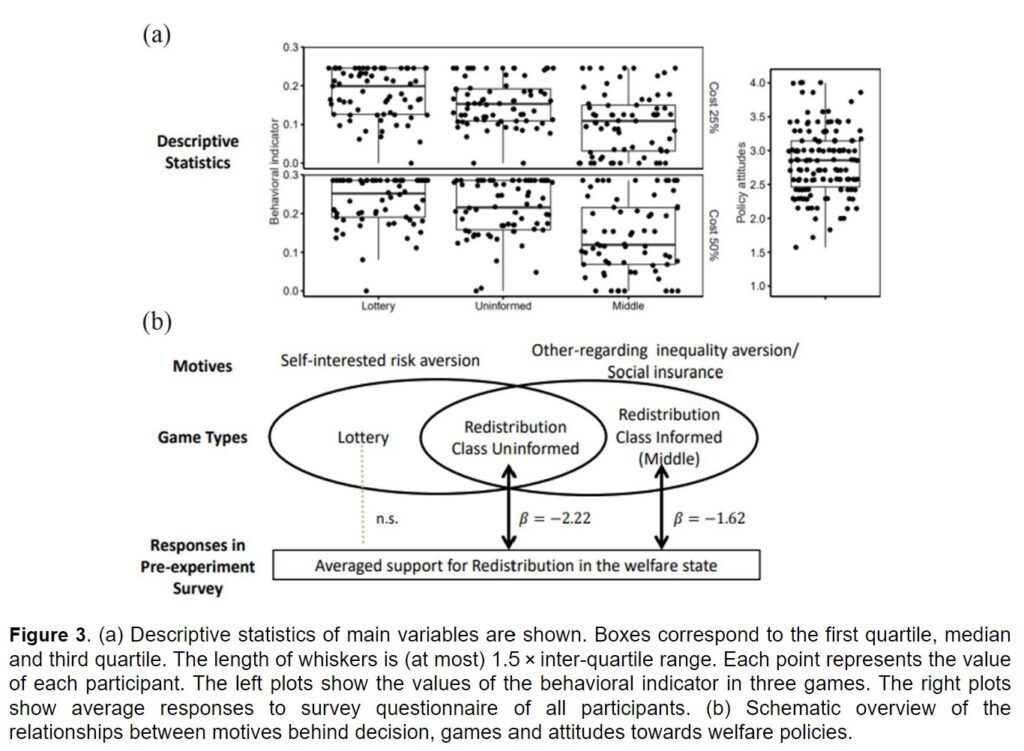
Oskari Harjunen, Tuukka Saarimaa, and Janne Tukiainen. 2023. “Love Thy (Elected) Neighbor? Residential Segregation, Political Representation, and Local Public Goods”. The Journal of Politics. (May 25, 2023). https://doi.org/10.1086/723983.
In @The_JOP @OHarjunen @tsaarimaa @JanneTukiainen study representation in Finnish local government. Candidates from richer neighbourhoods more likely to win. Using election ties solved by lottery, find local public bads less likely where elected live
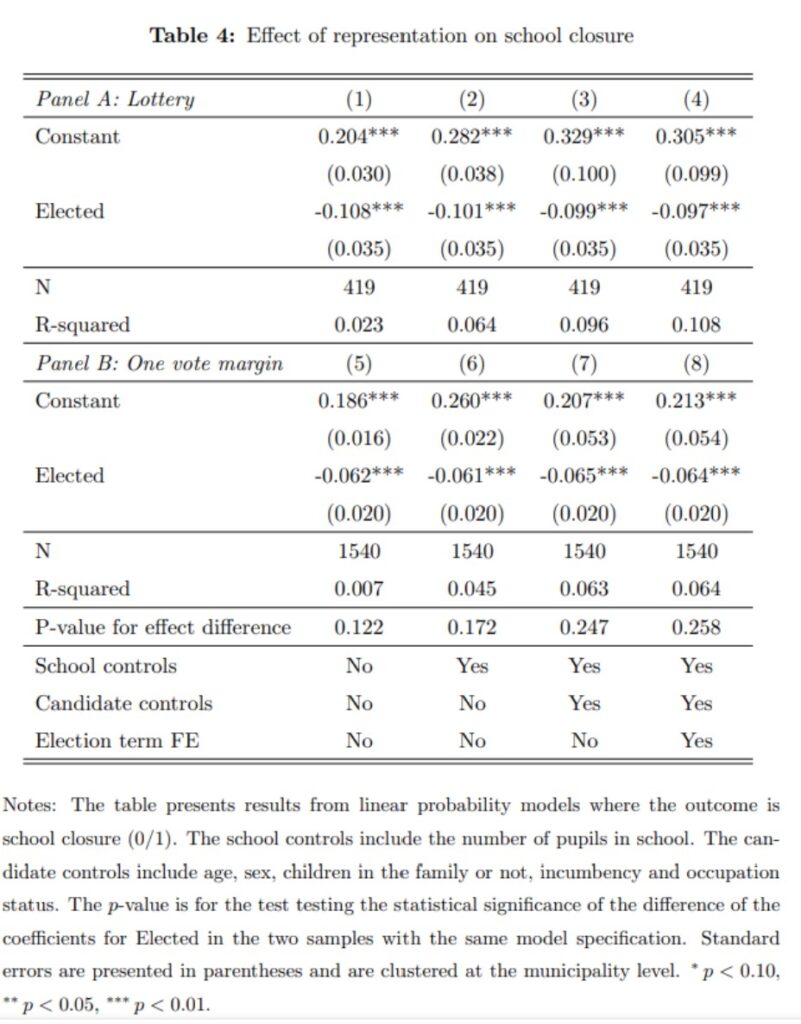
Bowles, Jeremy. 2023. “Identifying the Rich: Registration, Taxation, and Access to the State in Tanzania.” American Political Science Review, May, 1–17. https://doi.org/10.1017/S0003055423000394.
In @apsrjournal Bowles asks who registers with the state and why. Relevant for state capacity. Using a reform in Tanzania finds that citizens induced to register obtain more resources from the state but also pay more taxes

Amy Melissa McKay and Jeffrey Lazarus. “Policy Consequences of Revolving-Door Lobbying”. Political Research Quarterly. (May 24, 2023). https://doi.org/10.1177/10659129231177648.
In @PRQjournal @amymelissamckay @jlazarus001 study impact of conventional & revolving-door lobbying on spending bills benefitting US colleges with original panel data over 12 ys and FE. Revolving-door leads to more earmarks than conventional lobbying
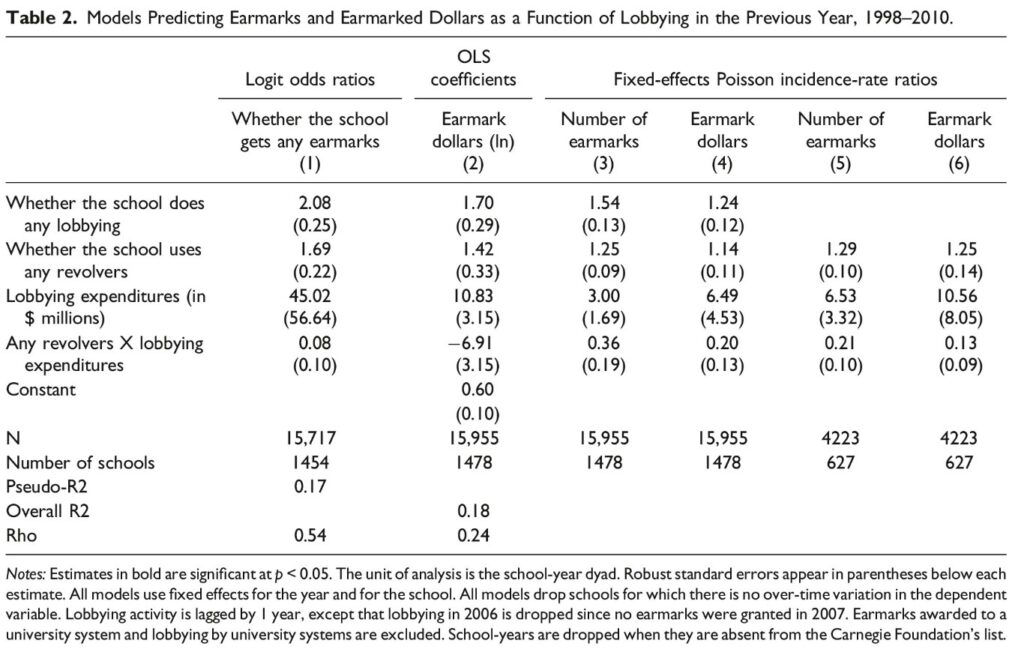
Benjamin C. K. Egerod and Joshua McCrain. 2023. “Lobbyists into Government“. Quarterly Journal of Political Science. https://doi.org/10.1561/100.00021196.
In QJPS @BCEgerod @joshmccrain study whether firms profit from lobbyists’ transition INTO government in the US. With panel data covering 20 yrs & a DiD approach they show connected lobbying firms’ revenue increases as clients pay more

#3 – 04.05.2023 and 17.05.2023
Electoral accountability in Uganda – Redistribution in authoritarian countries – Public service responsiveness to citizens’ interests in Sweden – Bias in ethnicity prediction in the US – Impact of dams on Global South citizens’ livelihoods
Grossman, Guy. 2023. “The Effect of Sustained Transparency on Electoral Accountability.” American Journal of Political Science. https://onlinelibrary.wiley.com/doi/full/10.1111/ajps.12787.
@AJPS_Editor @guygrossman @KGMichelitch @carloprato_ study transparency interventions and electoral accountability, considering party nominations, running decisions and challenger entry. Tested using field experiment with scorecards of Ugandan politicians

Han, Sung Min, and Kangwook Han. 2023. “Authoritarian Leaders, Economic Hardship, and Inequality.” Democratization 0 (0): 1–21. https://doi.org/10.1080/13510347.2023.2209022.
In @democ_journal Sung Min Han @KangwookHan study if dictators’ past economic hardship makes them prone to redistribution. Original data on leaders’ background covering 72 countries over 50 years shows negative association with economic inequality
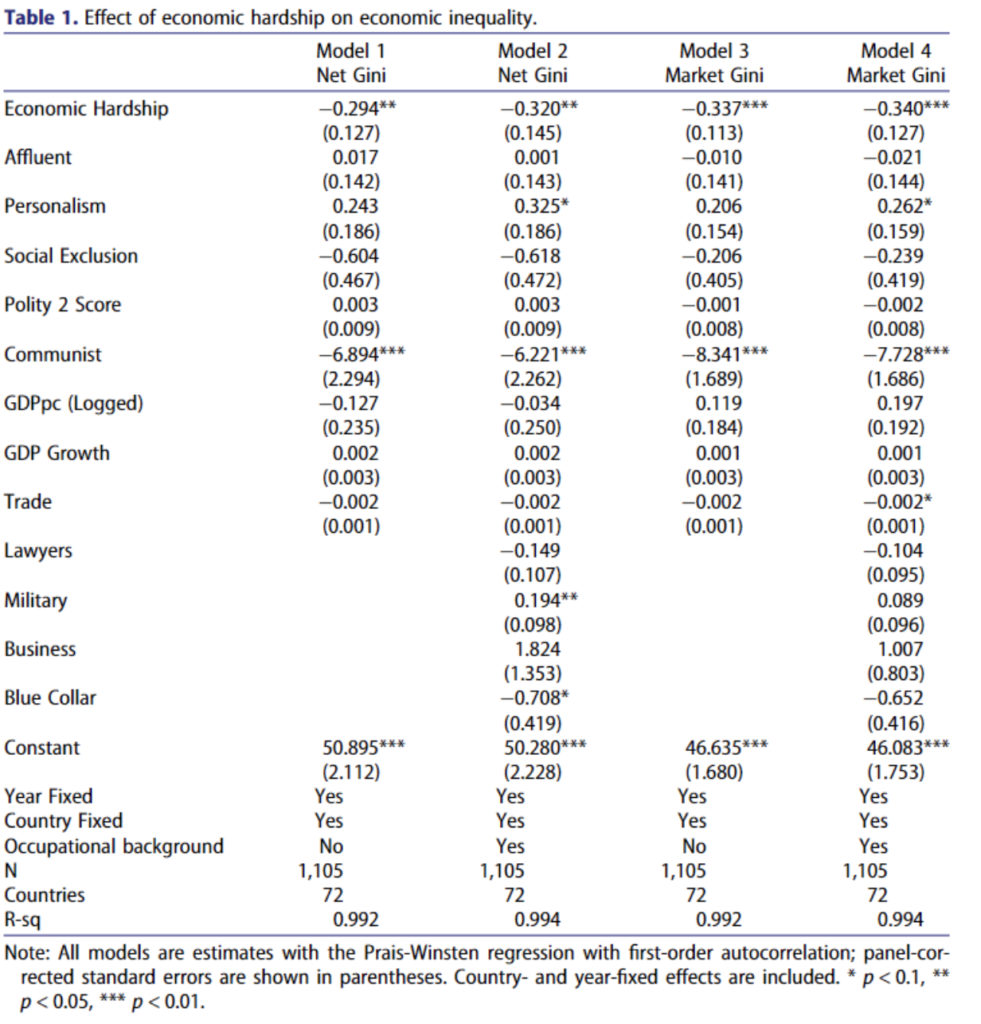
Johan Wejryd. 2023. “Pacified Citizens with a Marketized School System: Causal Evidence of Boomeranging Effects of User Choice” Governance: 1-19. https://doi.org/10.1111/gove.12793.
In @Gov_Journal Wejryd studies the impact of marketization on citizens’ willingness to participate in public service’s decision-making using a survey experiment in Sweden. Citizens are less willing to participate when assigned to private vs. public school

Argyle, Lisa P., and Michael Barber. 2023. “Misclassification and Bias in Predictions of Individual Ethnicity from Administrative Records.” American Political Science Review, May, 1–9. https://doi.org/10.1017/S0003055423000229.
In @apsrjournal @lpargyle @mbarber83 study mistakes in ethnicity prediction approaches that rely on census & geographic data. They show biases affecting non-whites in wealthier areas in the US & propose a machine learning approach to reduce error

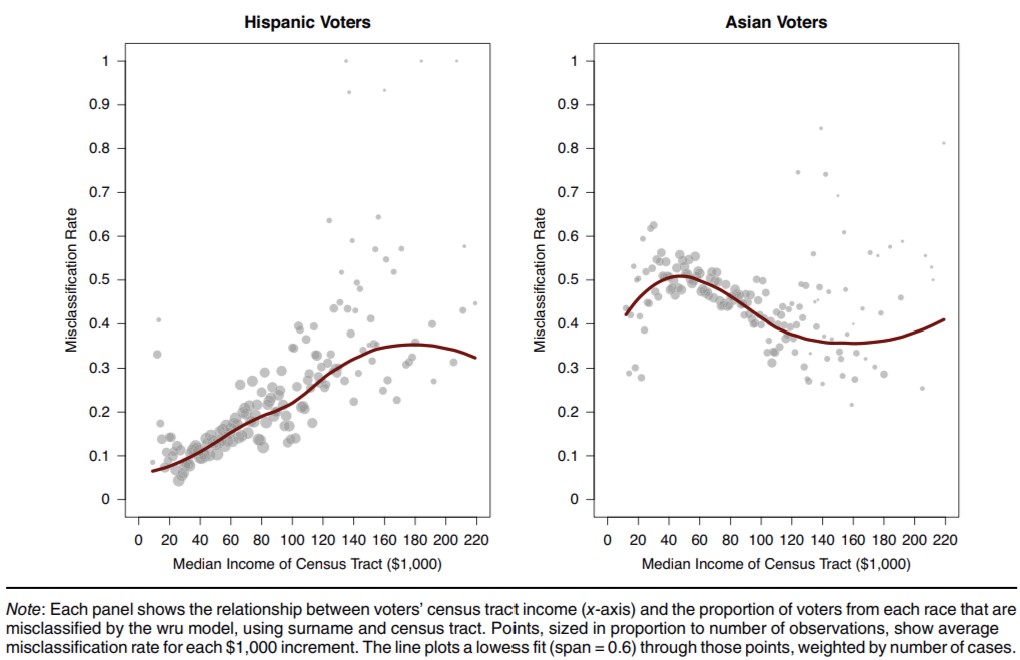
Castro-Diaz, Laura, María Alejandra García, Sergio Villamayor-Tomas, and Maria Claudia Lopez. 2023. “Impacts of Hydropower Development on Locals’ Livelihoods in the Global South.” World Development 169 (September): 106285. https://doi.org/10.1016/j.worlddev.2023.106285.
In @WorldDevJournal @CastroDiazLaura @MariaAleGarciaO Villamayor-Tomas @mariaclopez2020 study how 33 dams affect local communities in terms of capital using meta-analysis & fsQCA. Impacts on natural, social, human, & financial capital are mostly negative
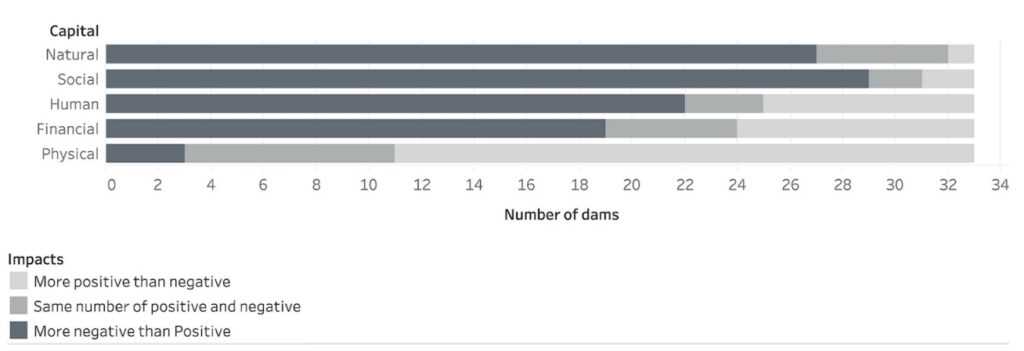
#2 – 20.04.2023 and 04.05.2023
Housing & crime in South Africa – Representation & housing in the US – Attitudes towards the welfare state & migration levels in Germany – Citizens’ view of democracy in Latin America – Female representation & legitimacy in Jordan, Morocco & Tunisia
Manea, Roxana Elena, Patrizio Piraino, and Martina Viarengo. 2023. “Crime, Inequality and Subsidized Housing: Evidence from South Africa.” World Development 168 (August): 106243. https://doi.org/10.1016/j.worlddev.2023.106243.
In @WorldDevJournal Manea @PatrizioPiraino Viarengo study the effect of housing inequality on crime in South Africa. They exploited a housing program that reduced inequality to estimate with fixed effects. Housing inq is associated to more & different crimes
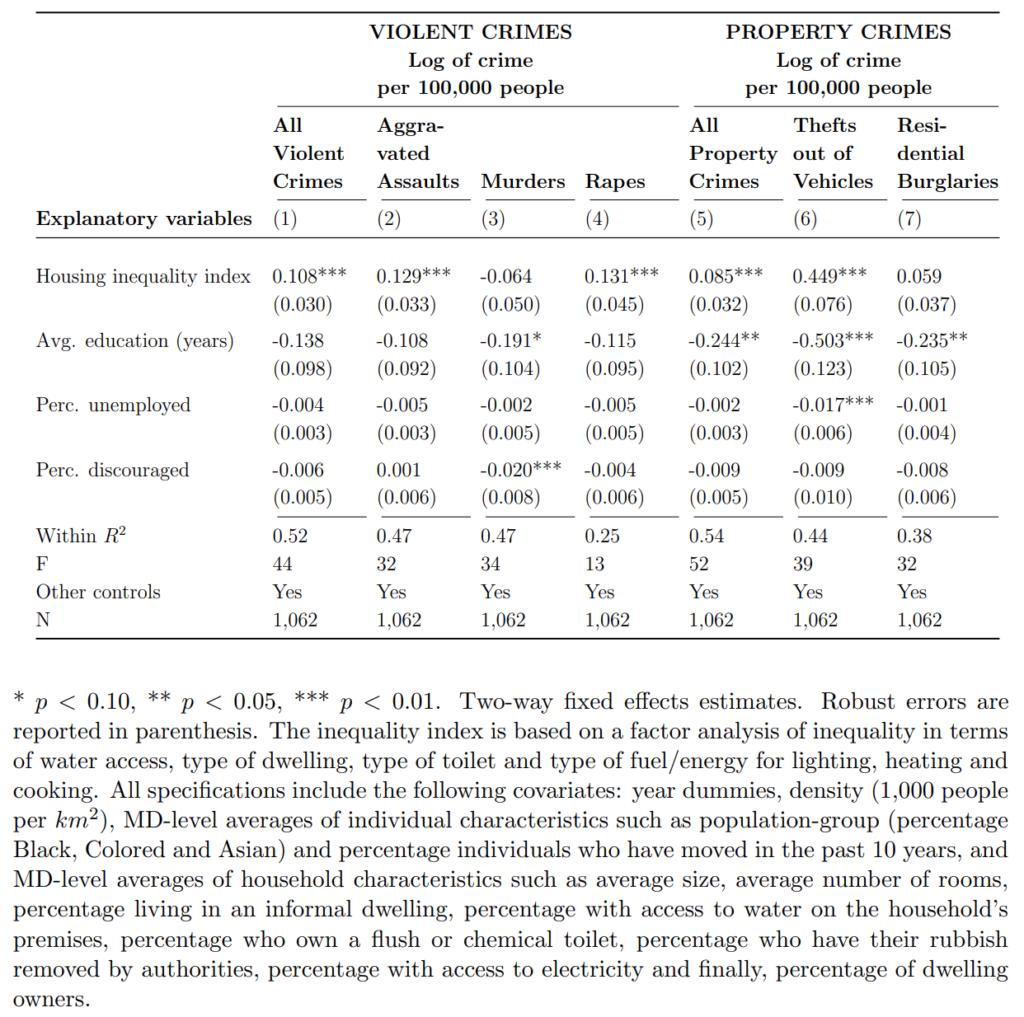
Hankinson, Michael, and Asya Magazinnik. 2023. “The Supply-Equity Trade-Off: The Effect of Spatial Representation on the Local Housing Supply.” The Journal of Politics, January, 000–000. https://doi.org/10.1086/723818.
In @The_JOP @msgHankinson & Magazinnik. A US local electoral rule change that changed representation affected local public bads. Smaller districts allow worse off neighborhoods to better block bads, leading to underprovision: an equity-supply trade-off
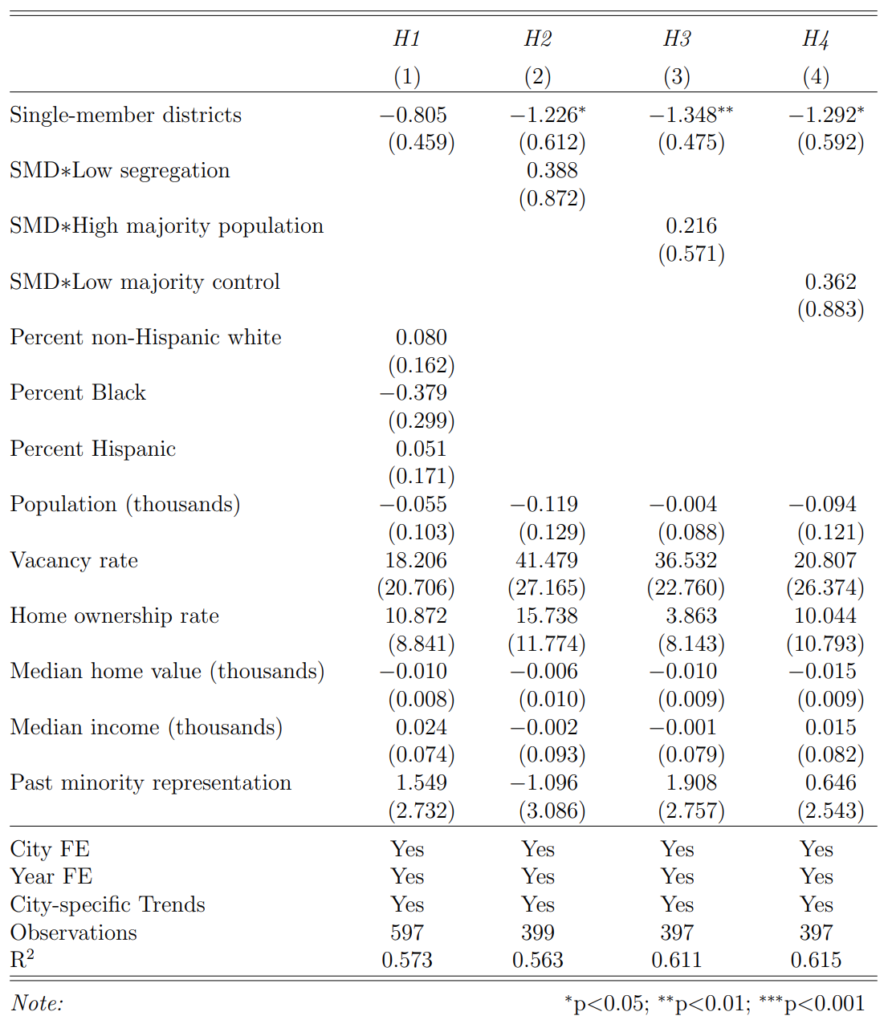
Eick, Gianna M., and Marius R. Busemeyer. 2023. “Migration Levels and Welfare Support: Evidence from the Local Level.” Journal of European Public Policy 0 (0): 1–33. https://doi.org/10.1080/13501763.2023.2195440.
In @jepp_journal @giannaeick @mariusbusemeyer study welfare state support and migration levels across small regions in Germany using the Inequality Barometer from @EXCInequality. Support is lower where there are more migrants, particularly those employed
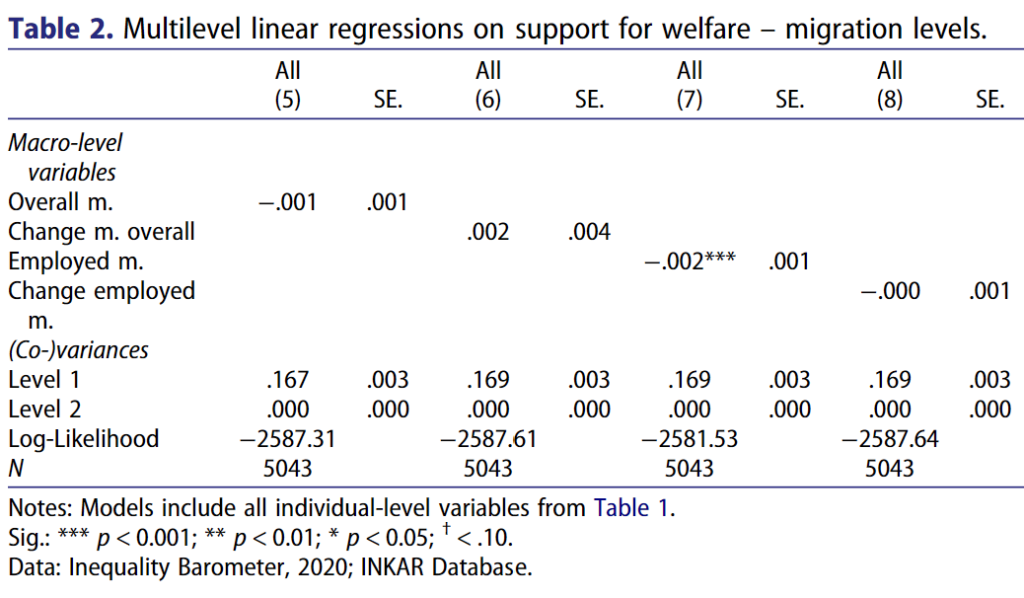
Luna, Juan Pablo, and Rodrigo M. Medel. 2023. “Uneven States, Unequal Societies, and Democracy’s Unfulfilled Promises: Citizenship Rights in Chile and Contemporary Latin America.” Latin American Politics and Society 65 (2): 170–96. https://doi.org/10.1017/lap.2022.59.
In @LAPSjournal @anulolbapnauj @Rodrigo_Medel_S develop a framework to study how citizens view democracy by differentiating civil, political, and social citizenship. Survey data from 18 LA countries shows few perceive citizenship in all 3 dimensions
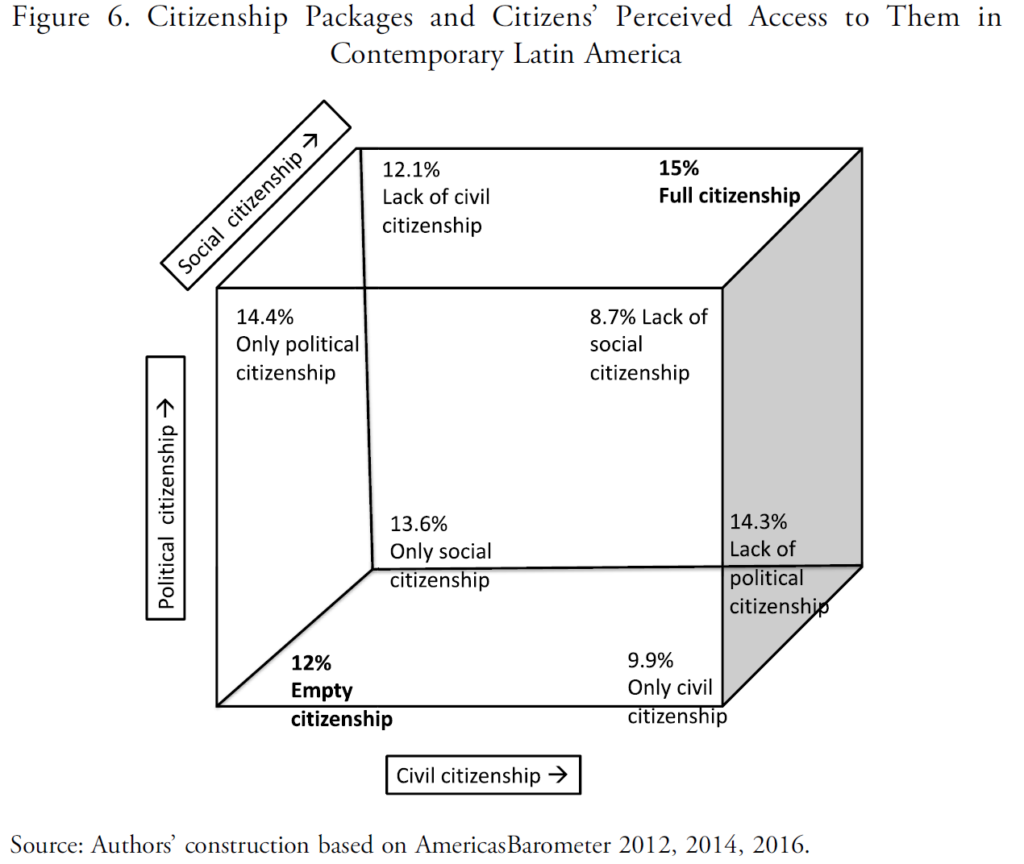
Kao, Kristen, Lust, Ellen, Shalaby, Marwa and Weiss, Chagai M.. “Female Representation and Legitimacy: Evidence from a Harmonized Experiment in Jordan, Morocco, and Tunisia.” American Political Science Review, 2023, 1–9. doi:10.1017/S0003055423000357
In @apsrjournal @kristenkao @EllenMLust @MarwaShalaby12 @chagai_weiss study citizens’ perceptions of legislative bodies’ processes & decisions using survey experiments in Jordan, Morocco and Tunisia. Gender balance and pro-women decisions boost legitimac
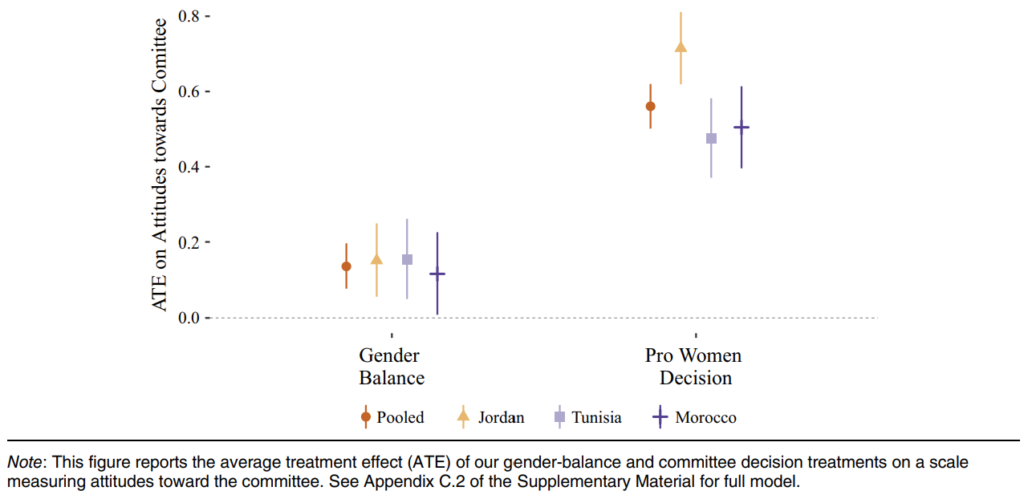
#1 – 06.04.2023 and 20.04.2023
Policy congruence in Europe – Policy responsiveness in Sweden – Support for the welfare state in 9 OECD countries – Political dividends of housing policies in Brazil – Identifying deprived areas in Ghana.
Persson, Mikael, and Anders Sundell. 2023. “The Rich Have a Slight Edge: Evidence from Comparative Data on Income-Based Inequality in Policy Congruence.” British Journal of Political Science, April, 1–12. https://doi.org/10.1017/S0007123423000066.
In @BJPolS @ProfPersson and @sundellviz study the public opinion-policy link in 30 European countries over 40 years. They show consistent evidence of affluence bias but standard explanations fail to account for the pattern.
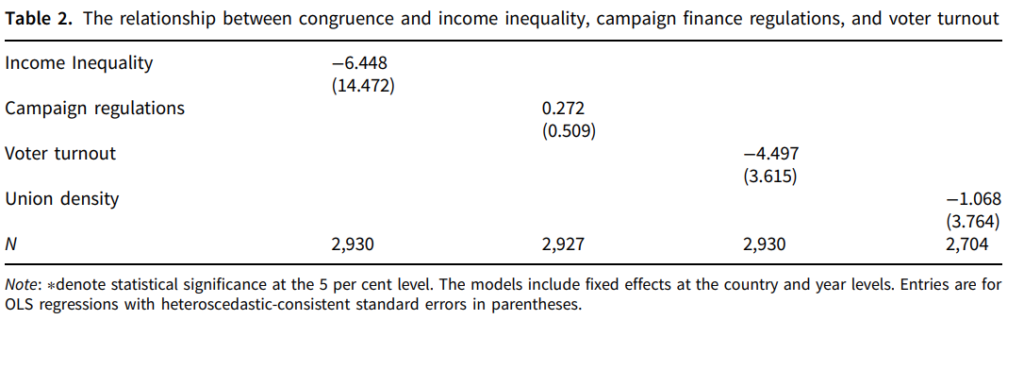
Persson, Mikael. 2023. “Who Got What They Wanted? Investigating the Role of Institutional Agenda Setting, Costly Policies, and Status Quo Bias as Explanations to Income Based Unequal Responsiveness.” Journal of European Public Policy 0 (0): 1–23.
https://doi.org/10.1080/13501763.2023.2177323.
In @jepp_journal @ProfPersson looks at drivers of policy responsiveness inequality in Sweden. Status quo bias conflicts with the aspirations of poorer voters, who are more in favor of change than the wealthy.
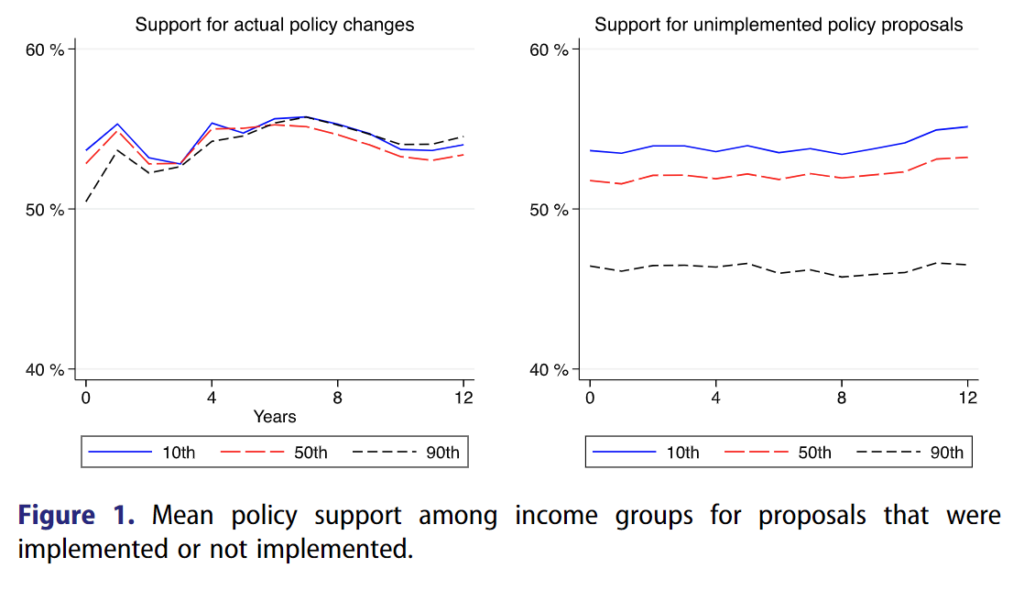
Jensen, Amalie Sophie and Wiedemann, Andreas. 2023. “Cross-National Support for the Welfare State Under Wealth Inequality.” Comparative Political Studies, March. https://journals.sagepub.com/doi/abs/10.1177/00104140231168364..sagepub.com/doi/abs/10.1177/00104140231168364 .
@AmalieJensen_ and @abwiedemann’s paper in @cps_journal argue welfare state preferences depend on one’s joint position in the income AND asset distributions. They show evidence of this from original survey in 9 OECD countries.
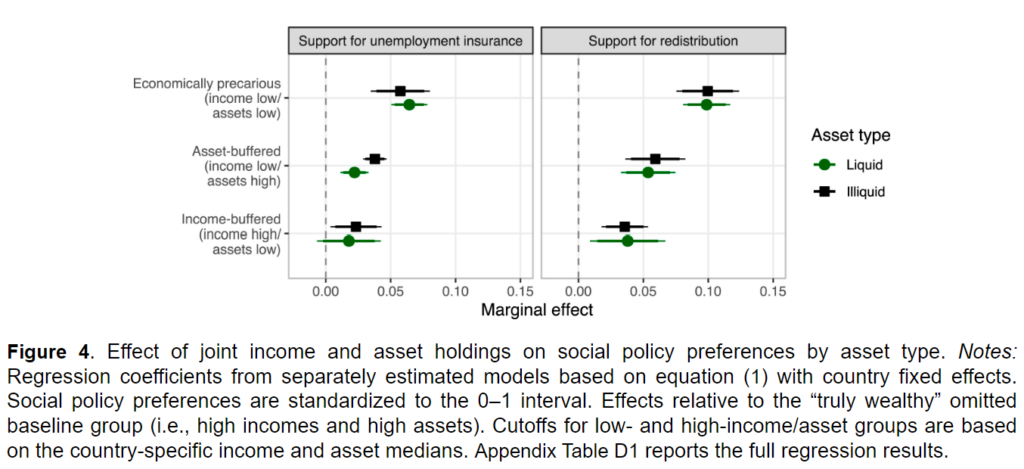
Bueno, Natália S., Cesar Zucco, and Felipe Nunes. 2023. “What You See and What You Get: Direct and Indirect Political Dividends of Public Policies.” British Journal of Political Science, April, 1–20. https://doi.org/10.1017/S0007123423000017.
In @BJPolS @nataliasbueno Zucco & @felipnunes use surveys and DiD to study the political payoffs of a housing program in Brazil. Policy implementation boosts support for incumbents. Effect driven counterintuitively by non-beneficiaries.
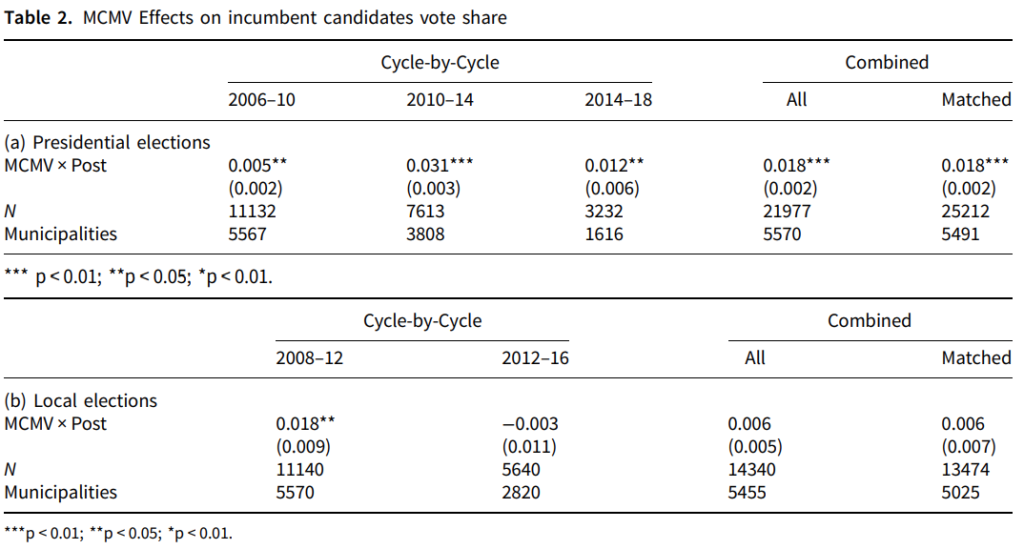
MacTavish, Robert, Honor Bixby, Alicia Cavanaugh, Samuel Agyei-Mensah, Ayaga Bawah, George Owusu, Majid Ezzati, et al. 2023. “Identifying Deprived ‘Slum’ Neighbourhoods in the Greater Accra Metropolitan Area of Ghana Using Census and Remote Sensing Data.” World Development 167 (July): 106253. https://doi.org/10.1016/j.worlddev.2023.106253.
In @WorldDevJournal, MacTavish @hrhbixby Cavanaugh Agyei-Mensah Bawah Owusu Ezzati @raphazi1 @brianer Robinson Schmidt and @jillcbaum use spatial modeling and census and satellite data to identify deprived areas in Accra, a modeling approach reproducible in other areas.
